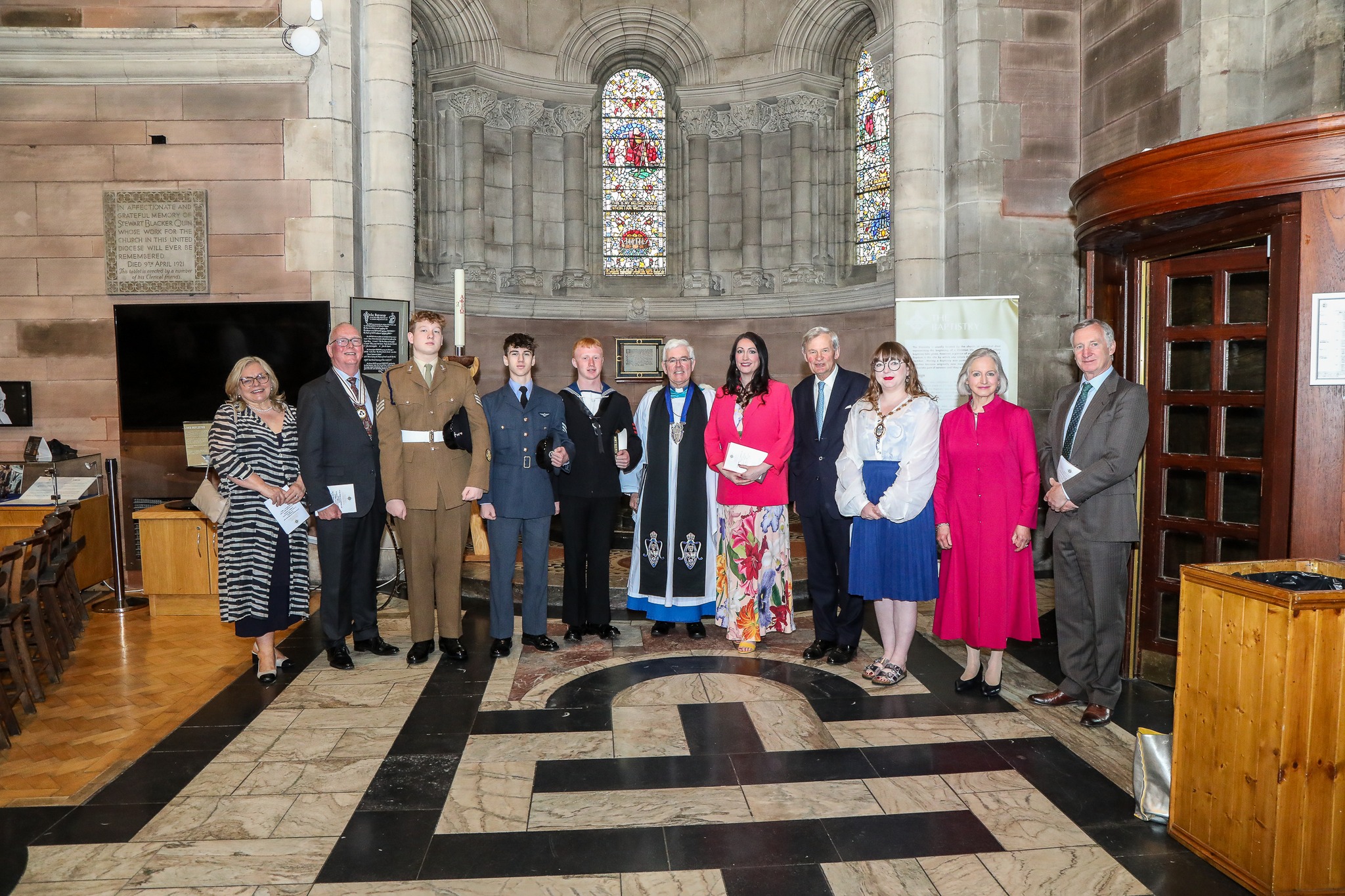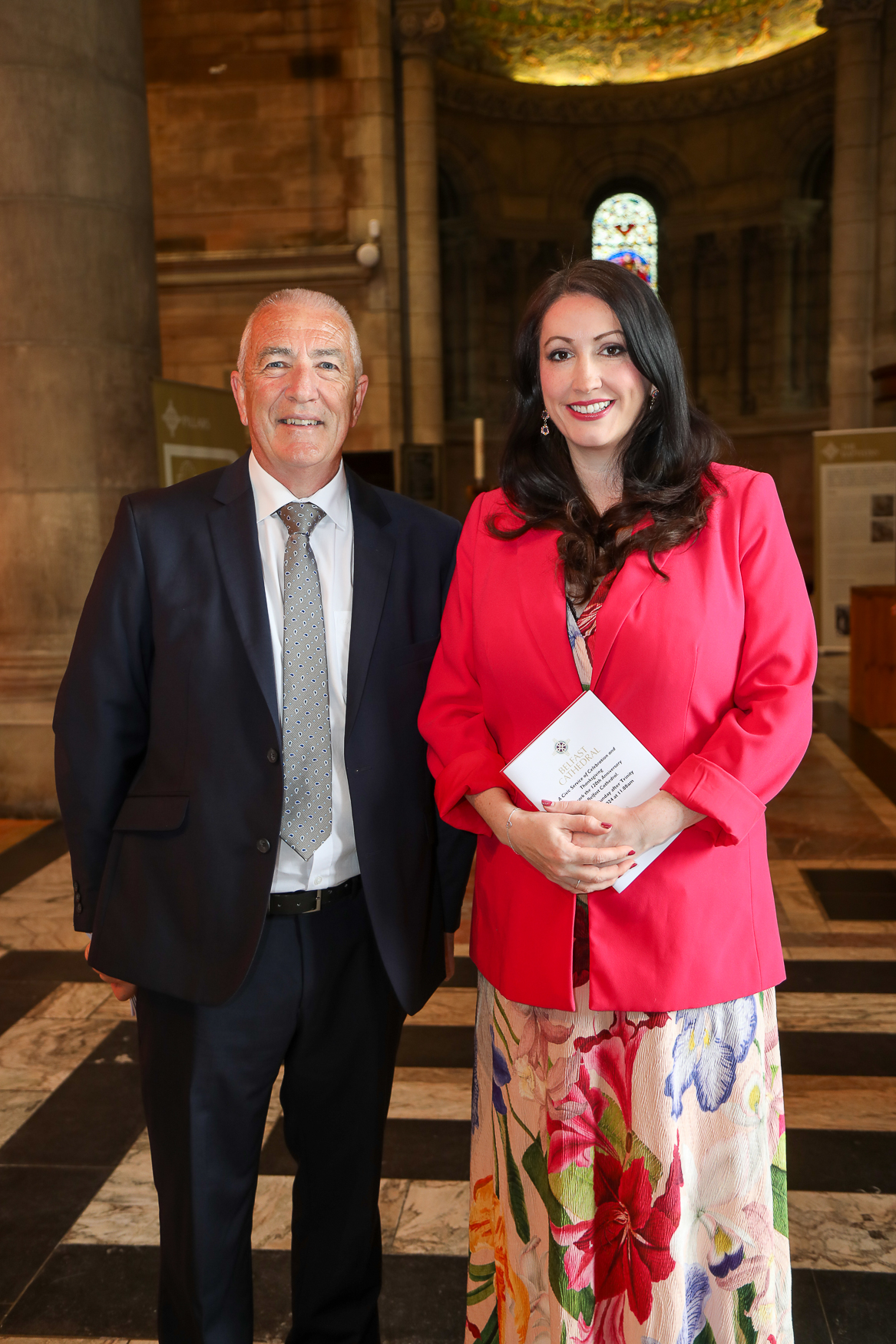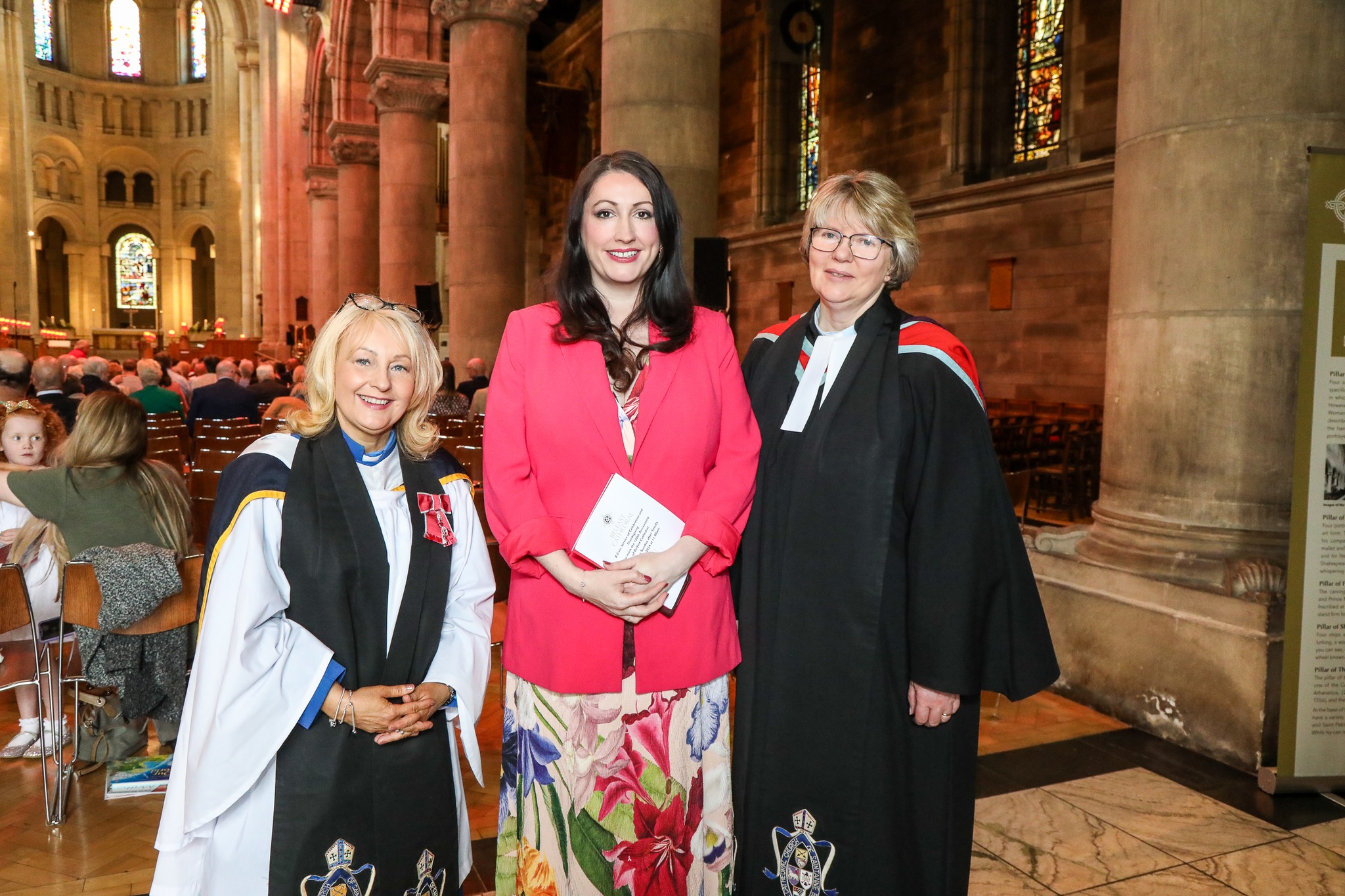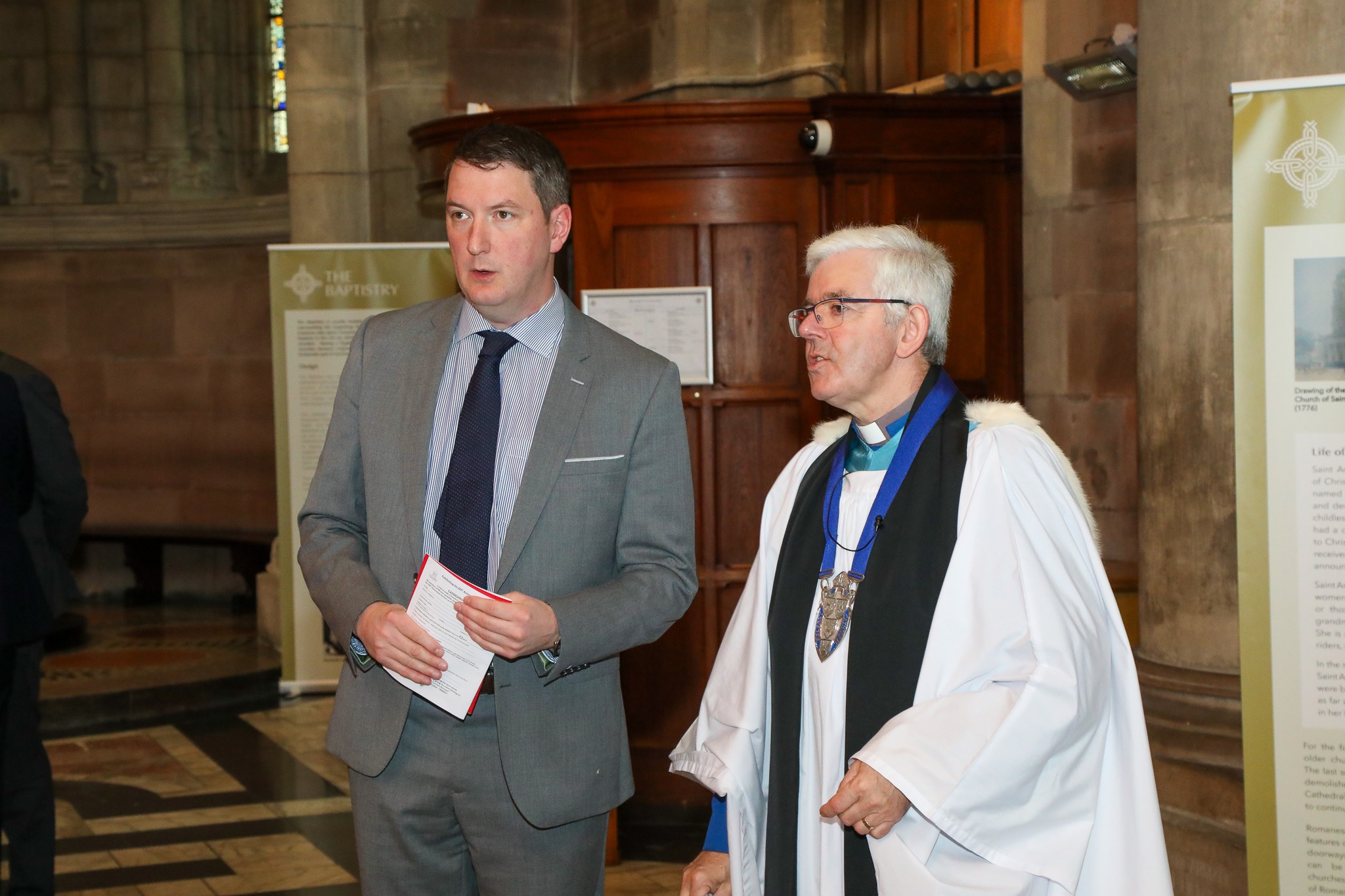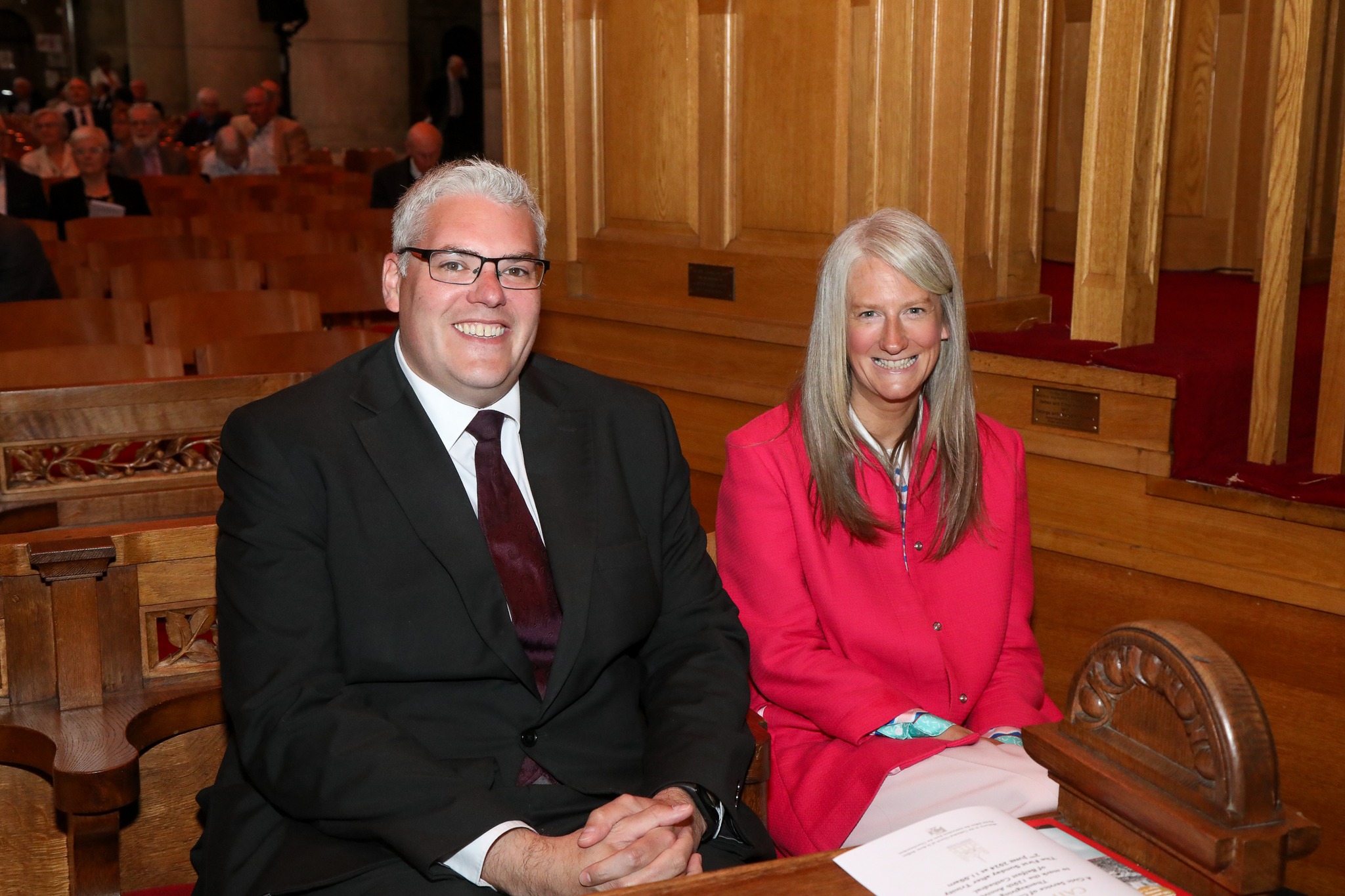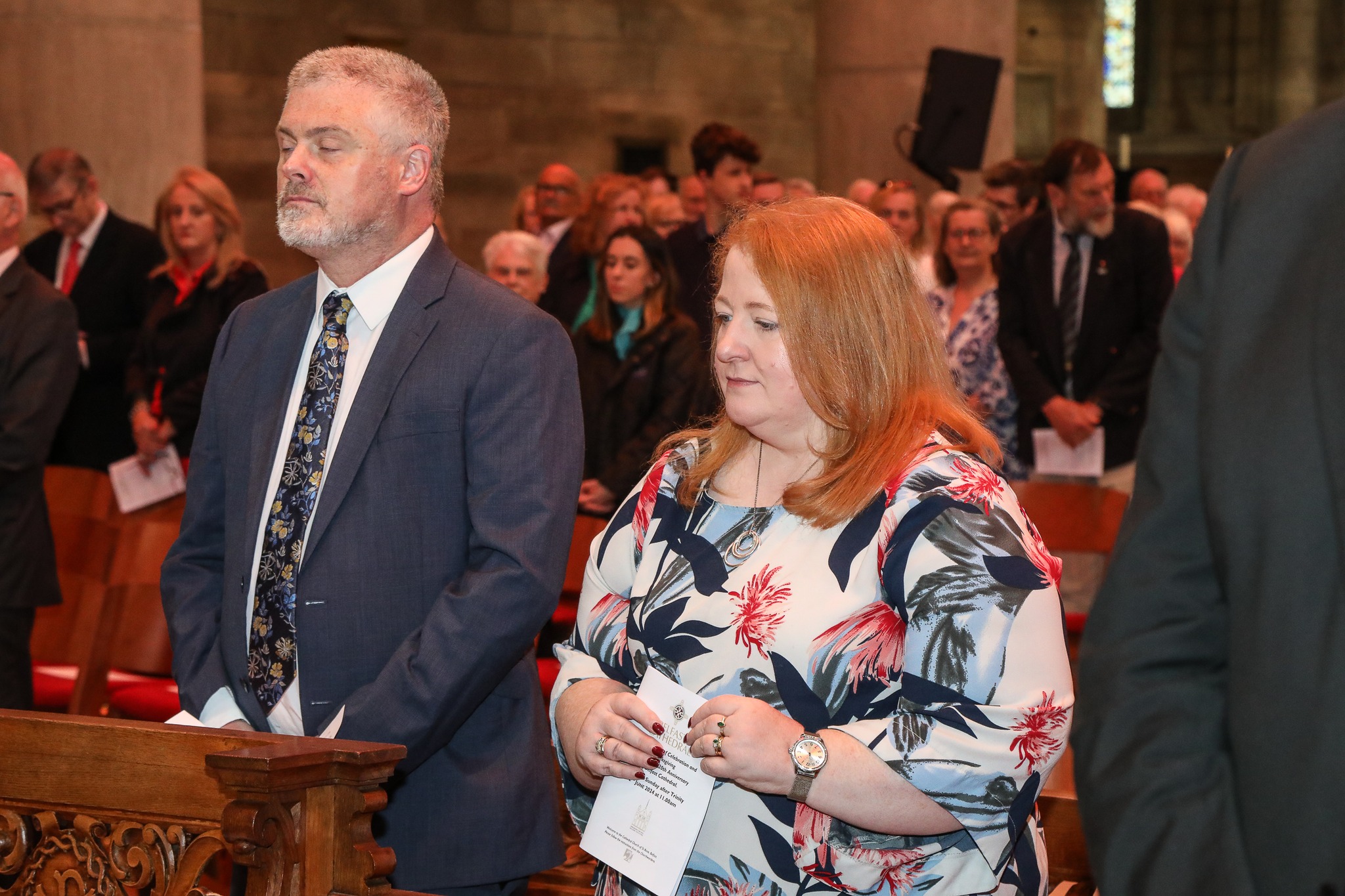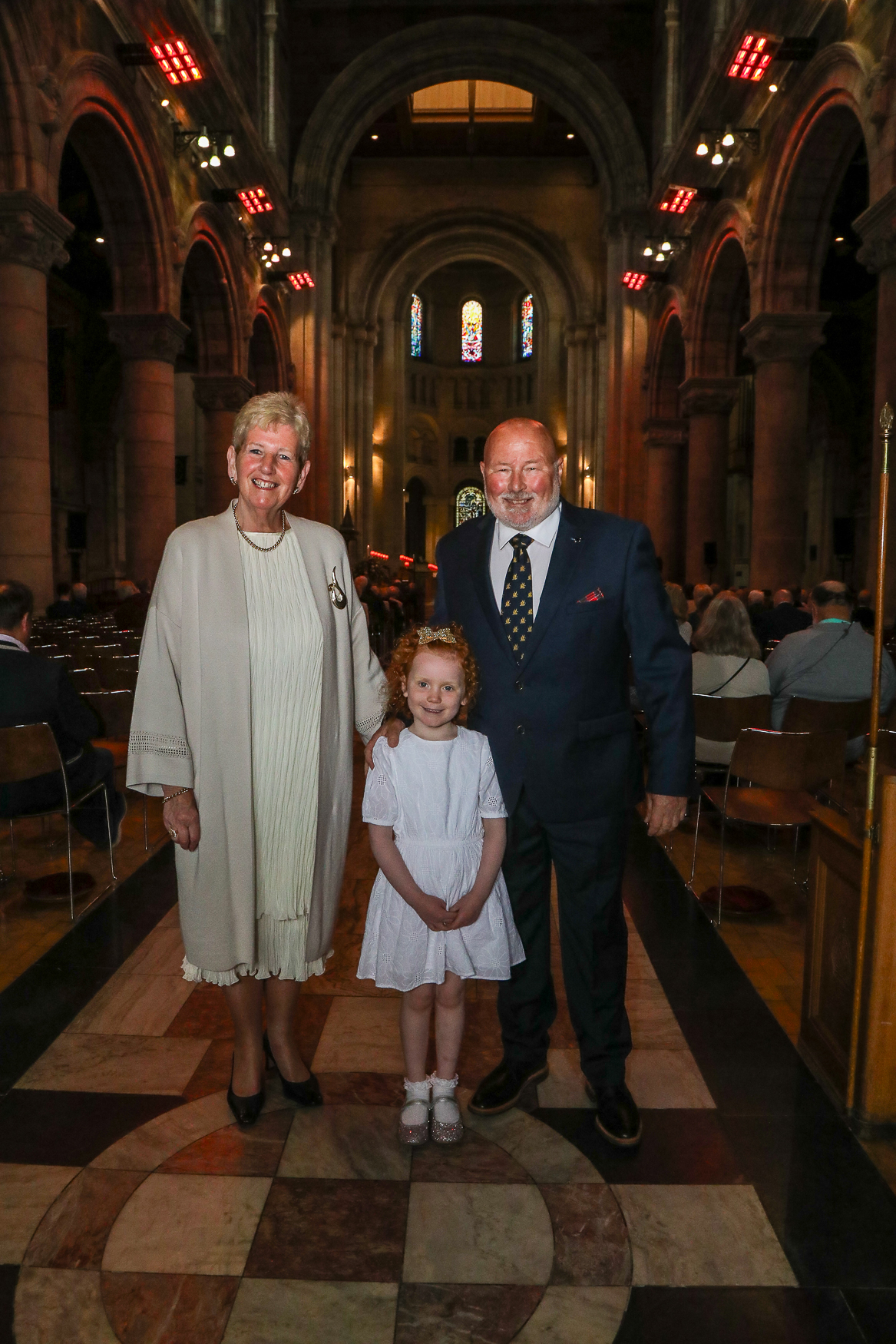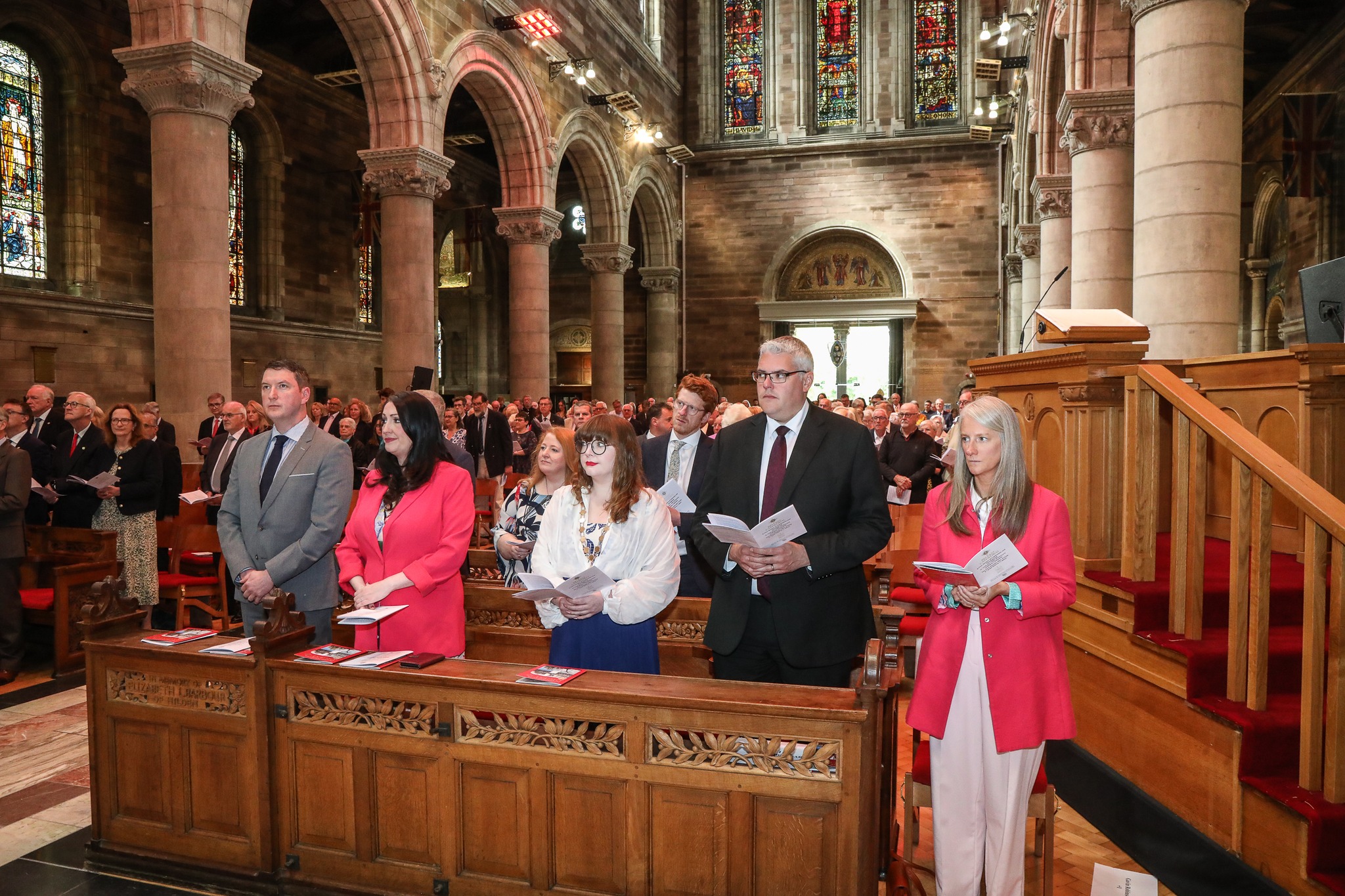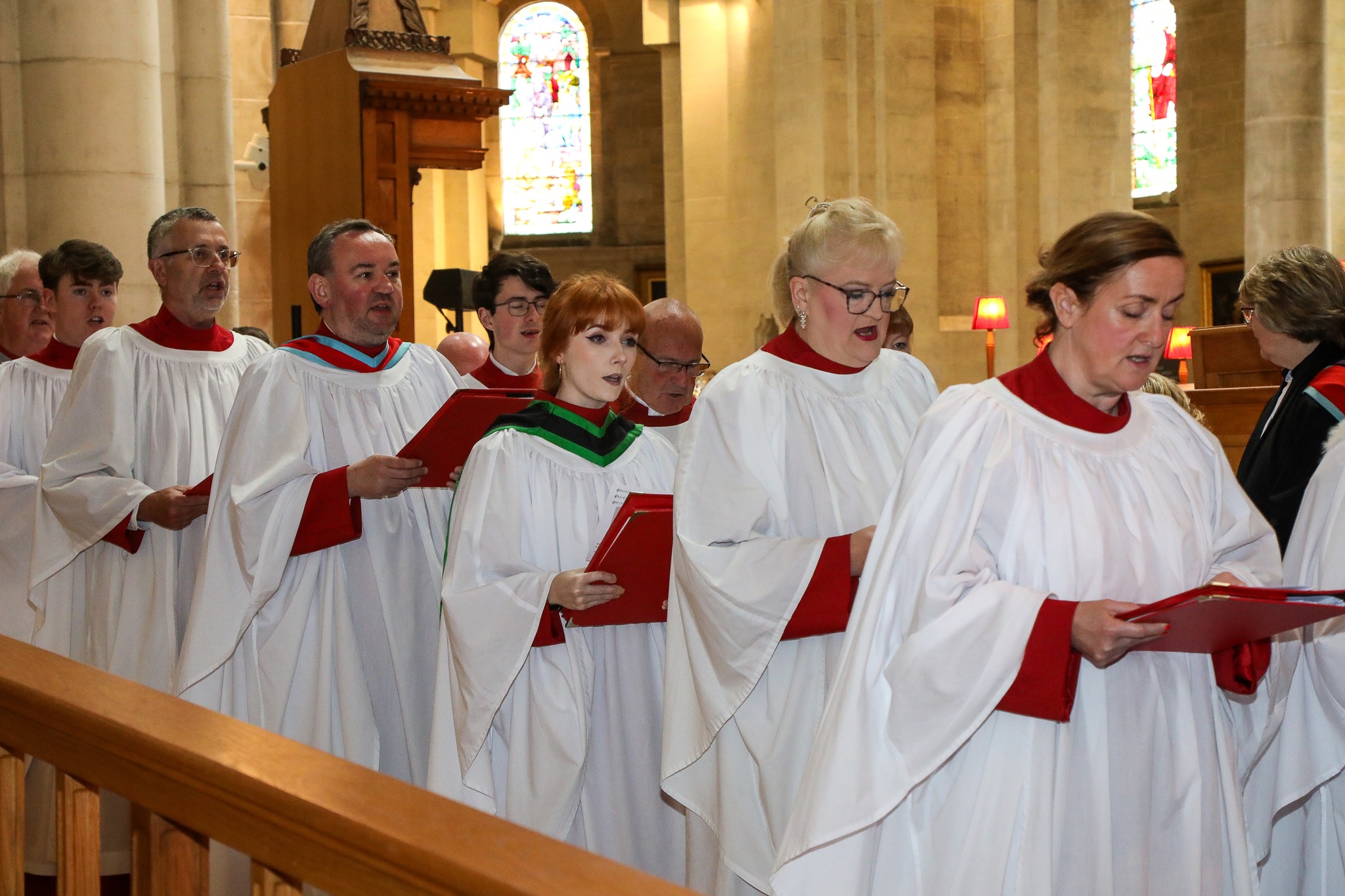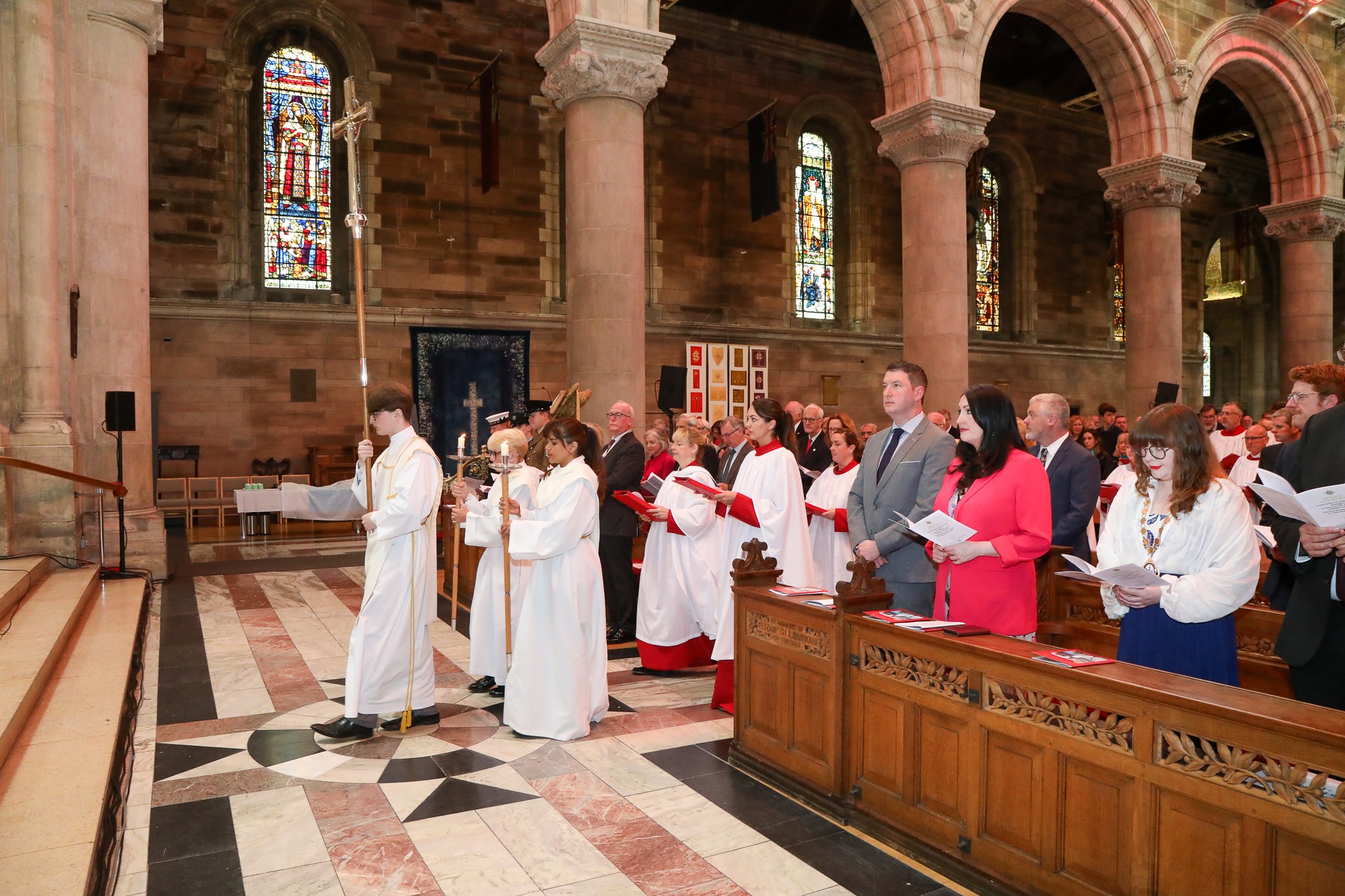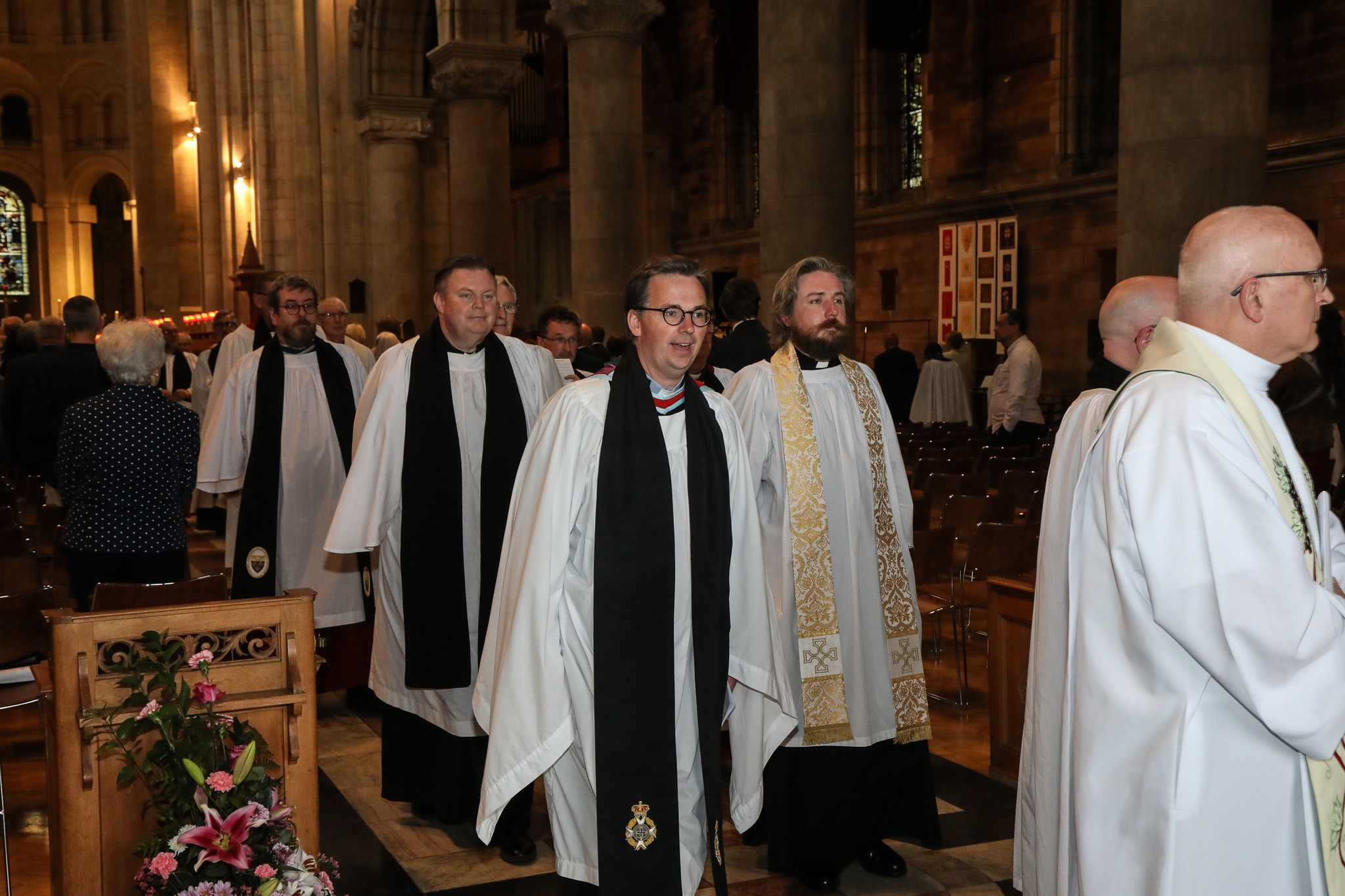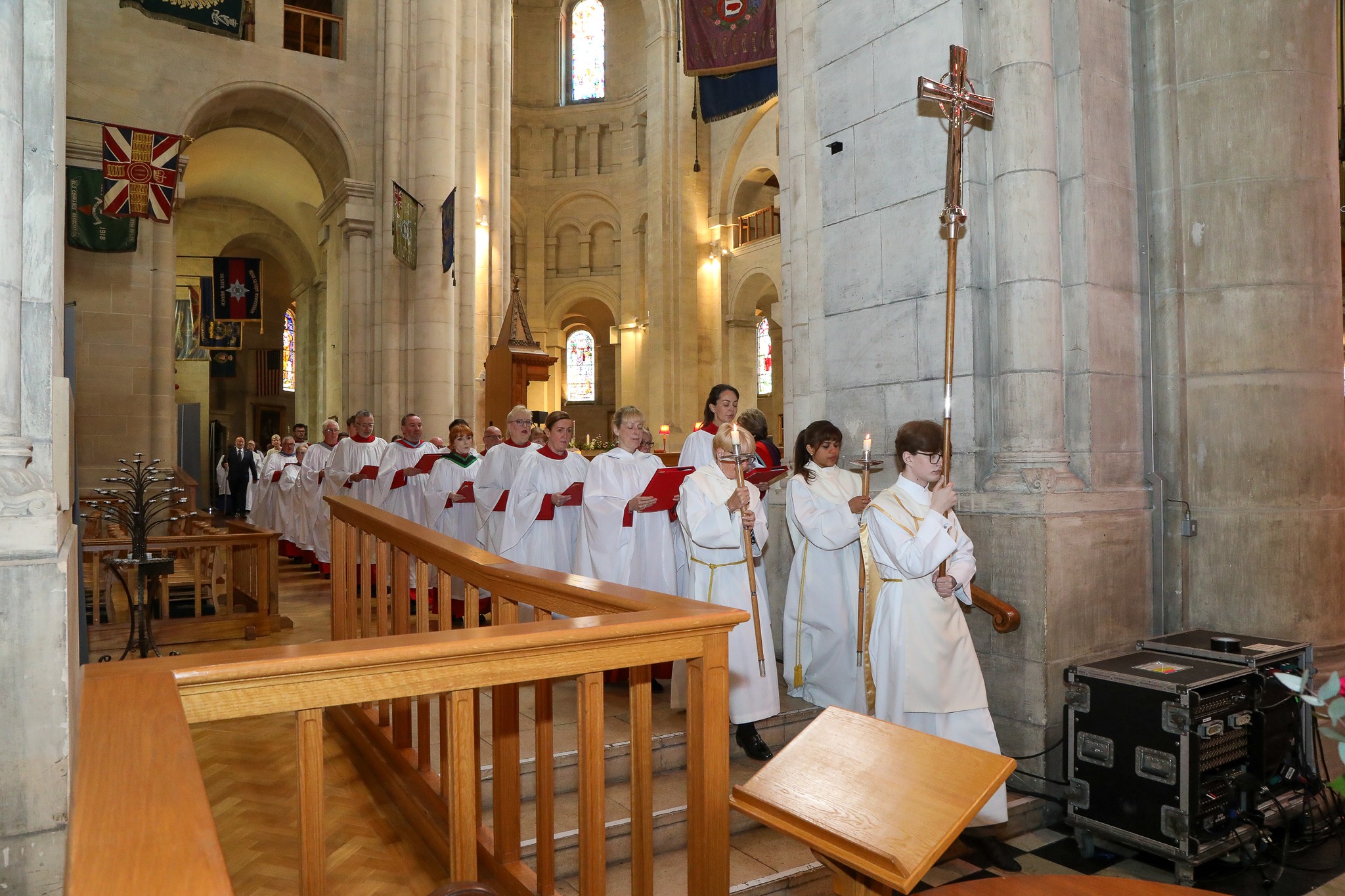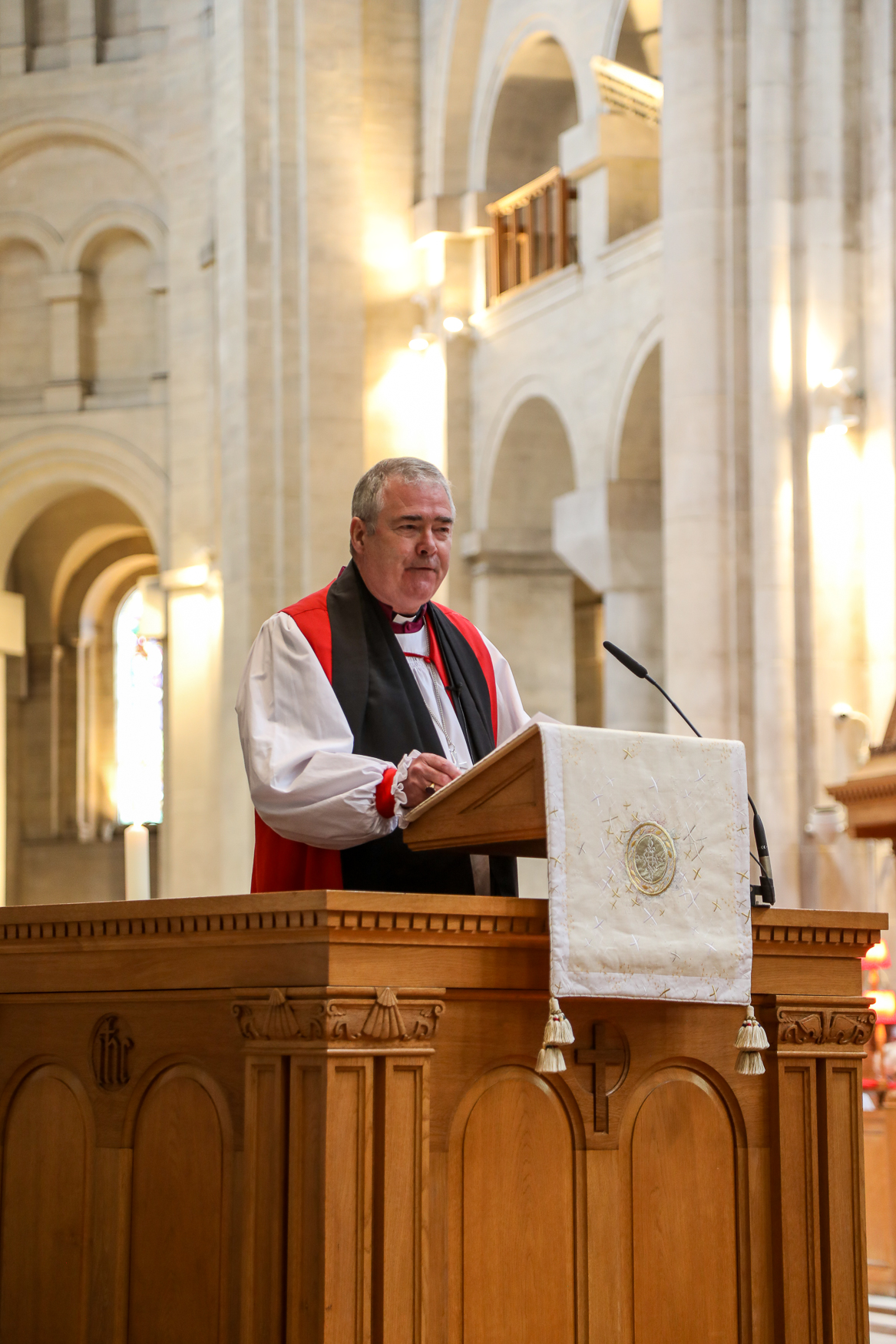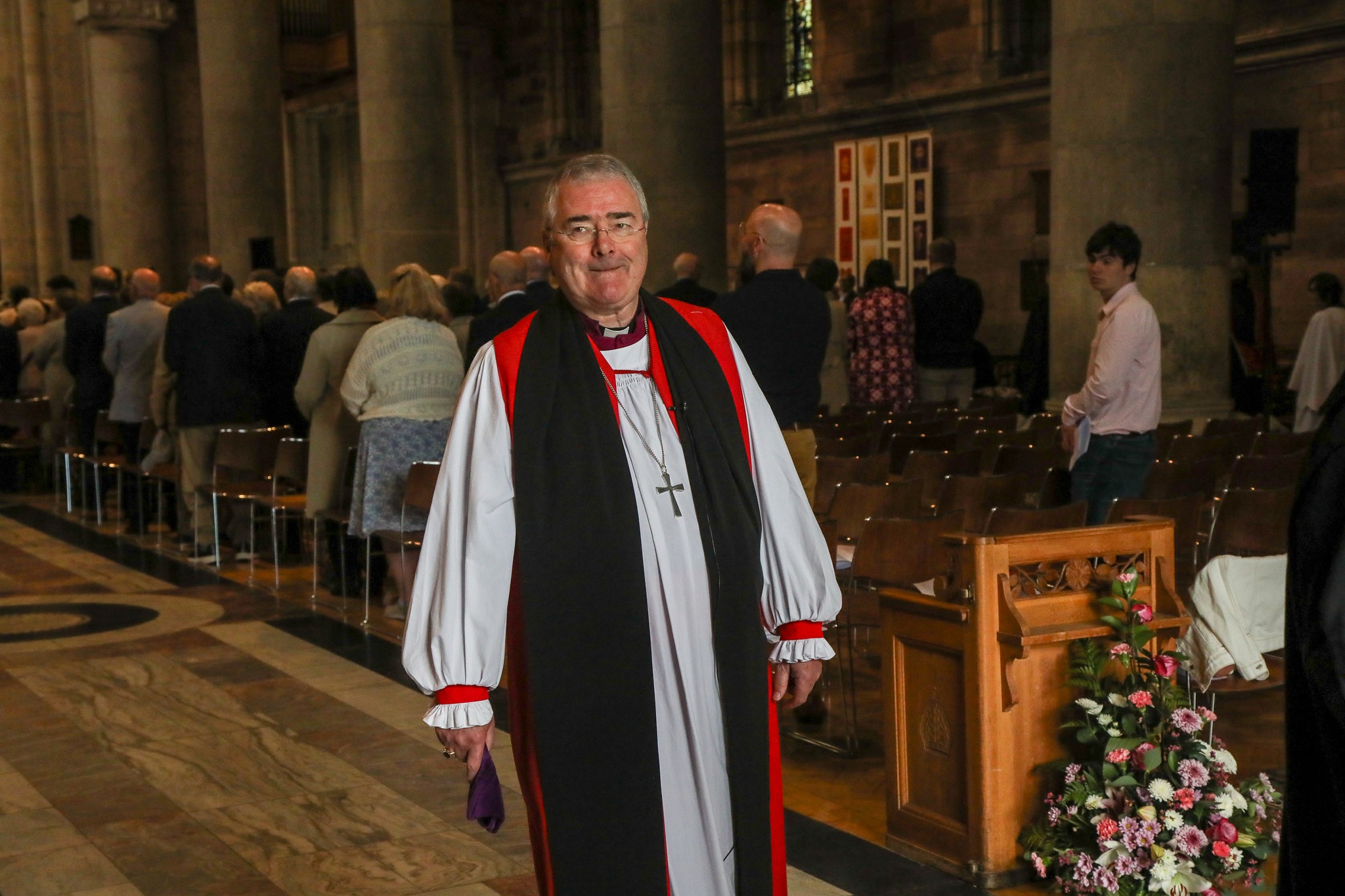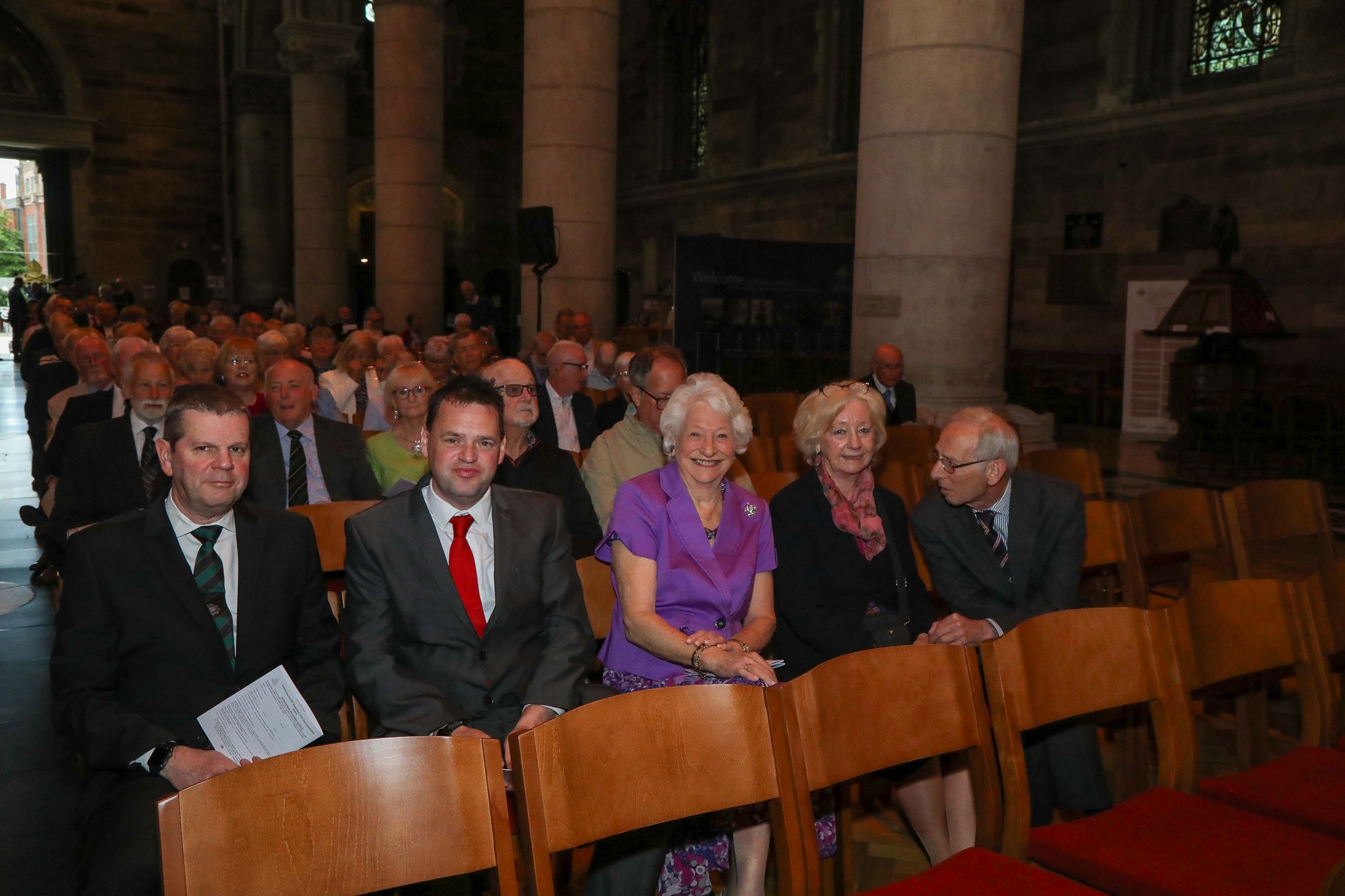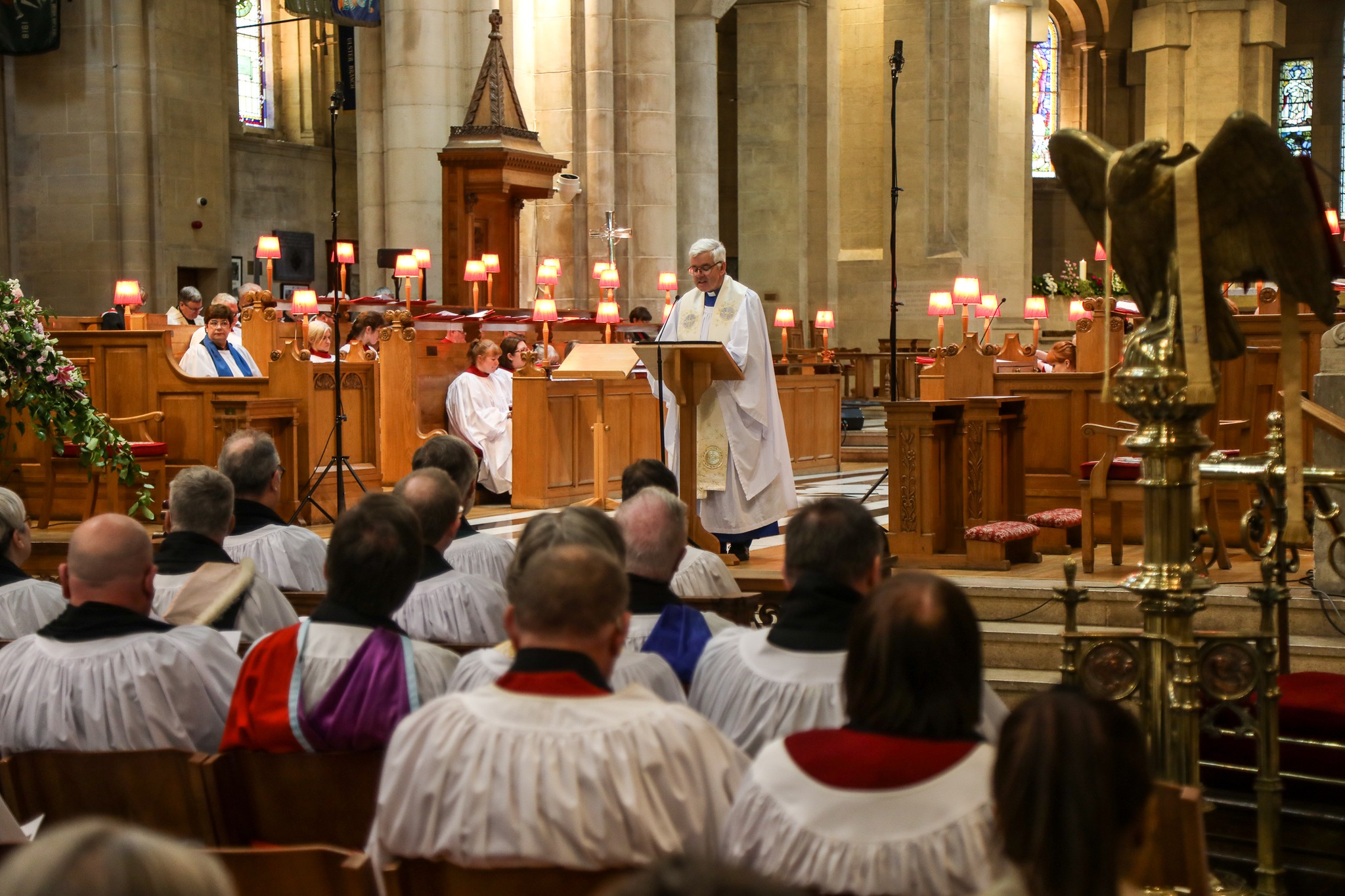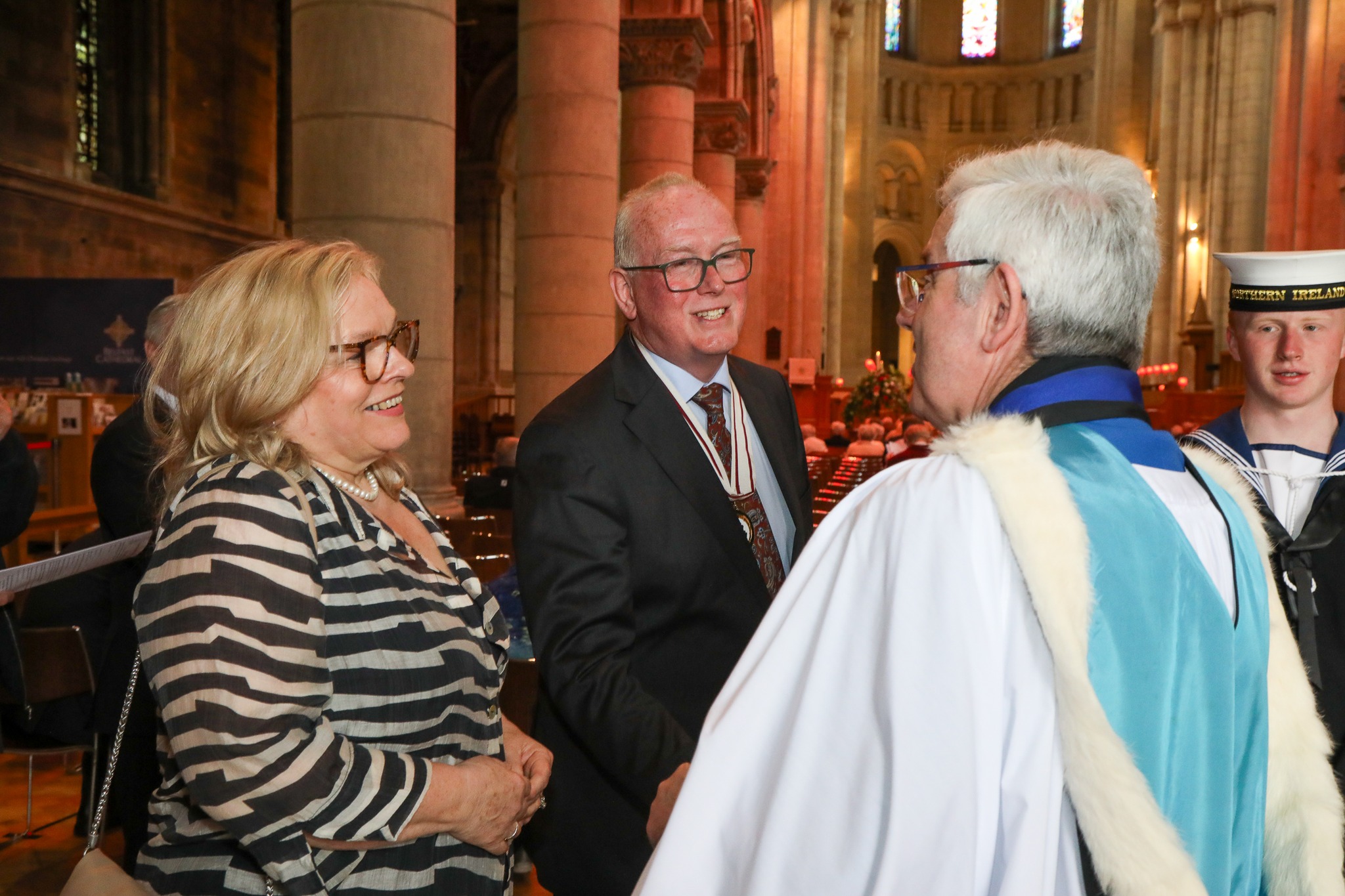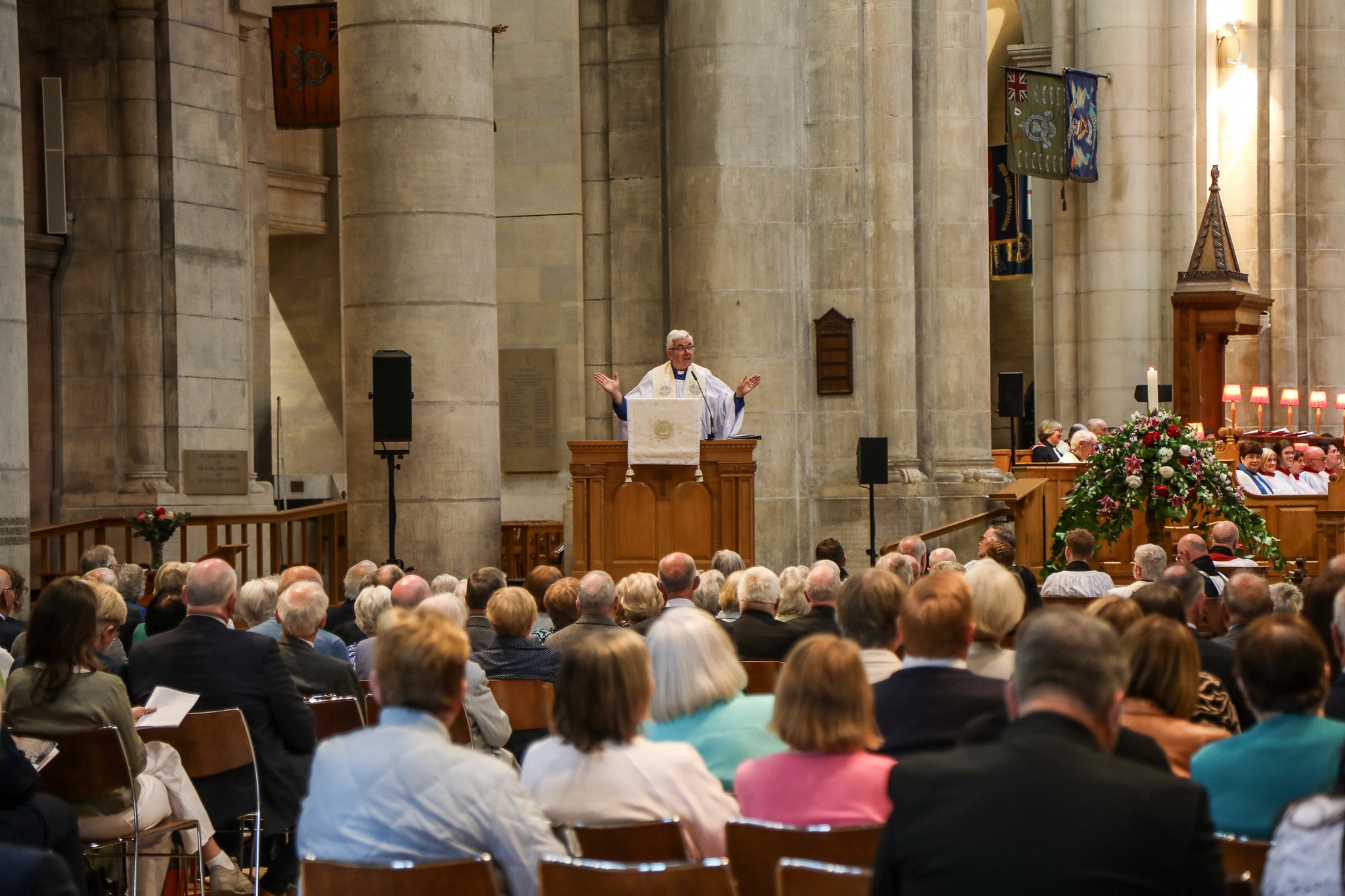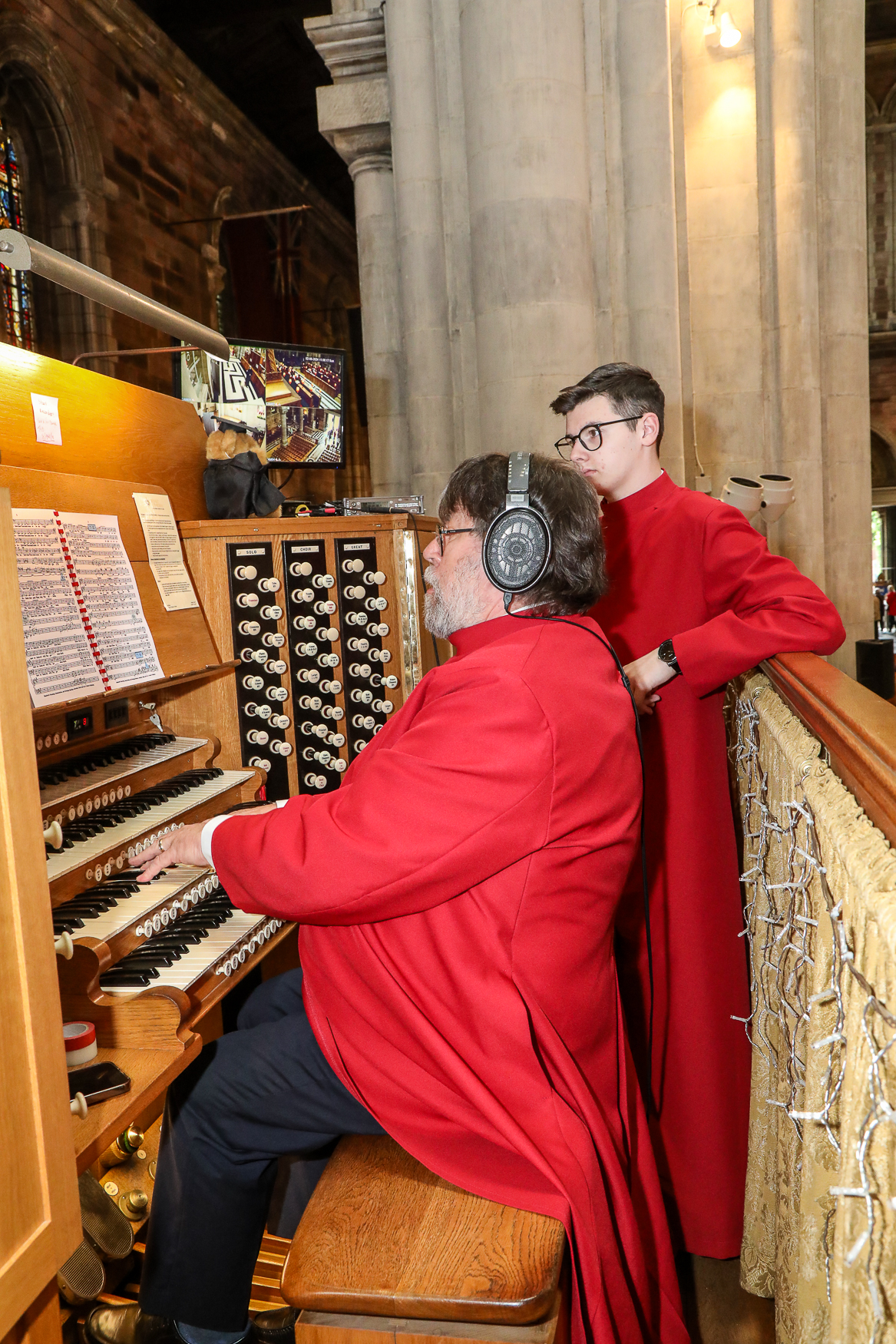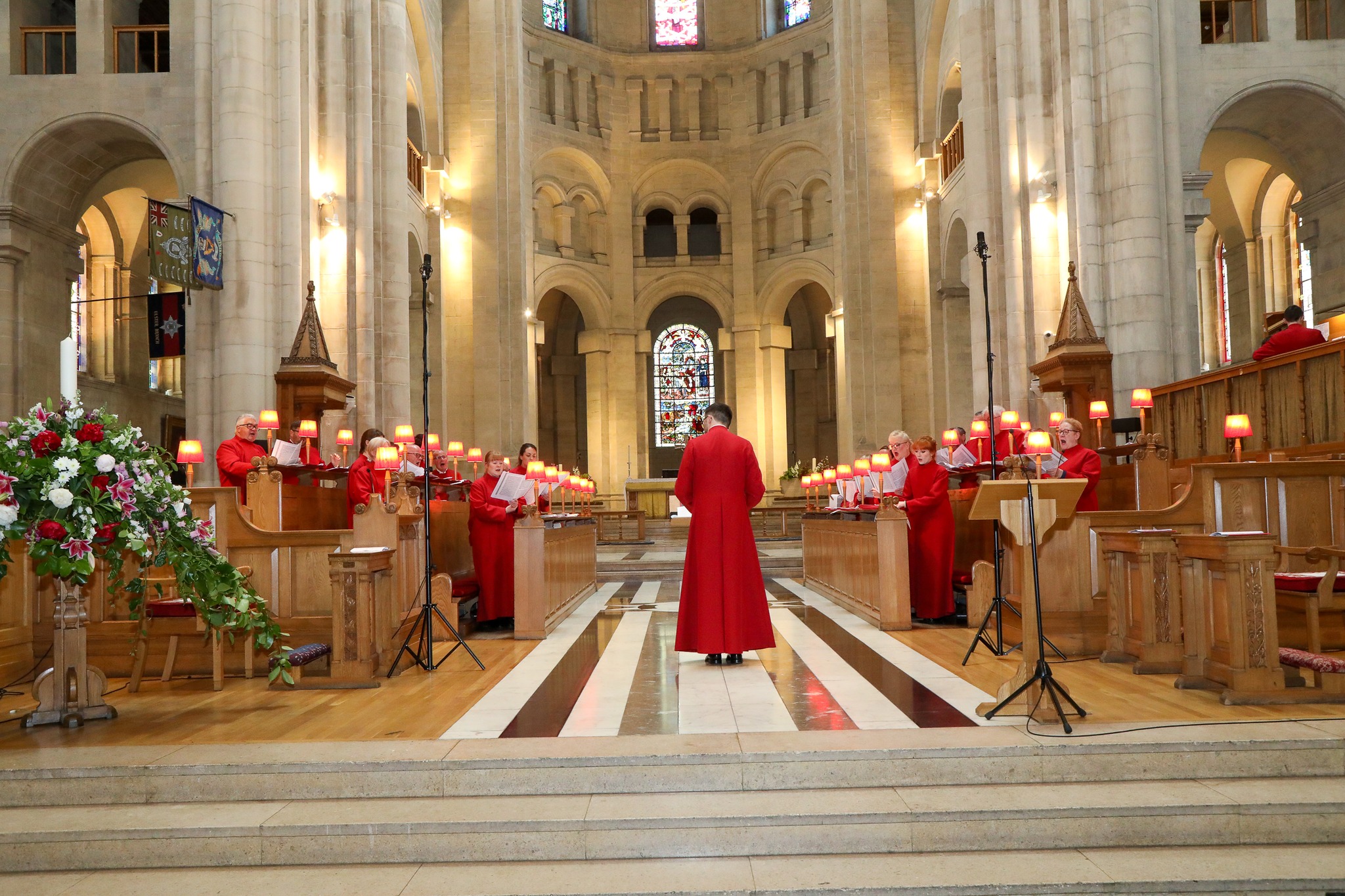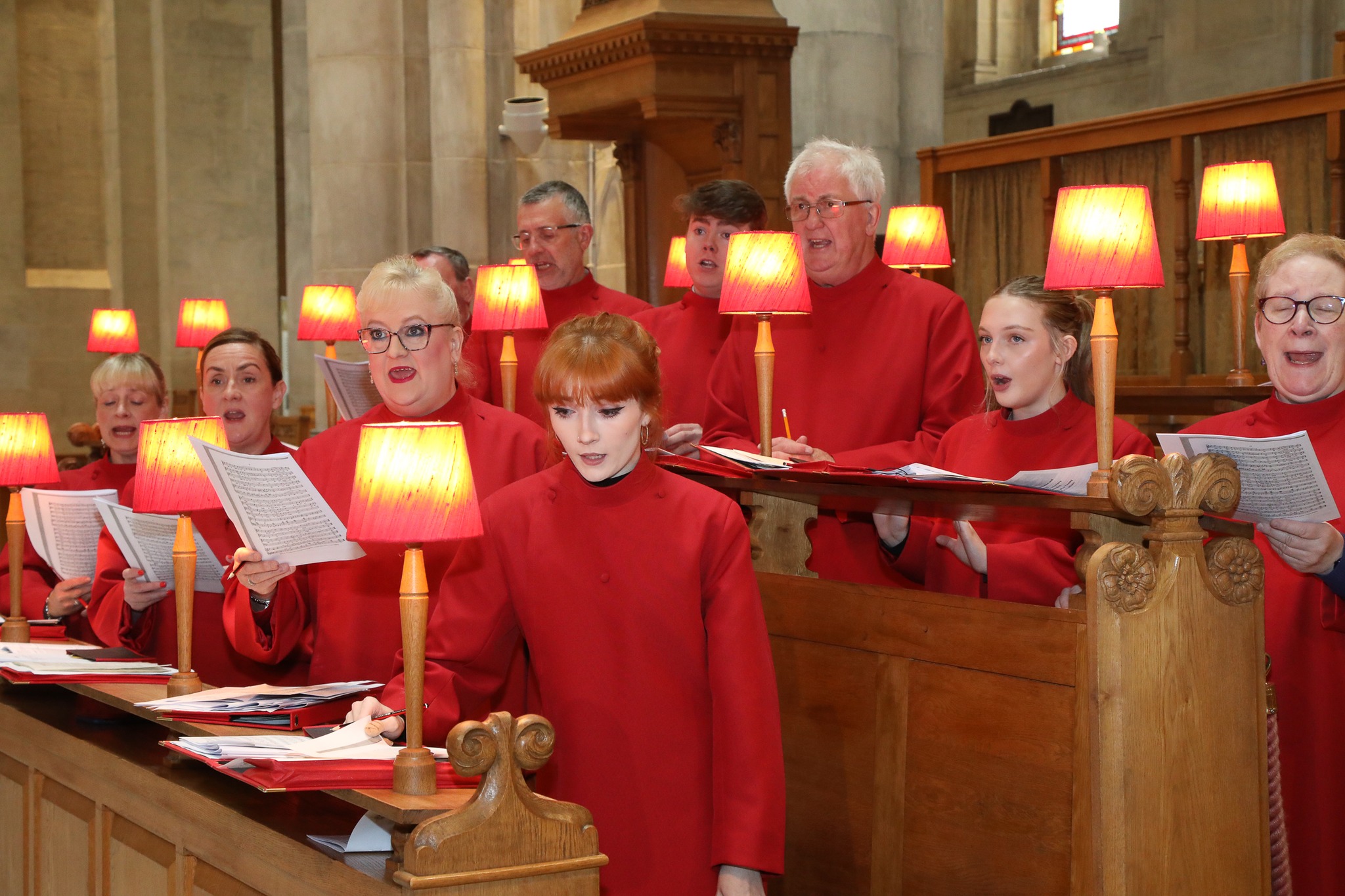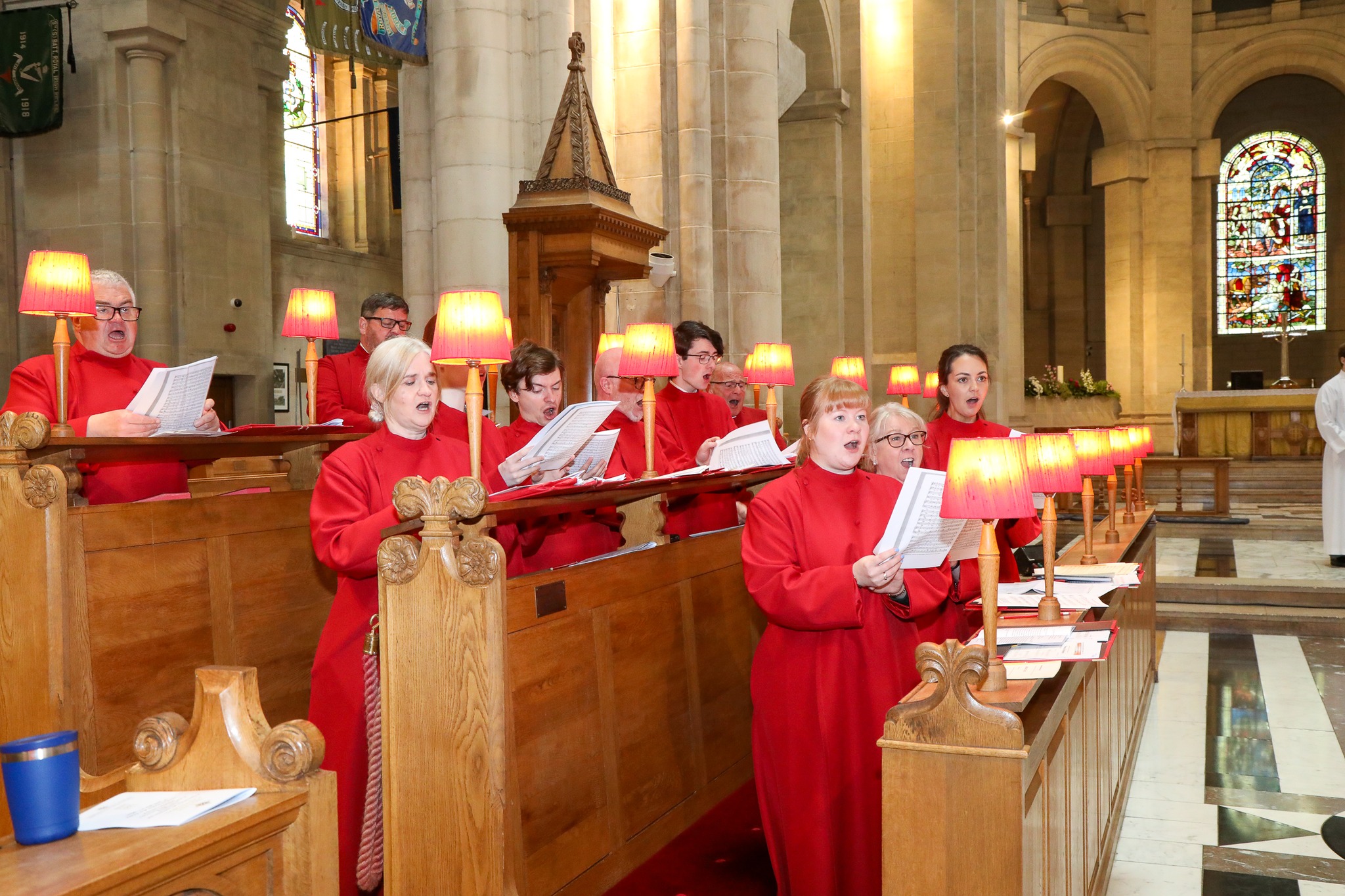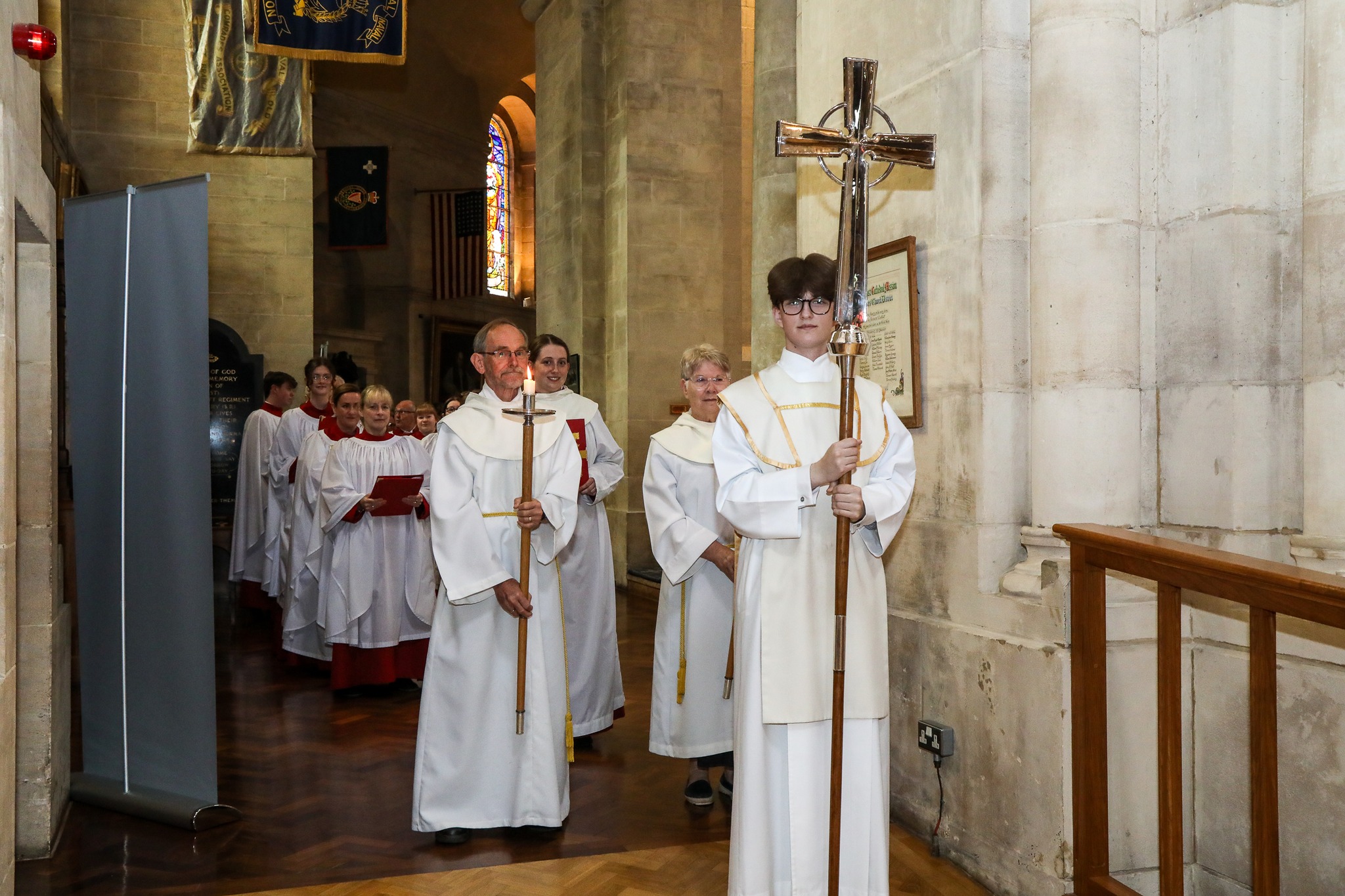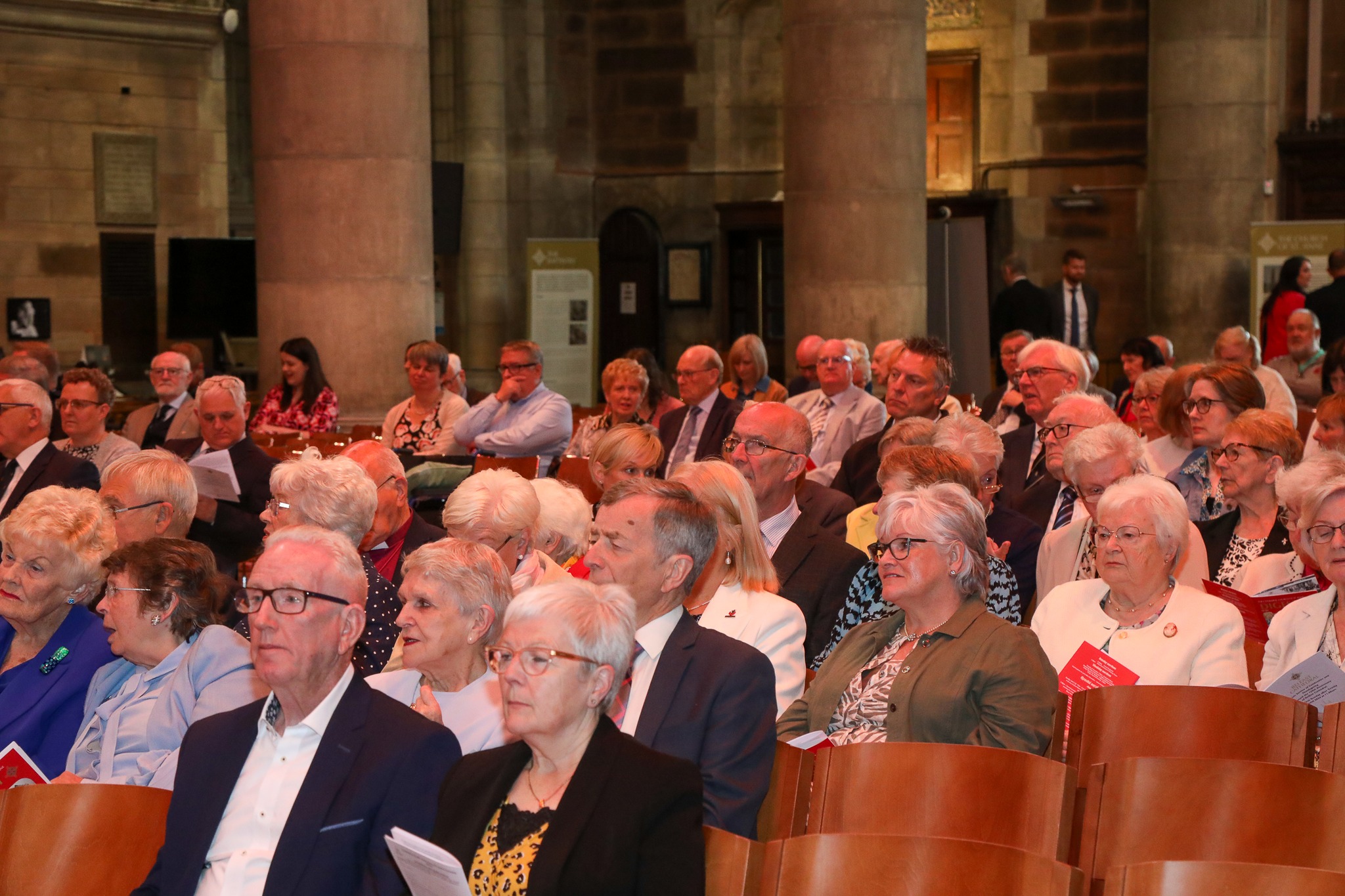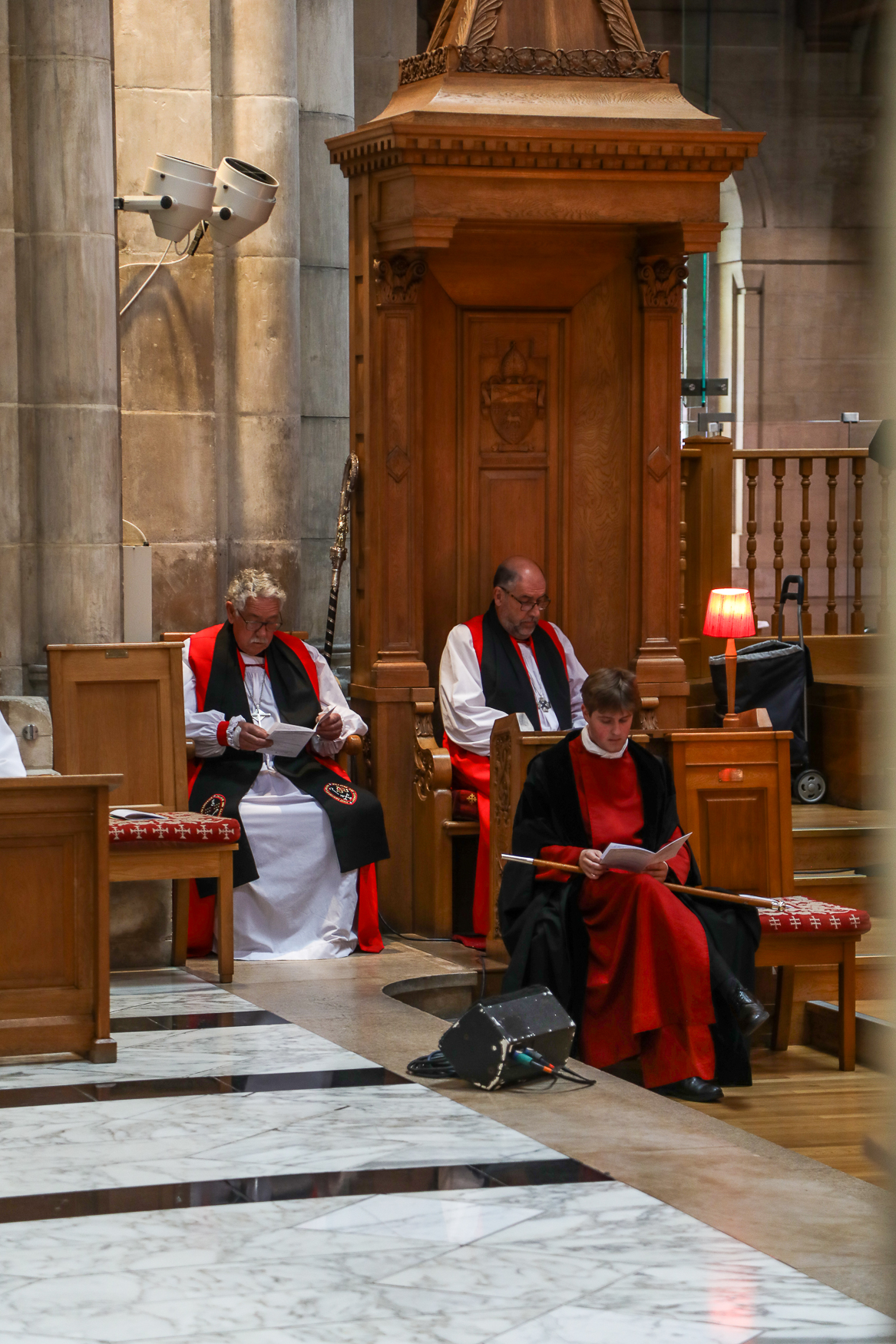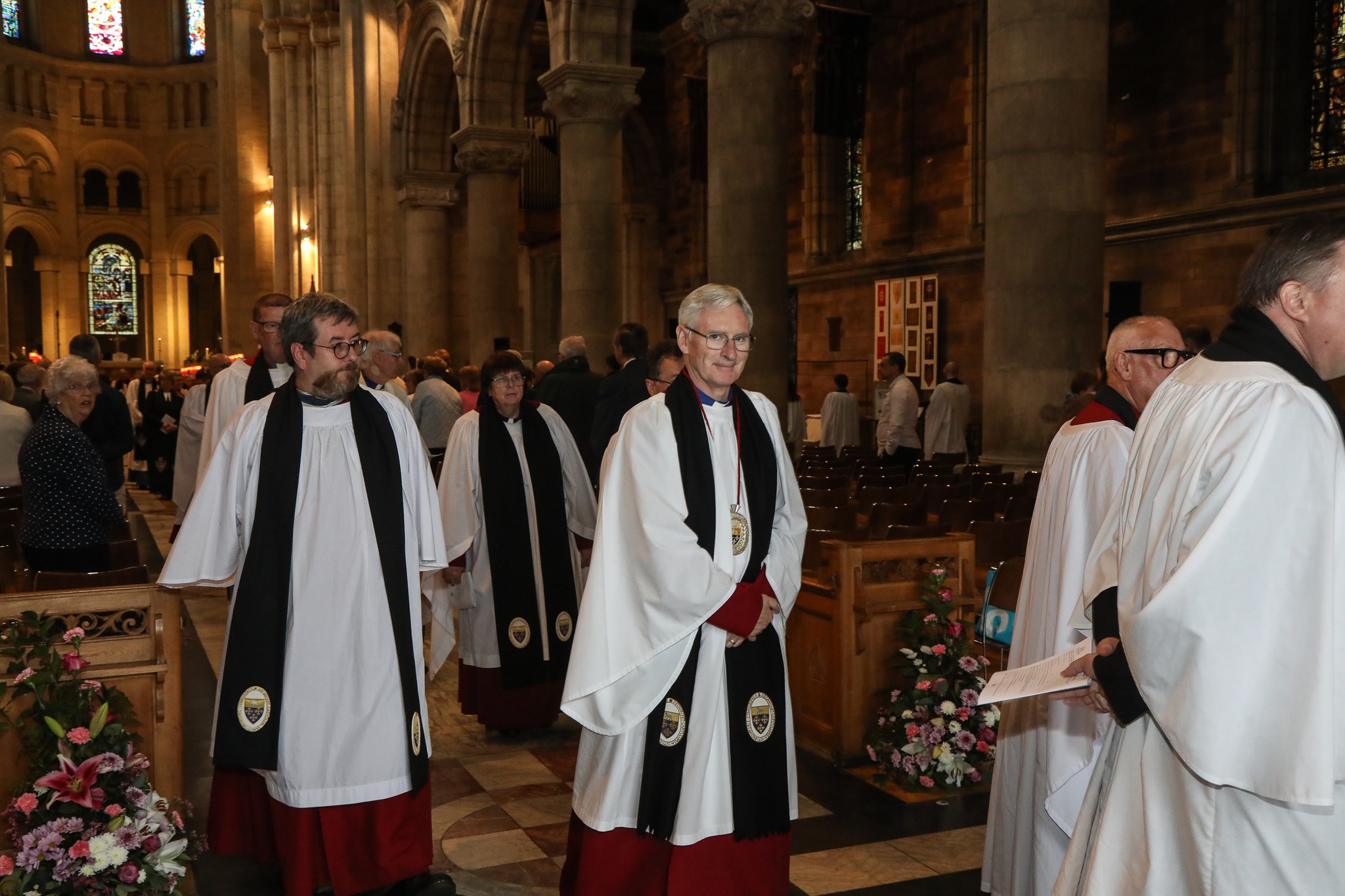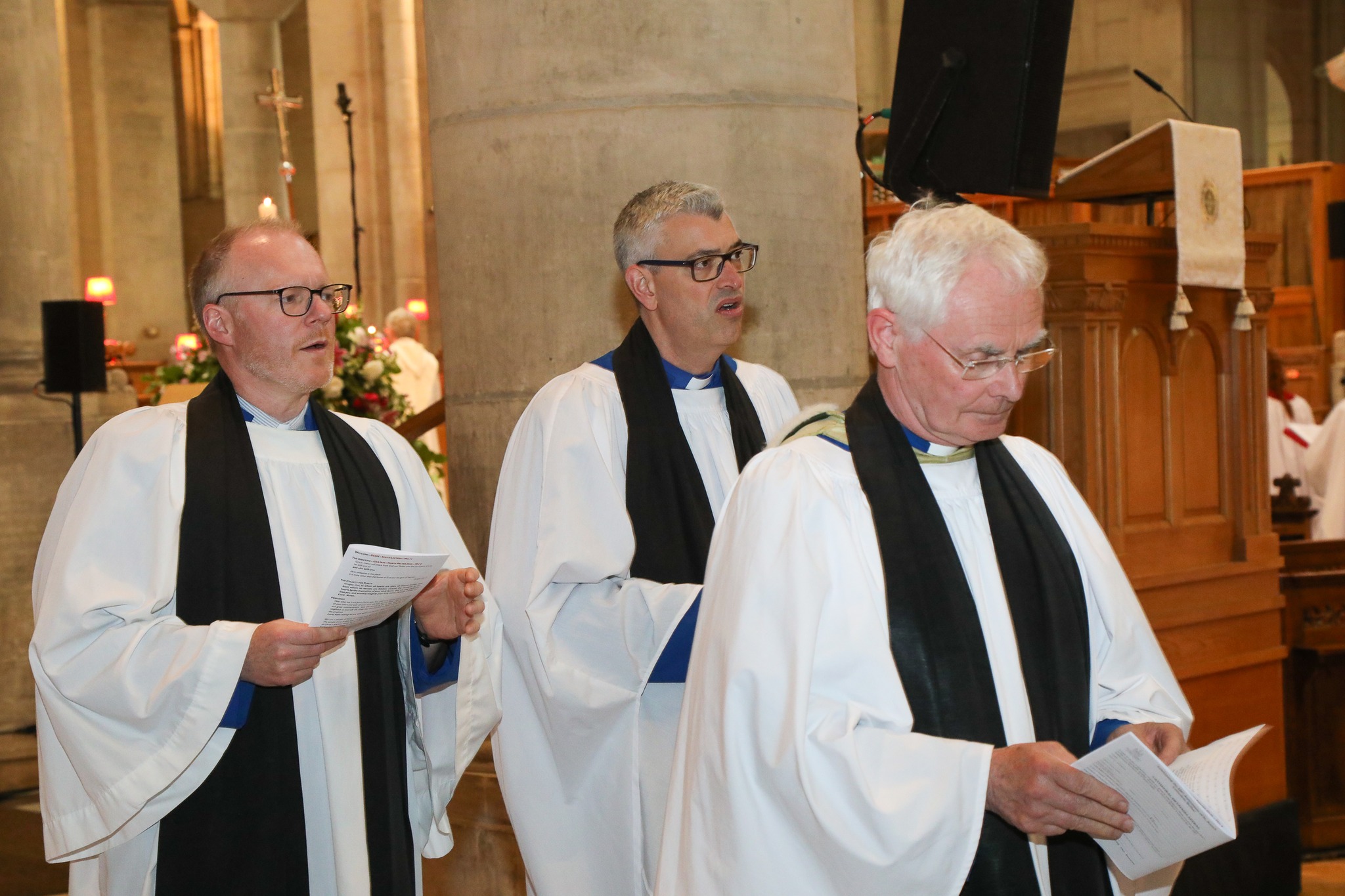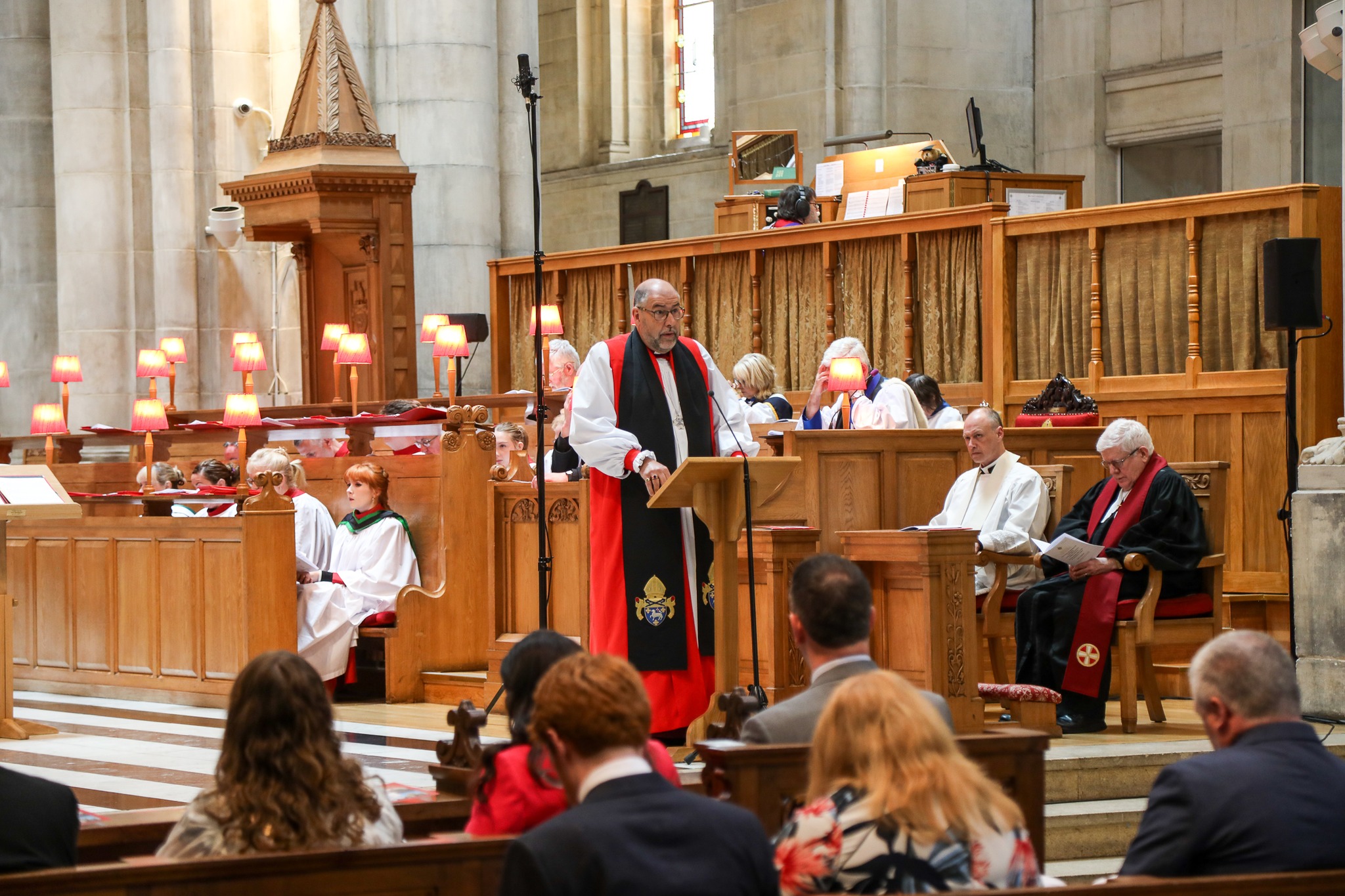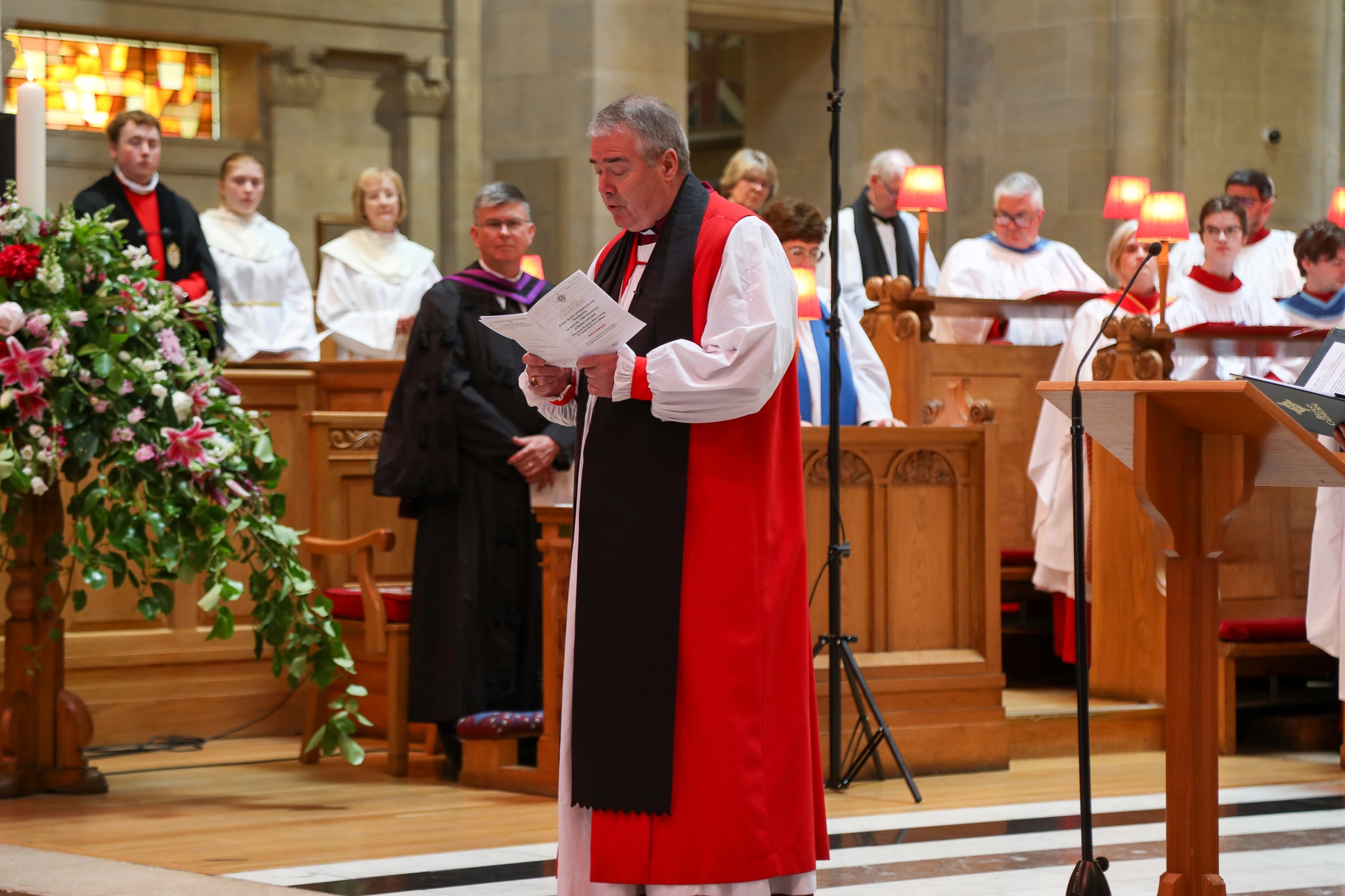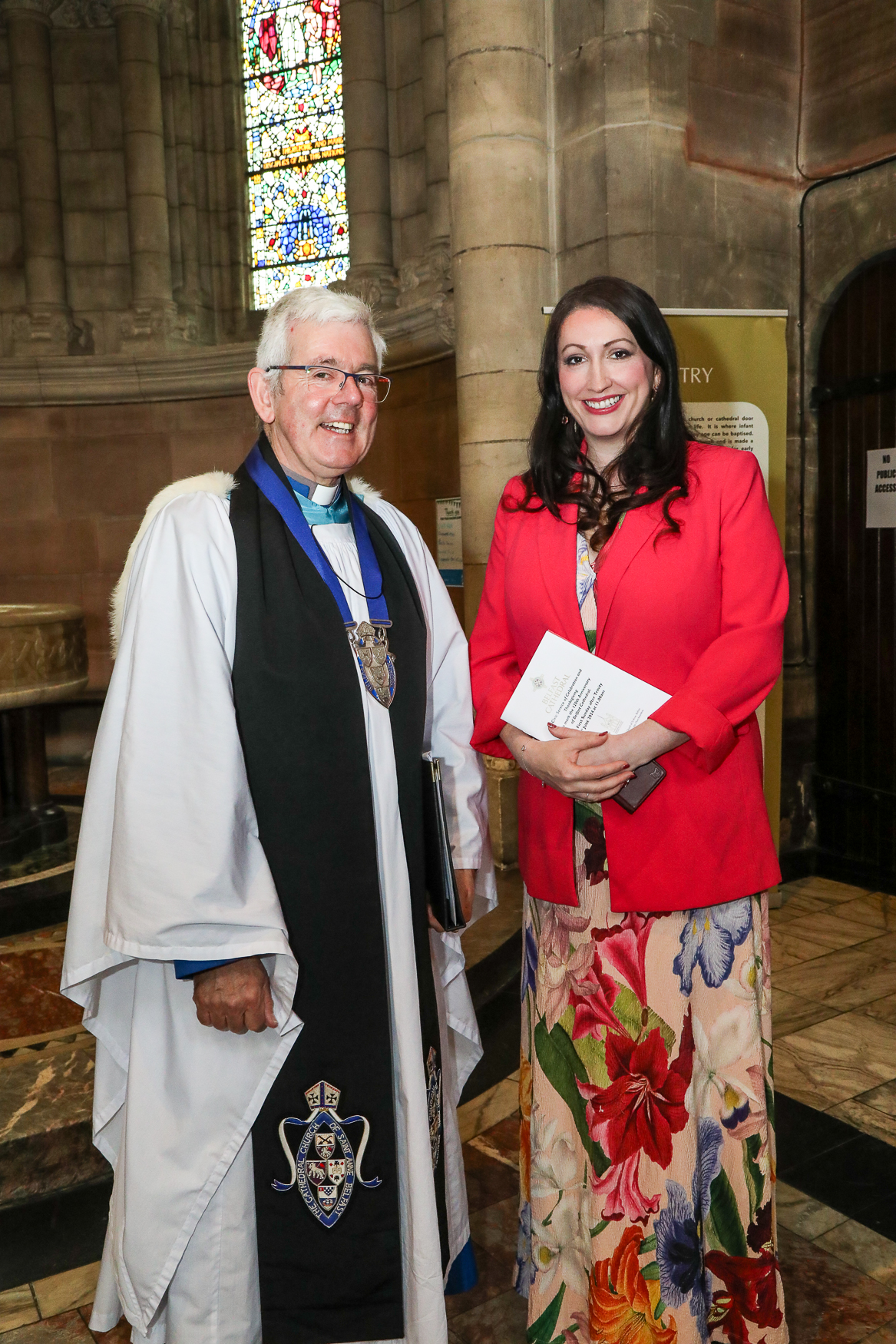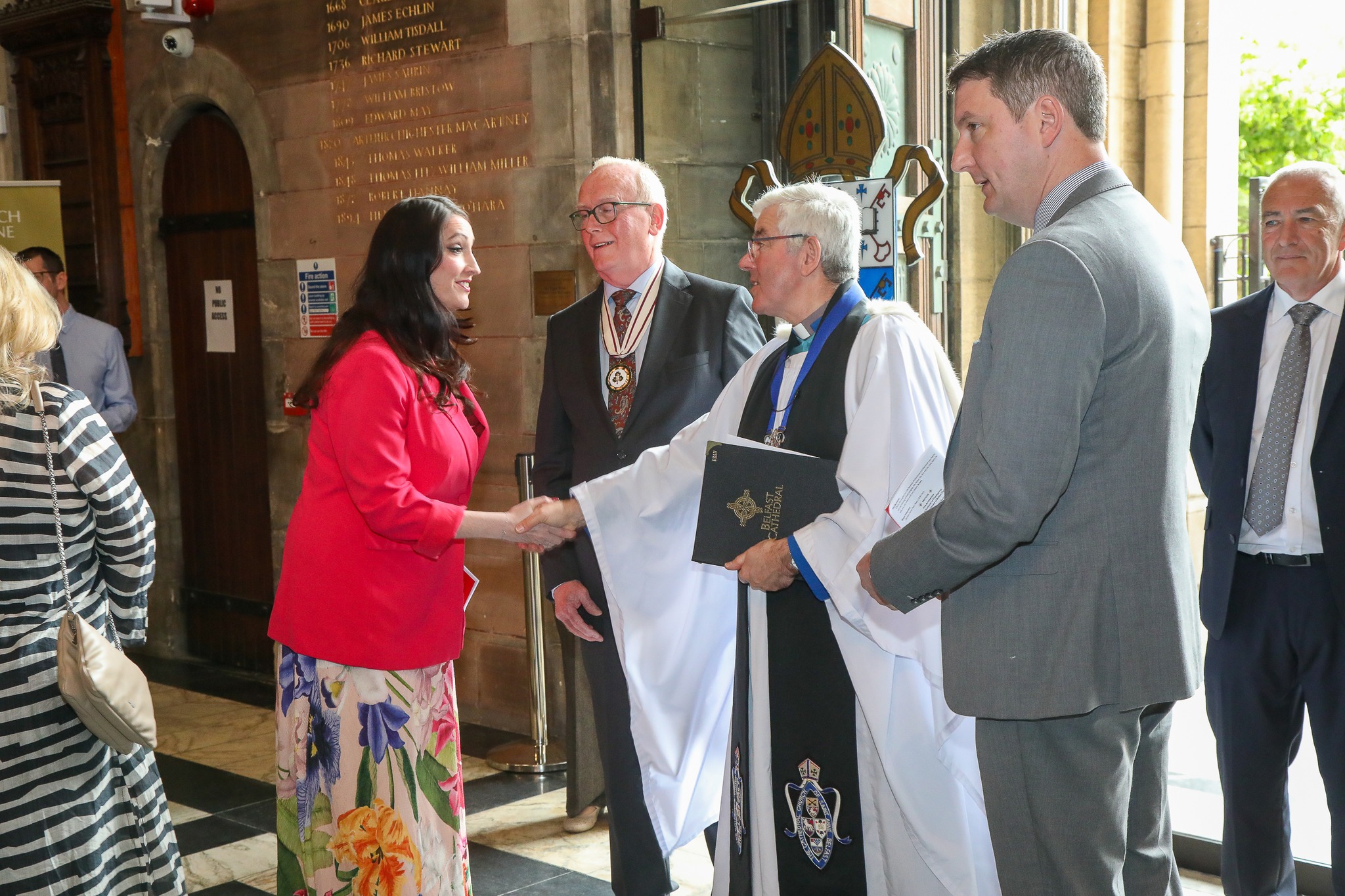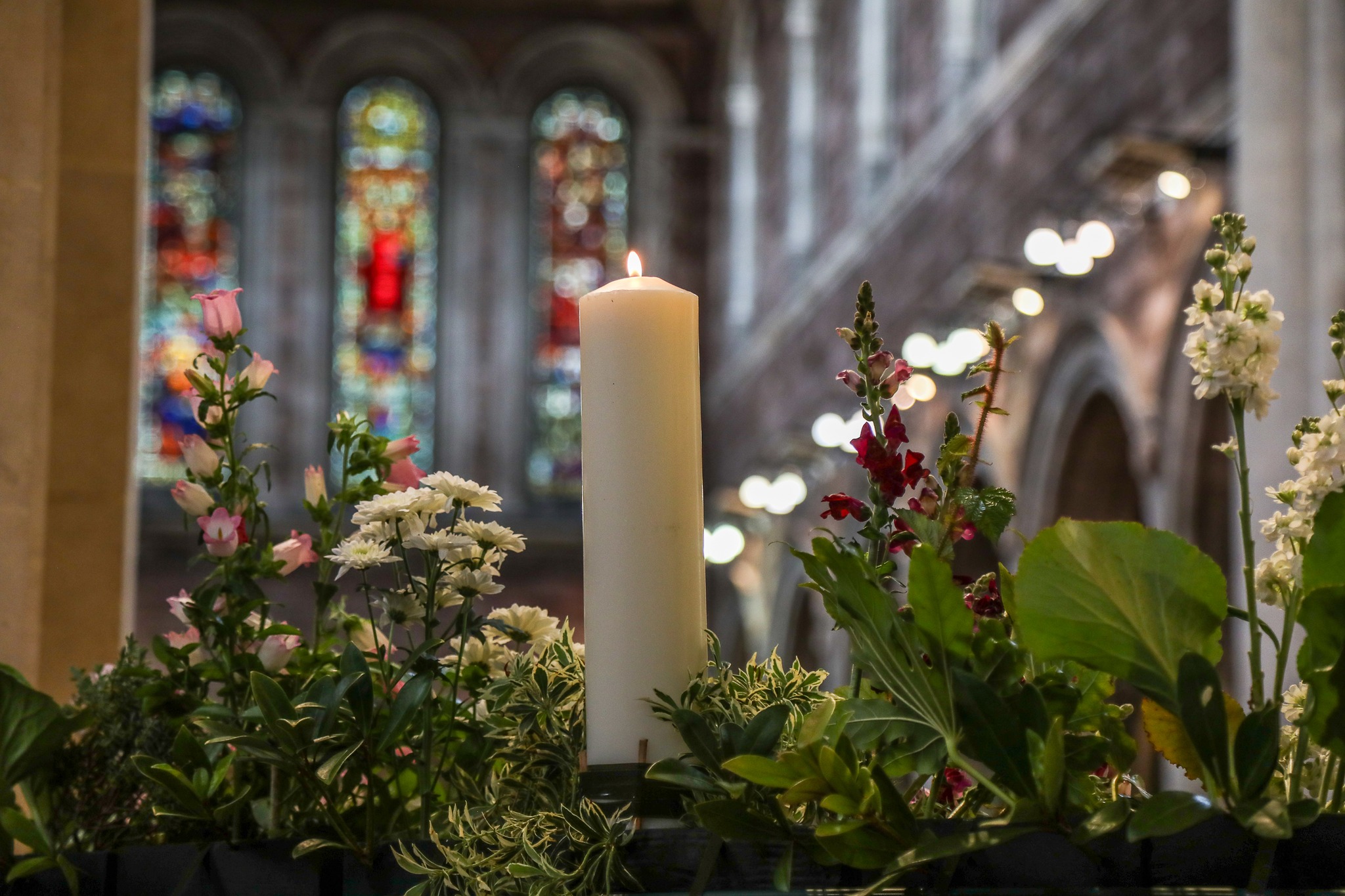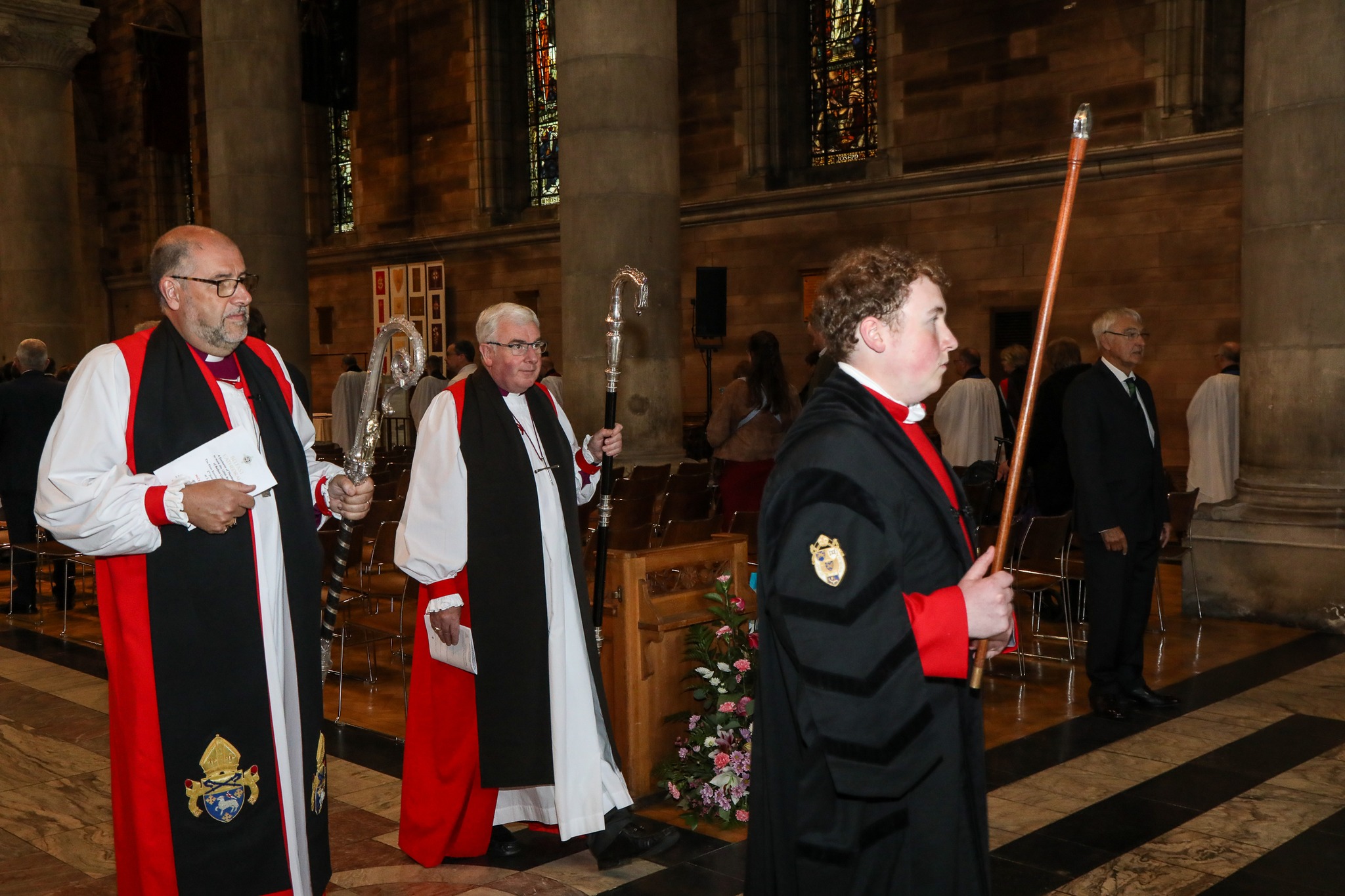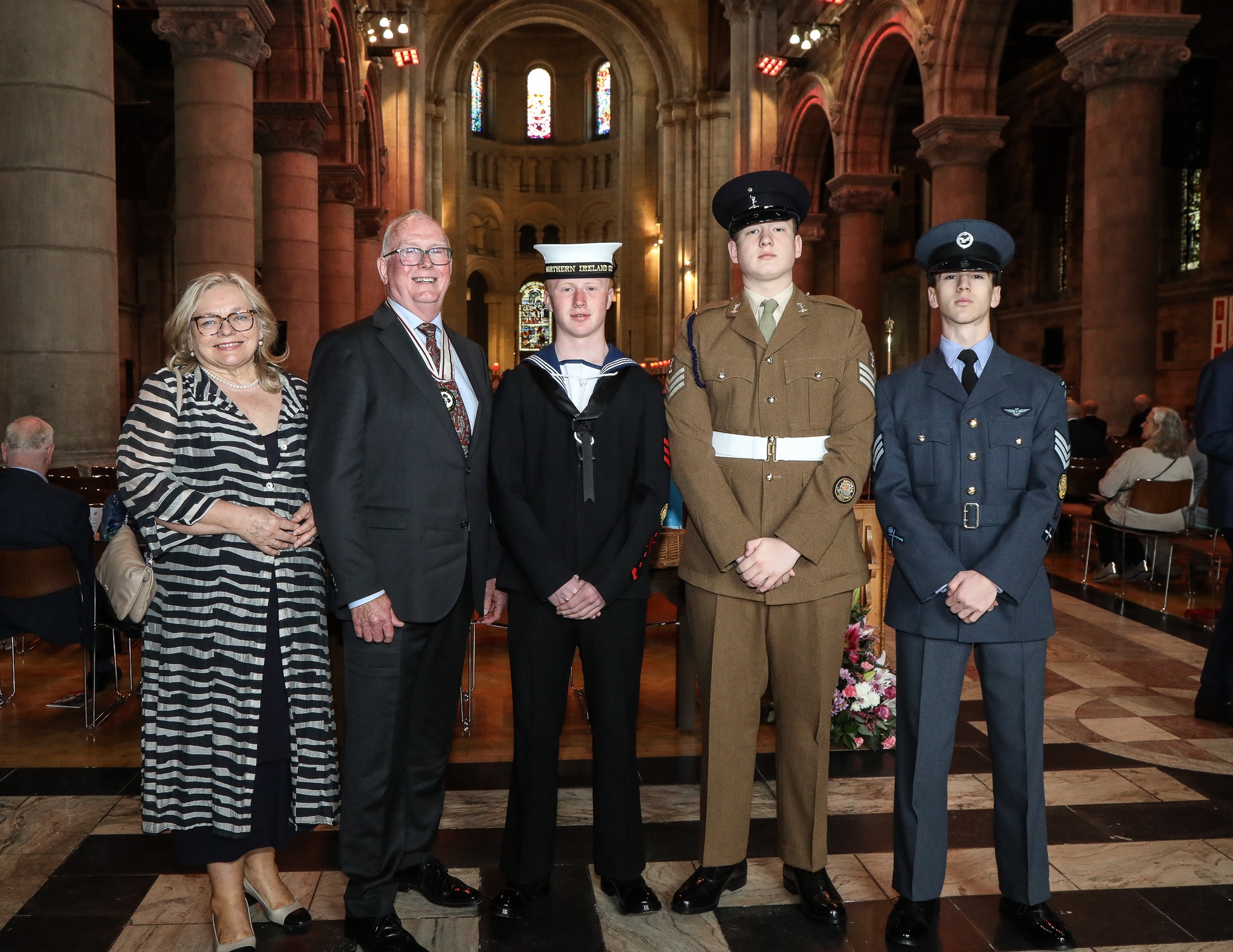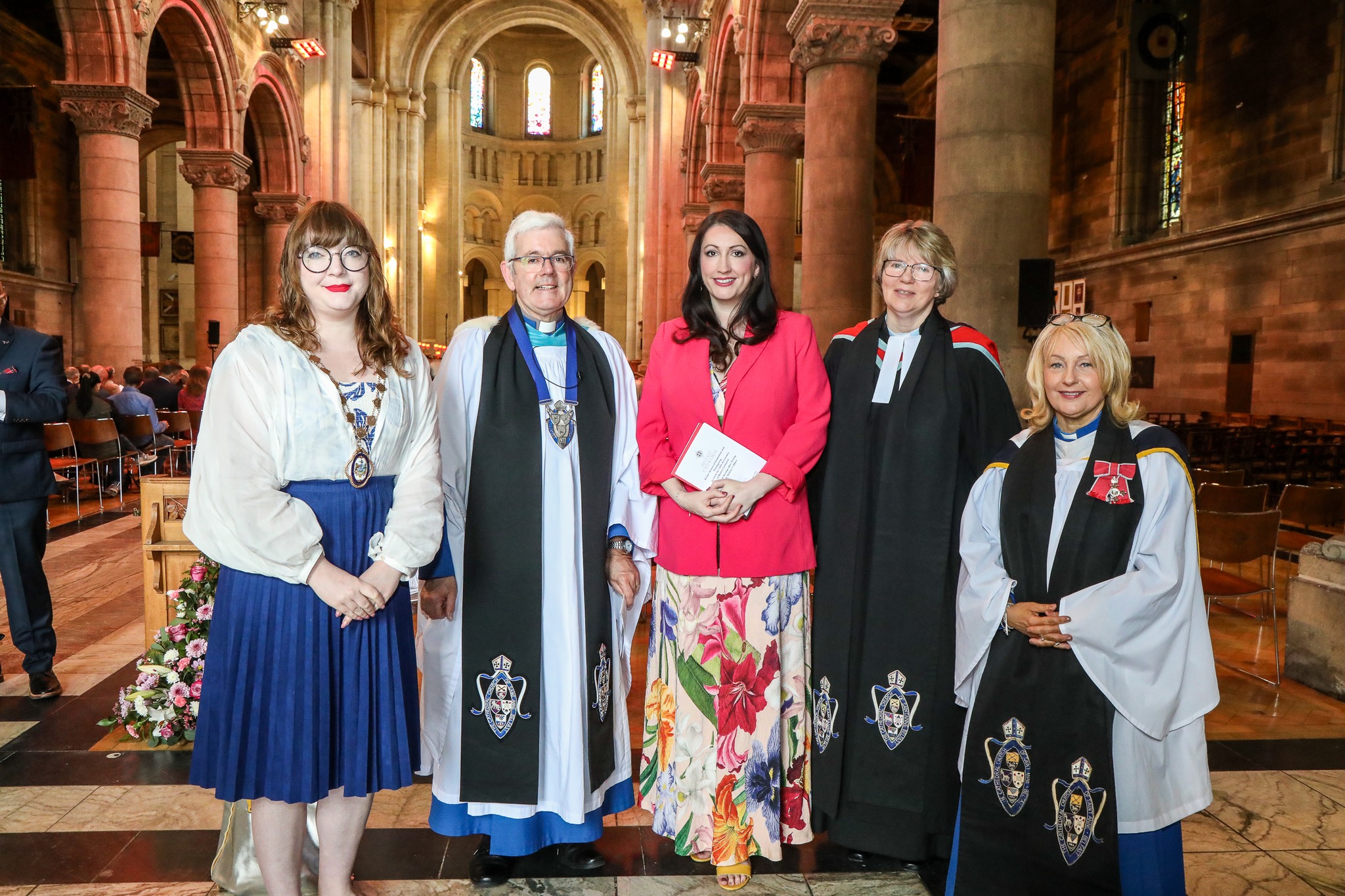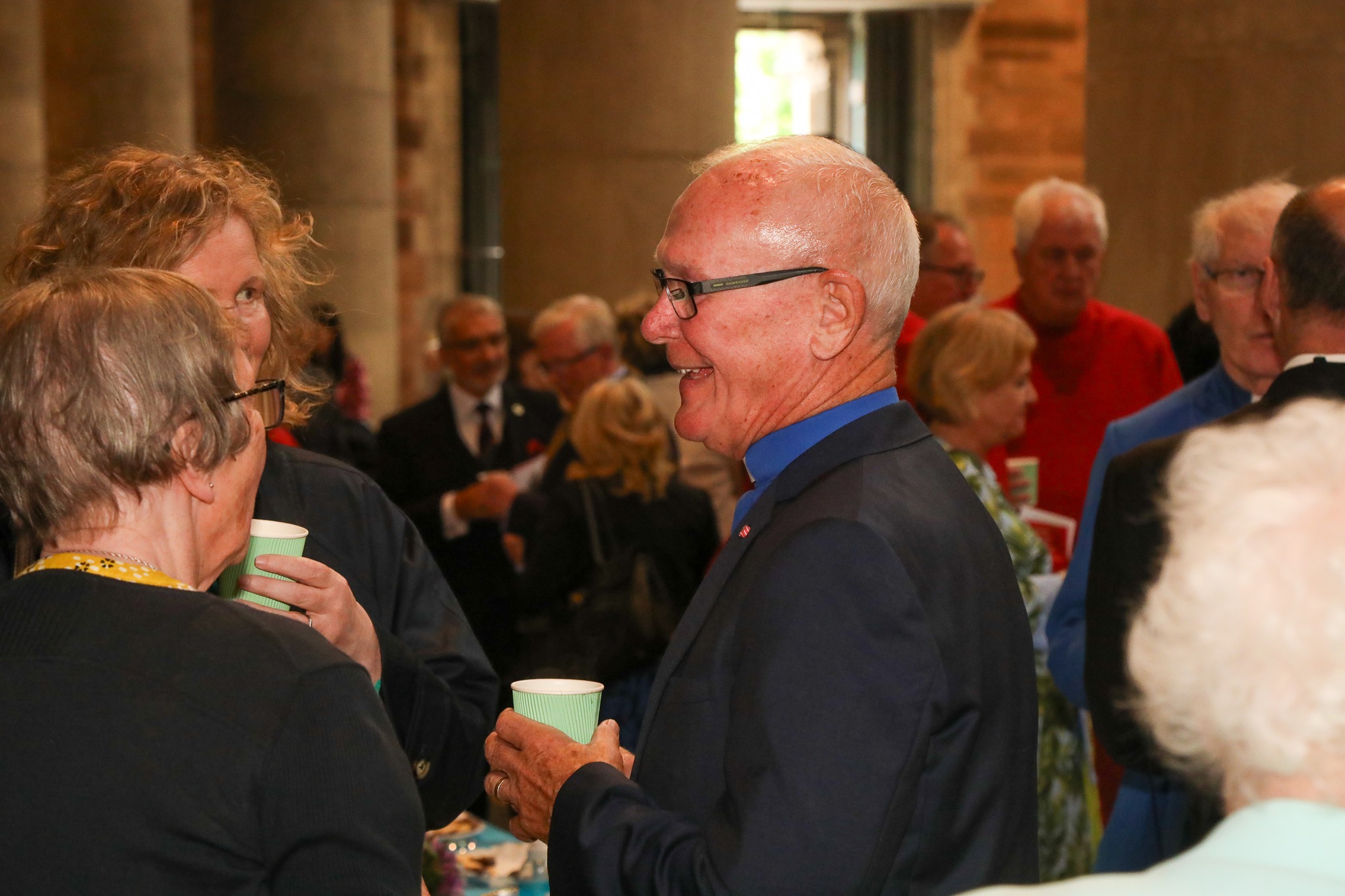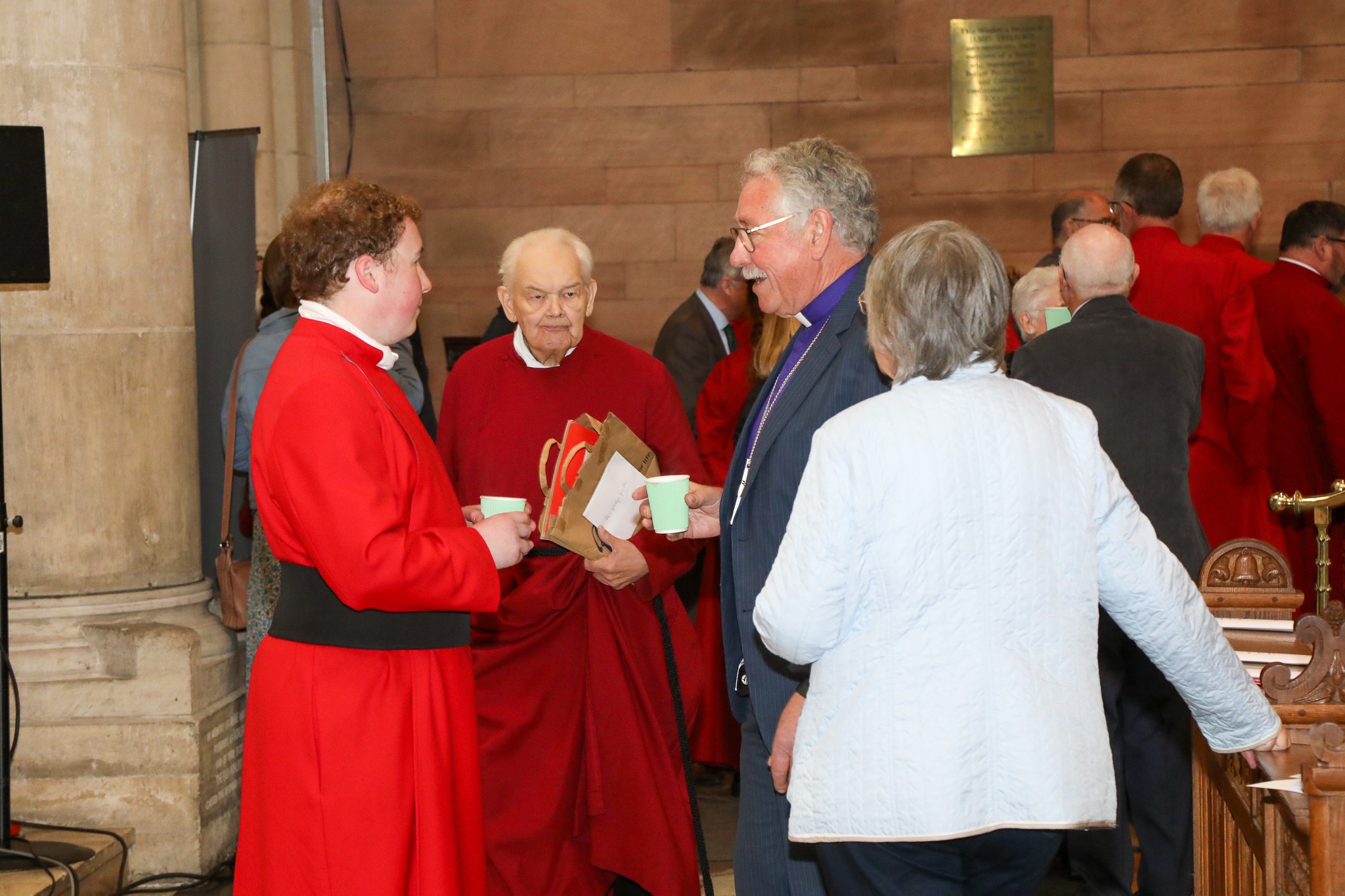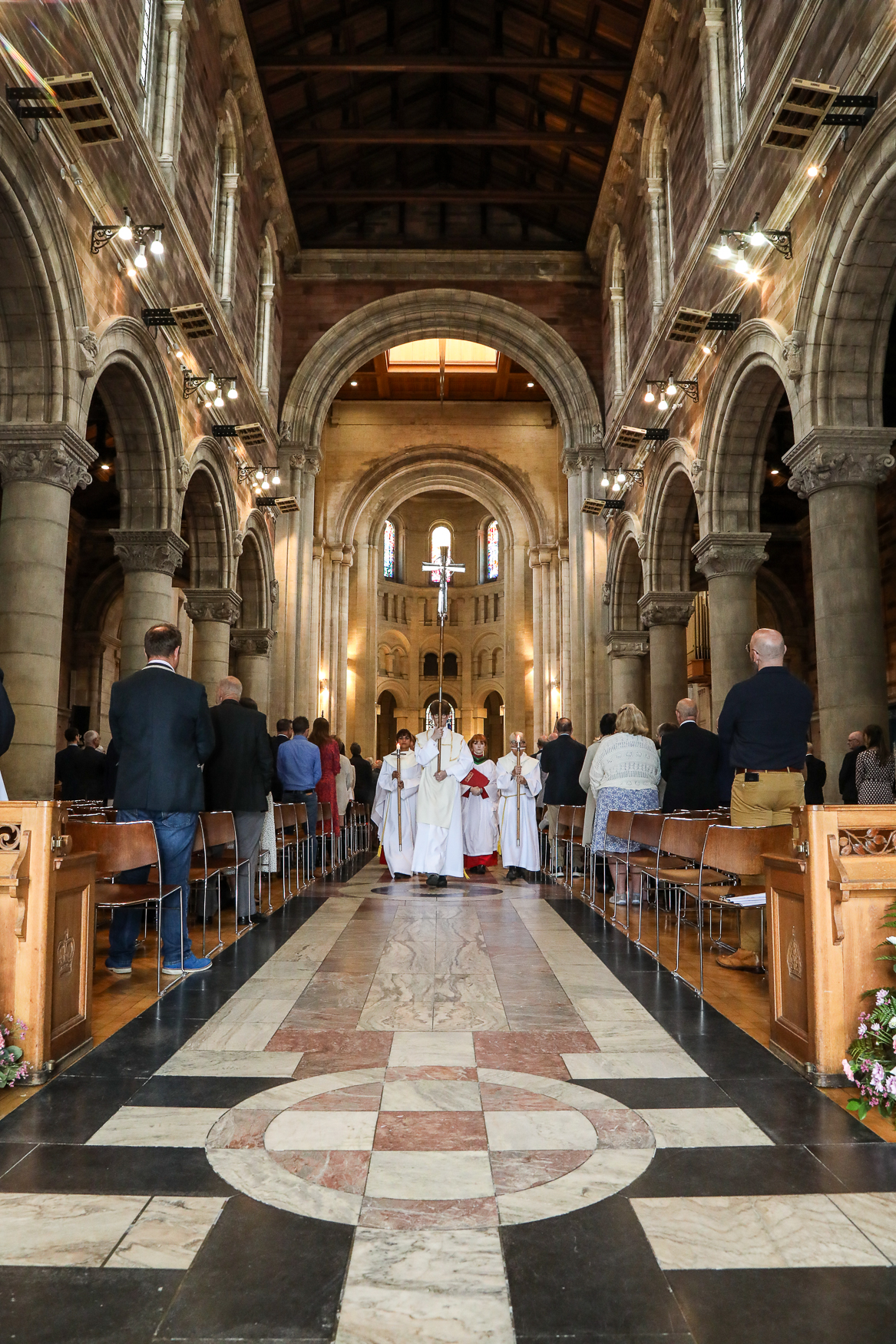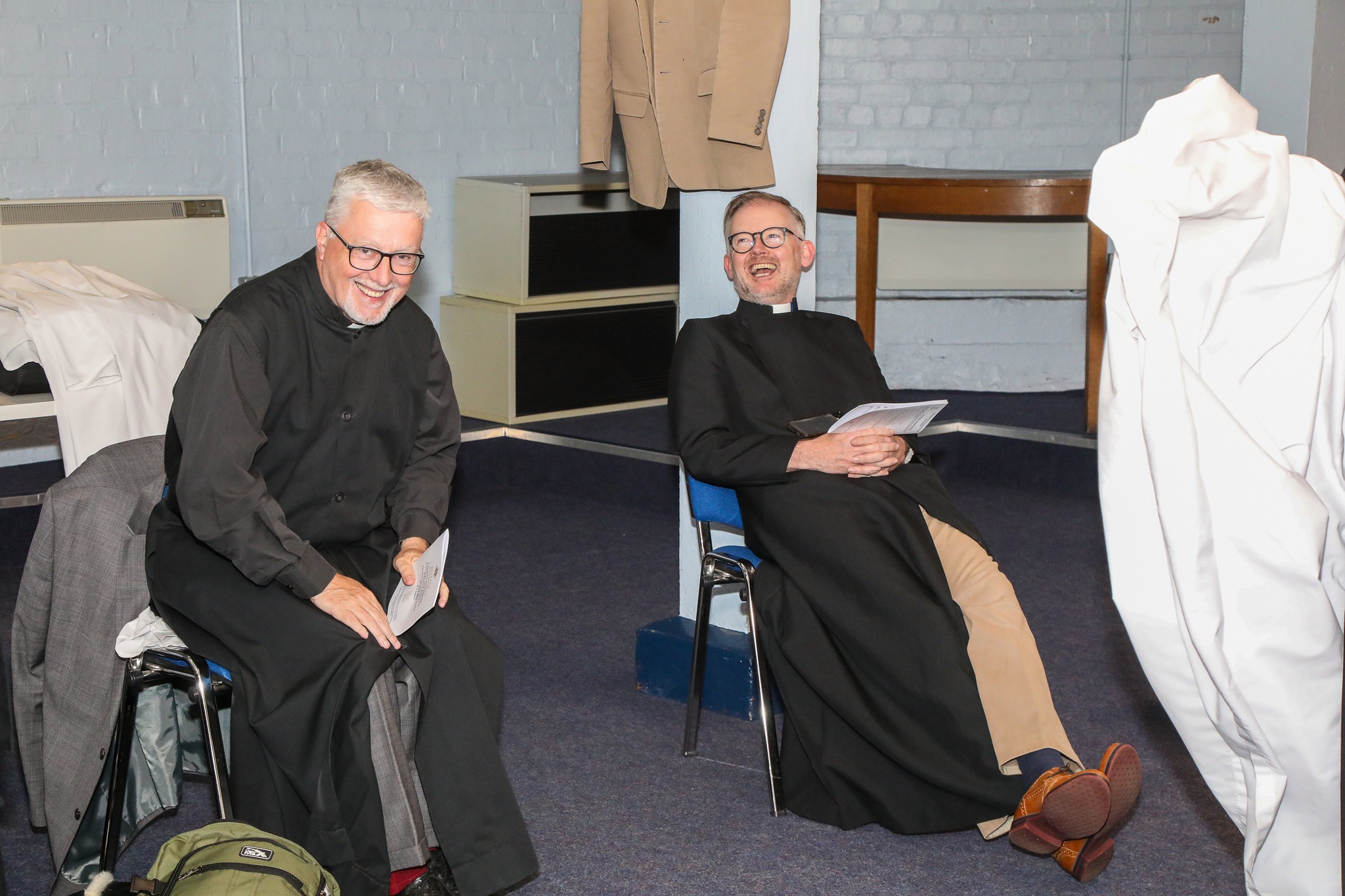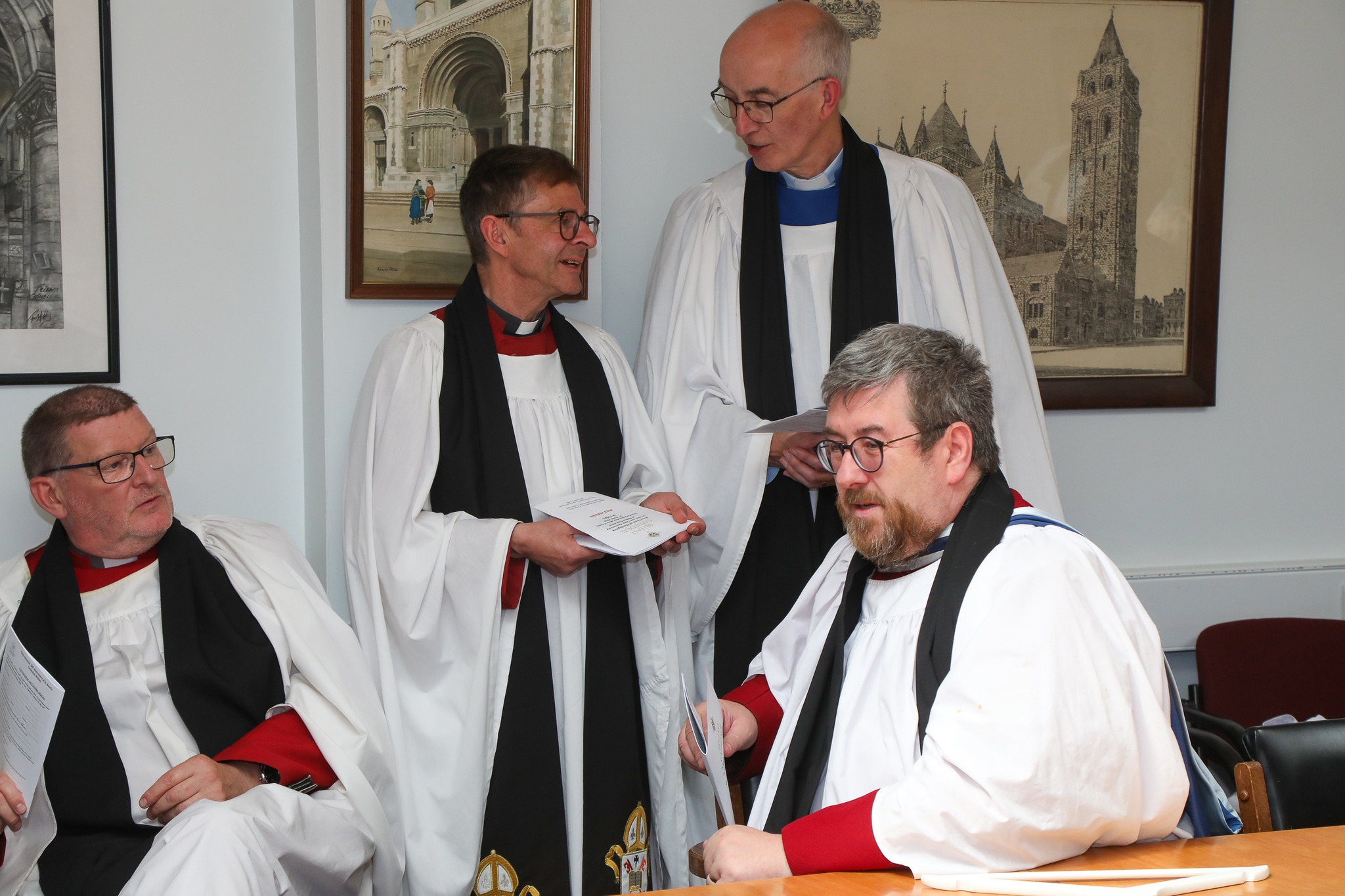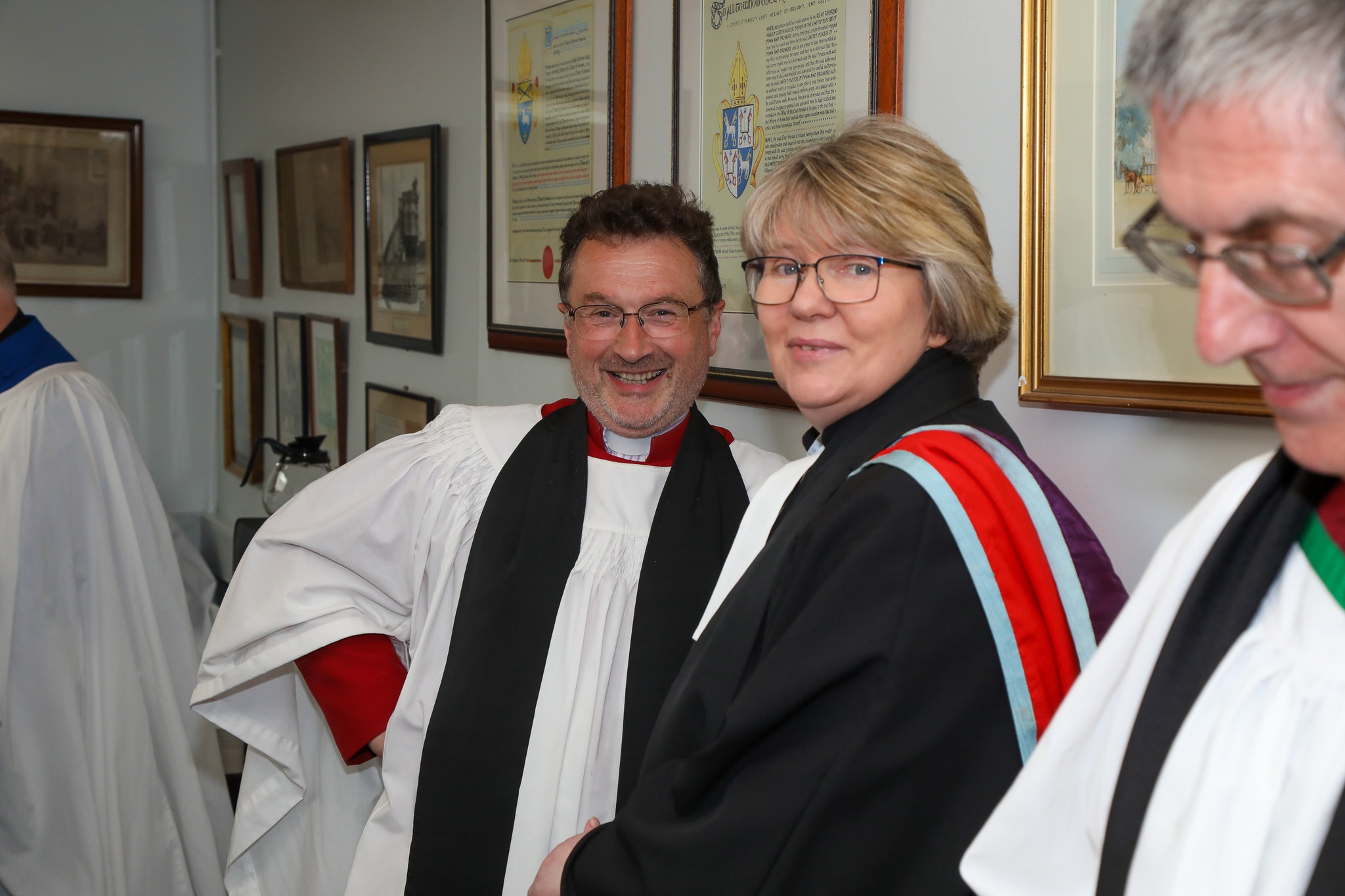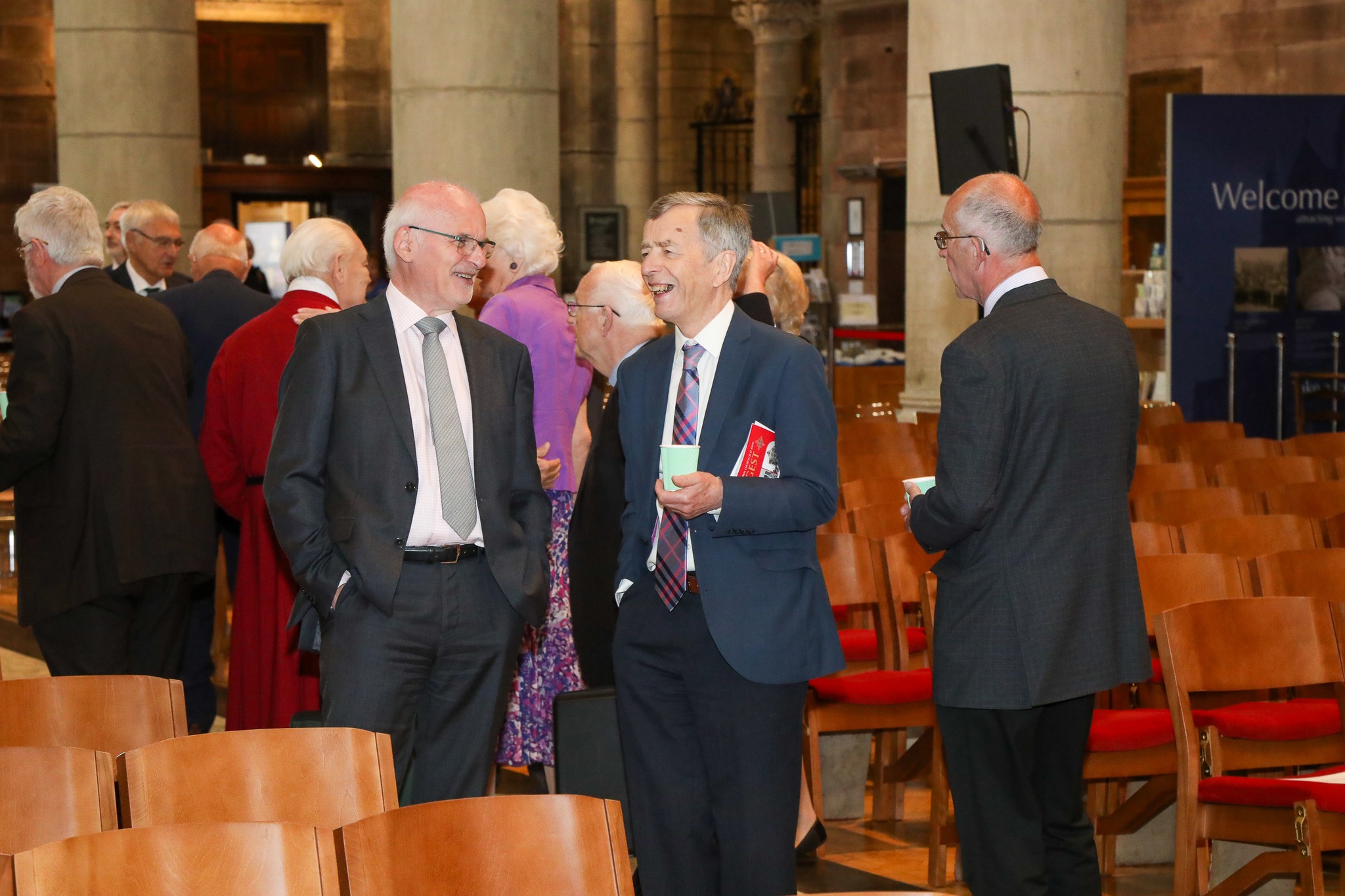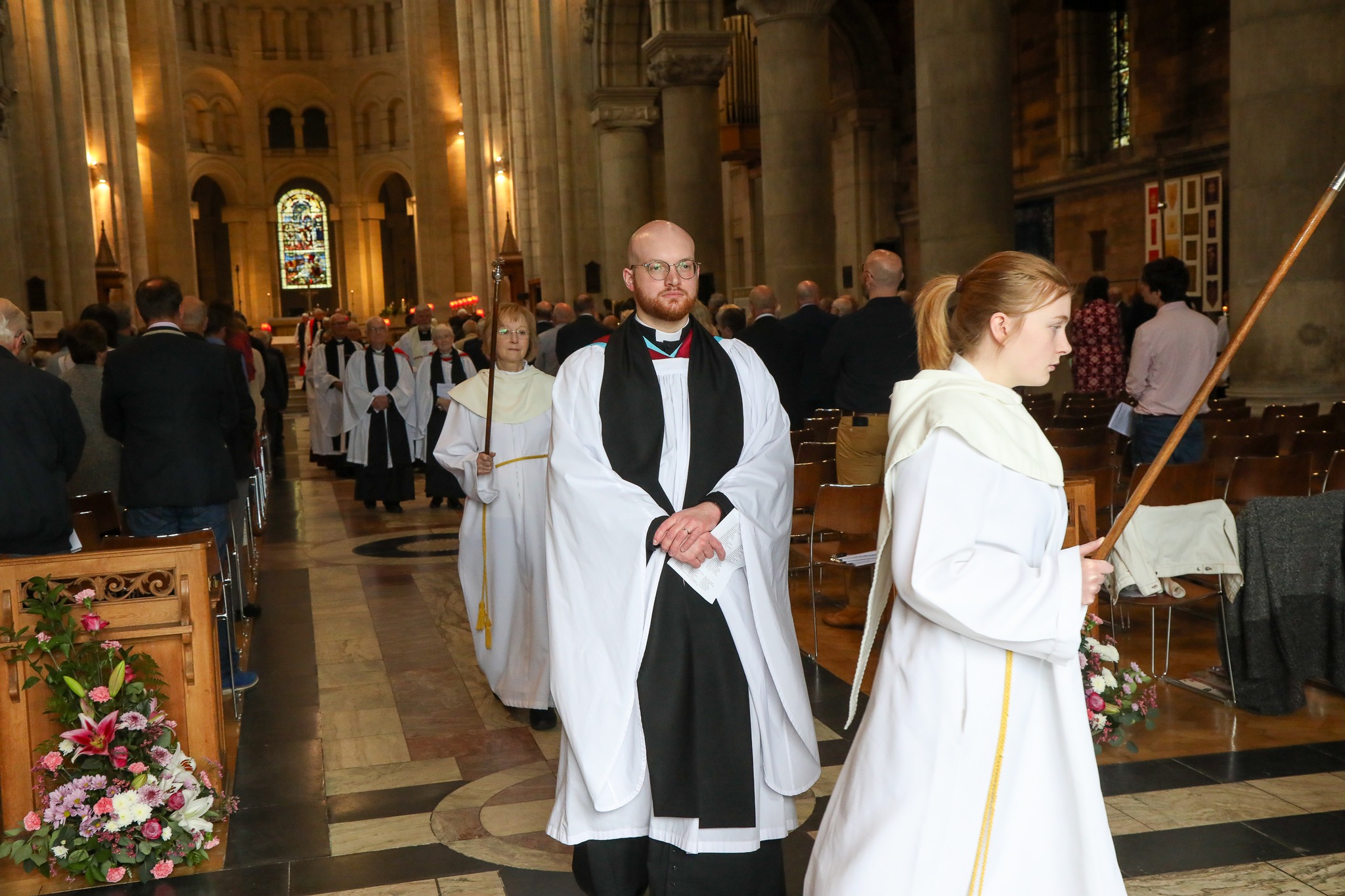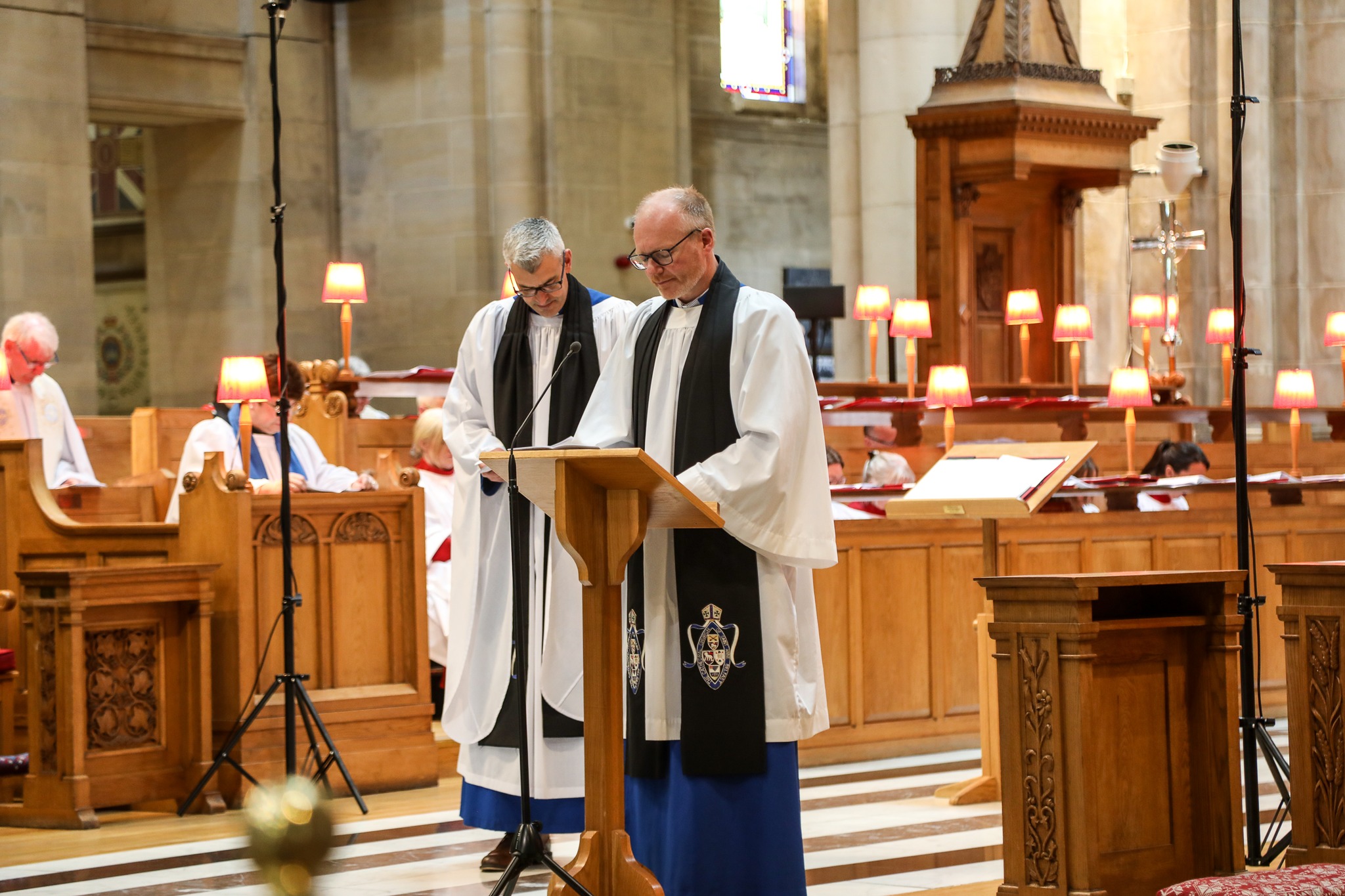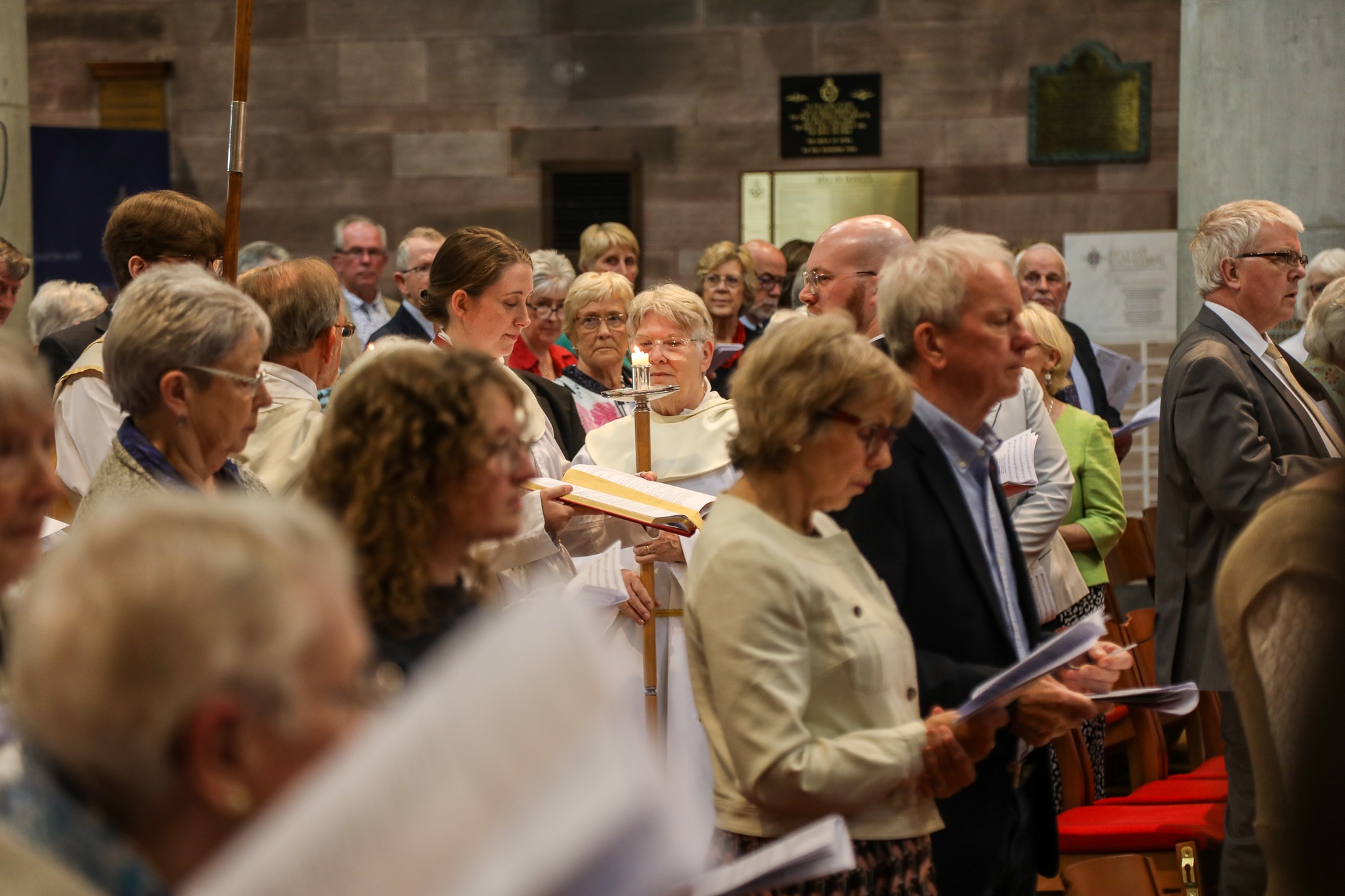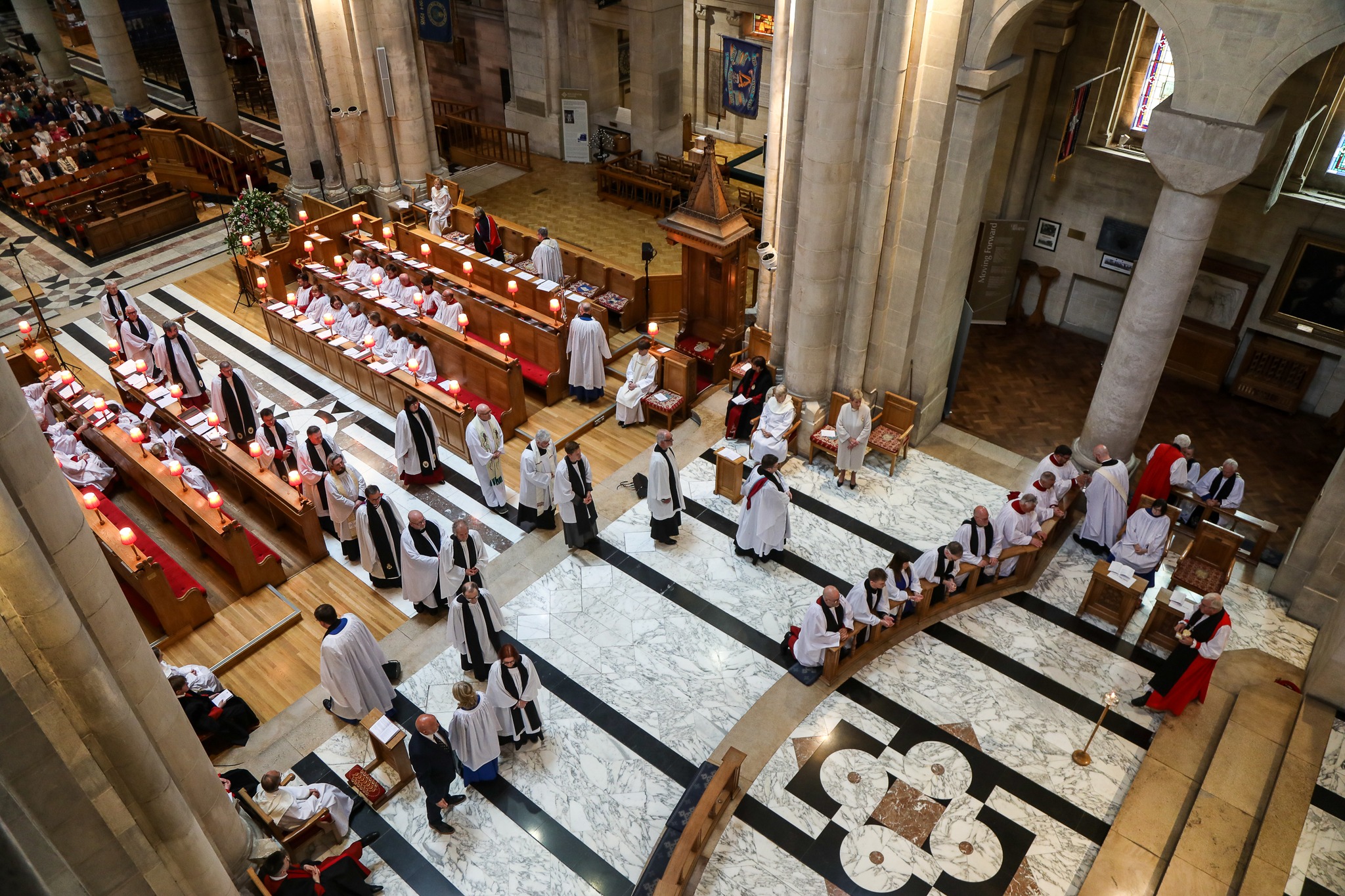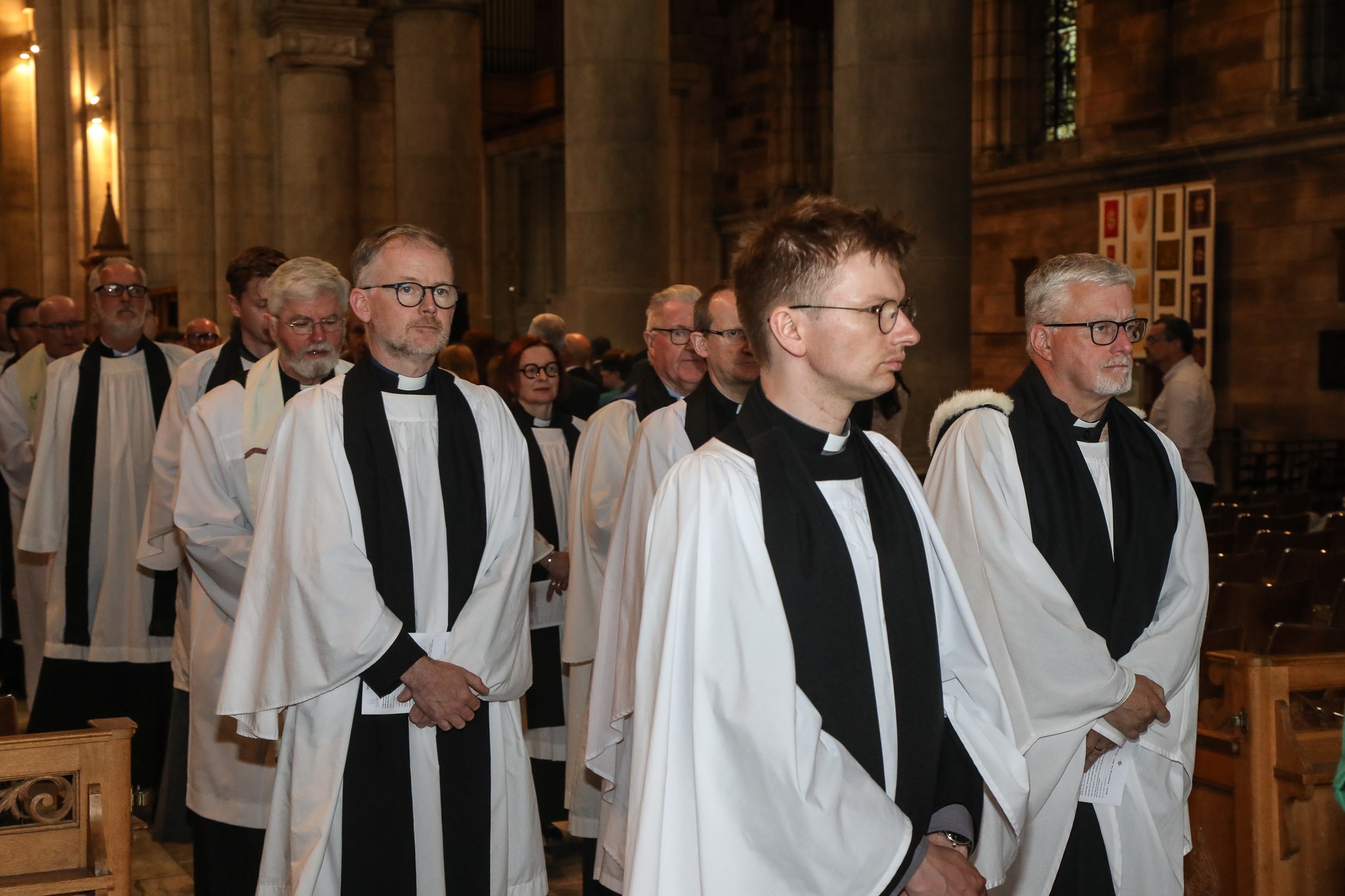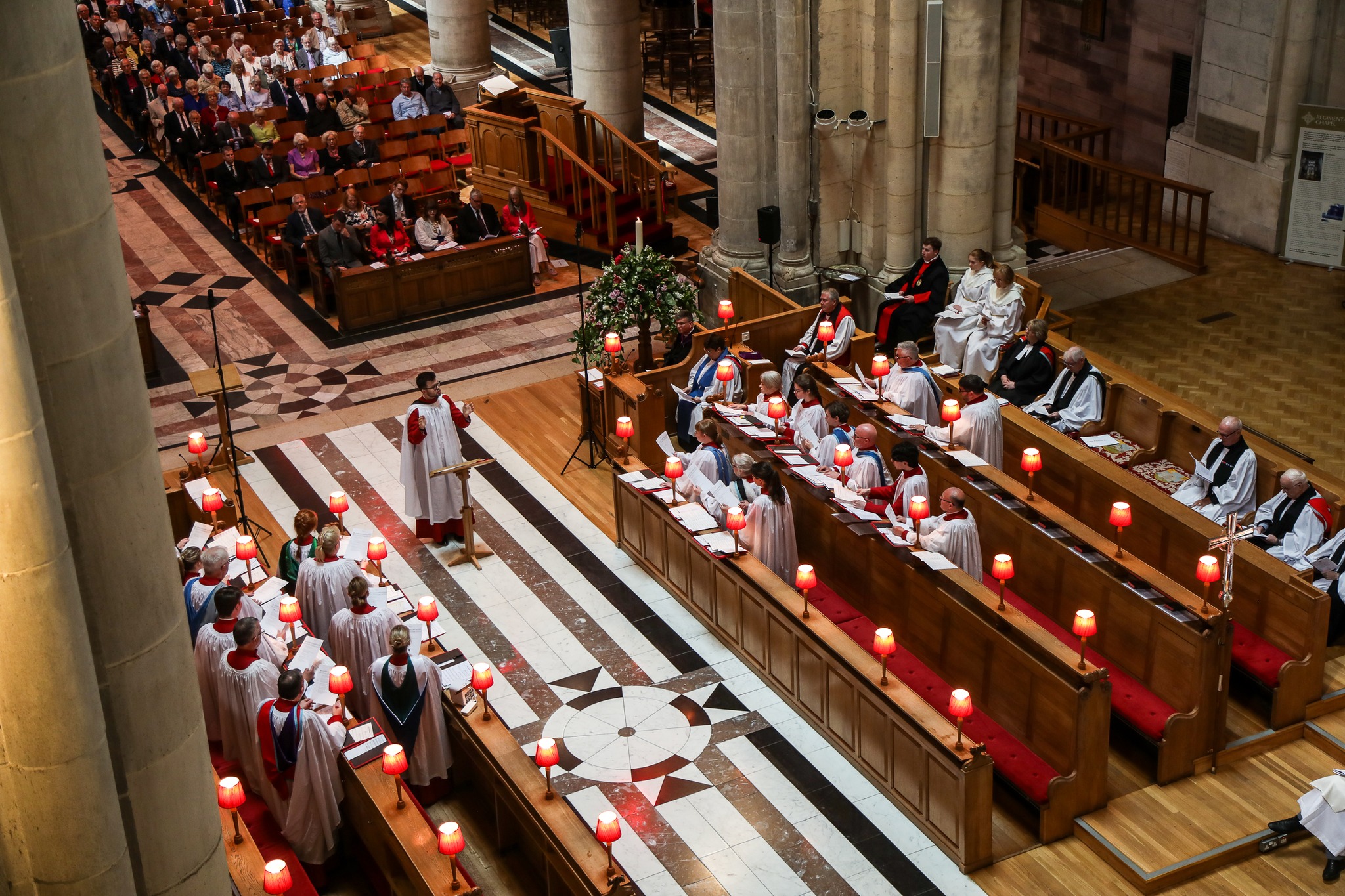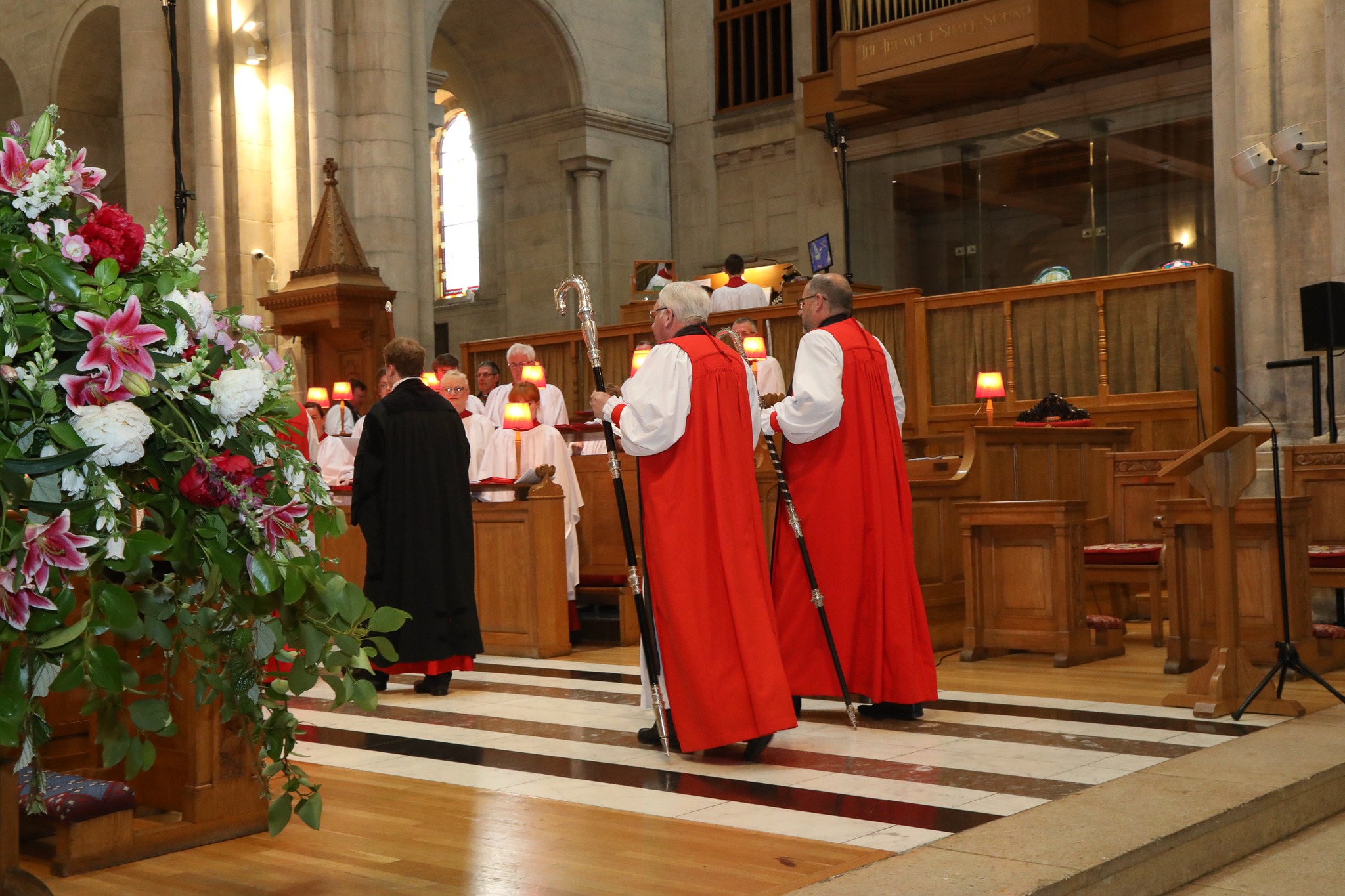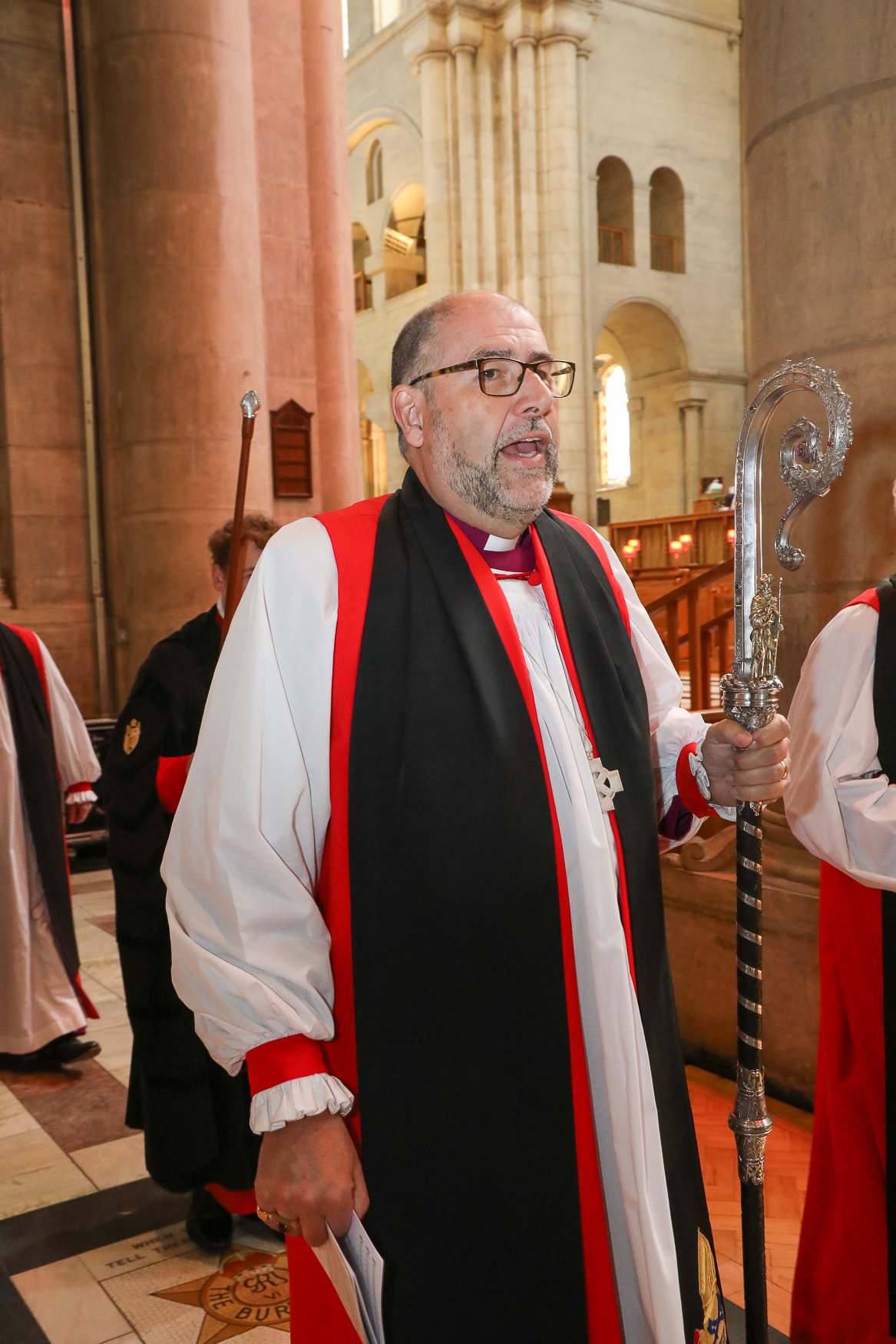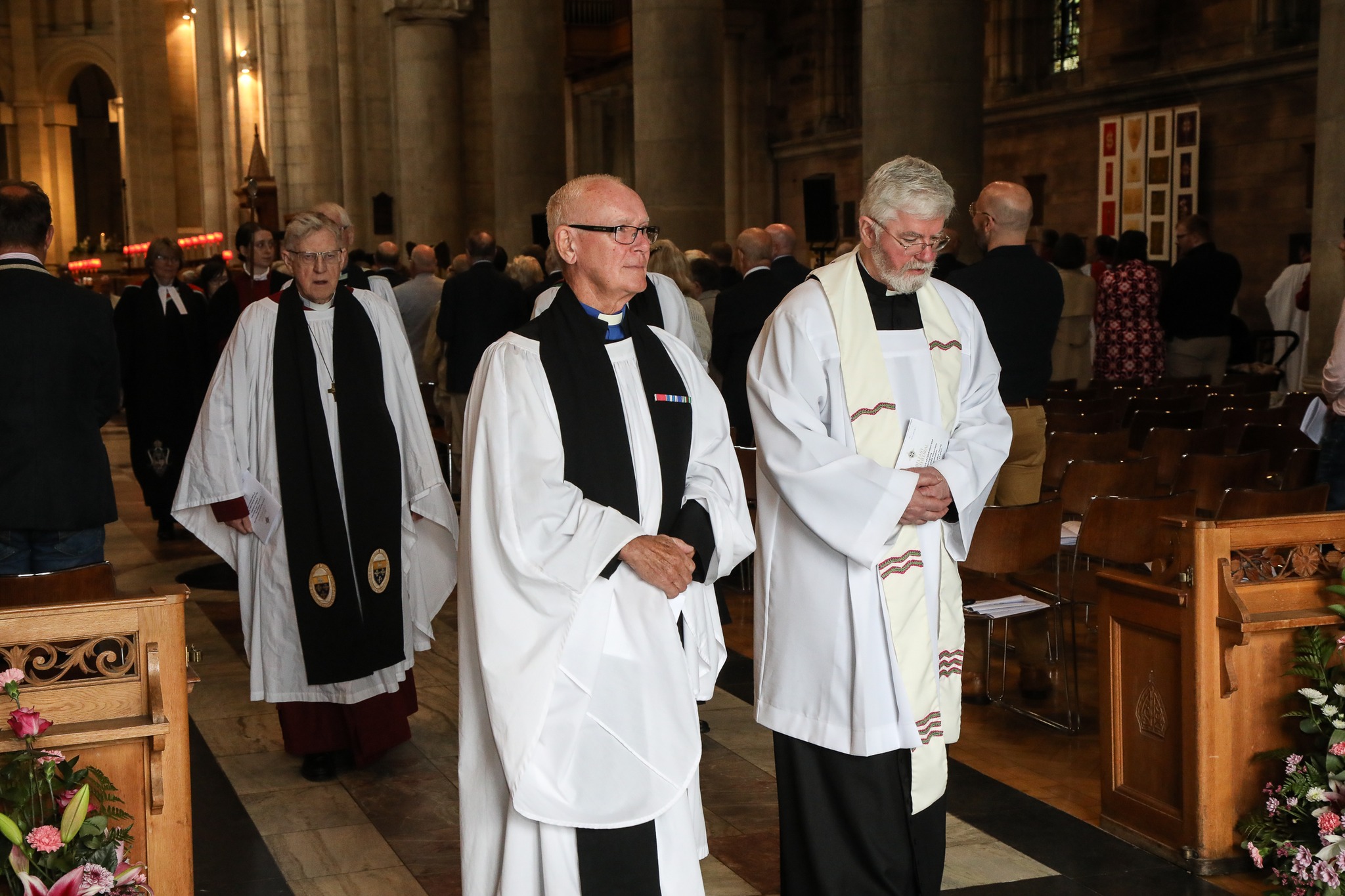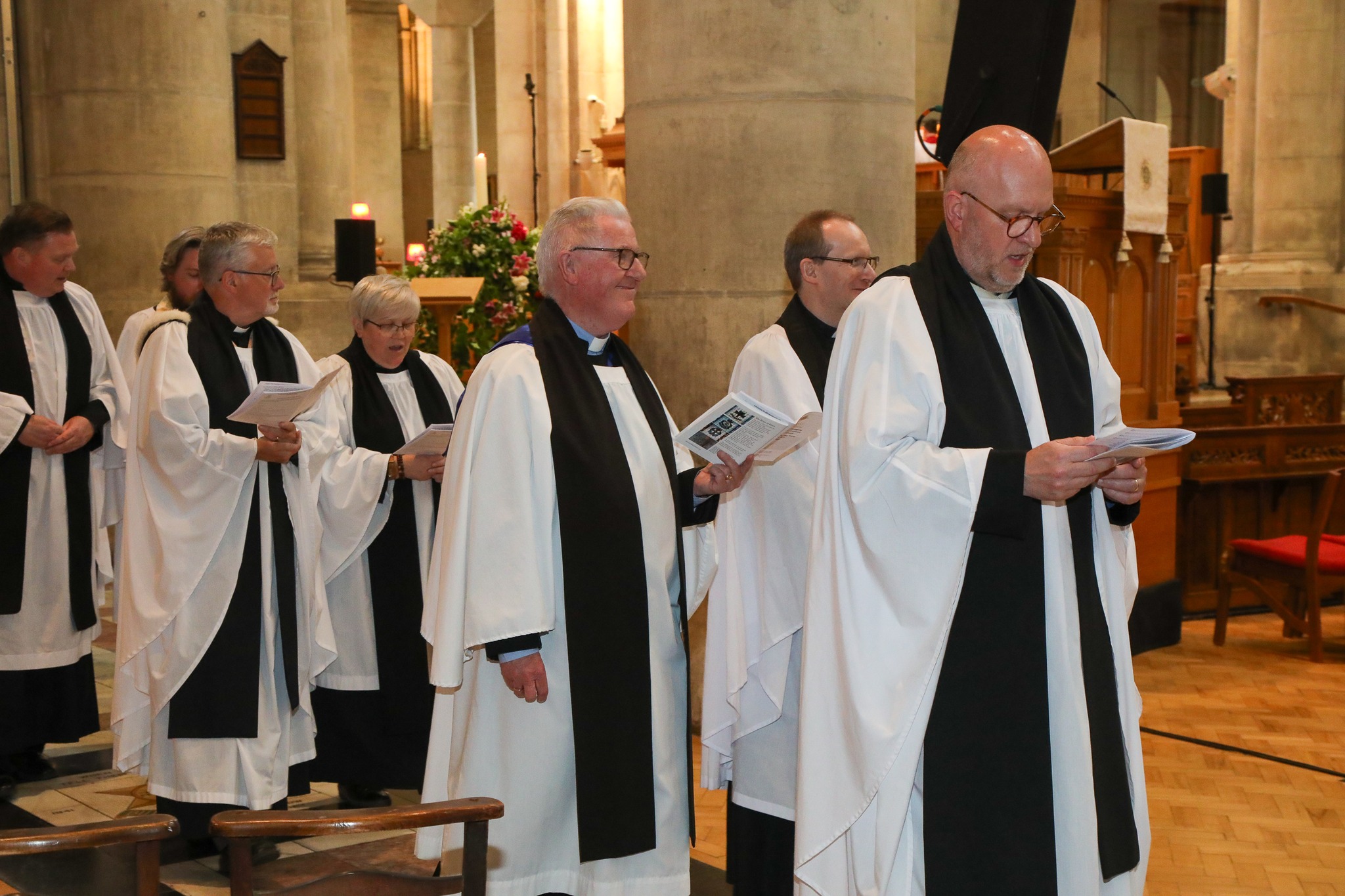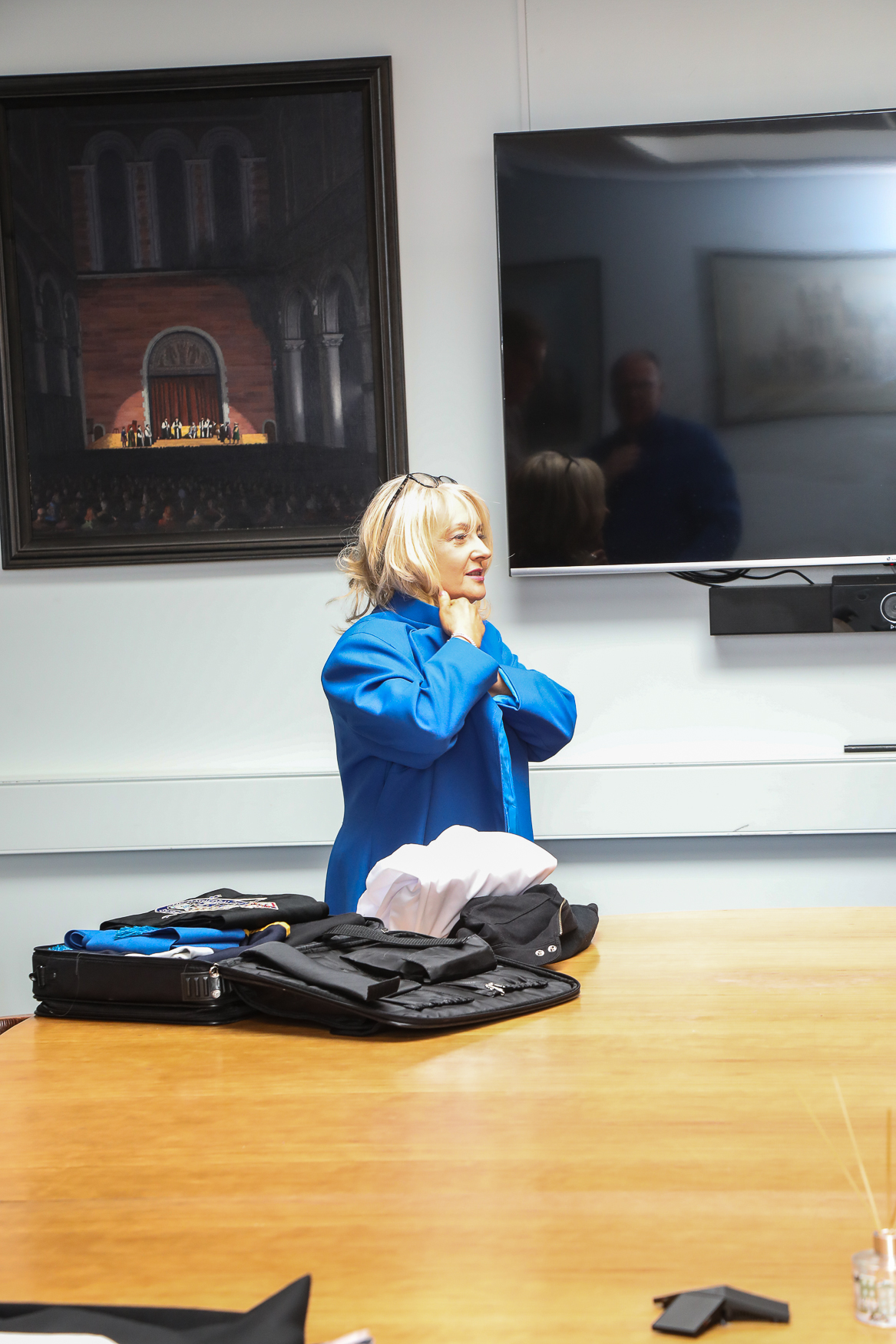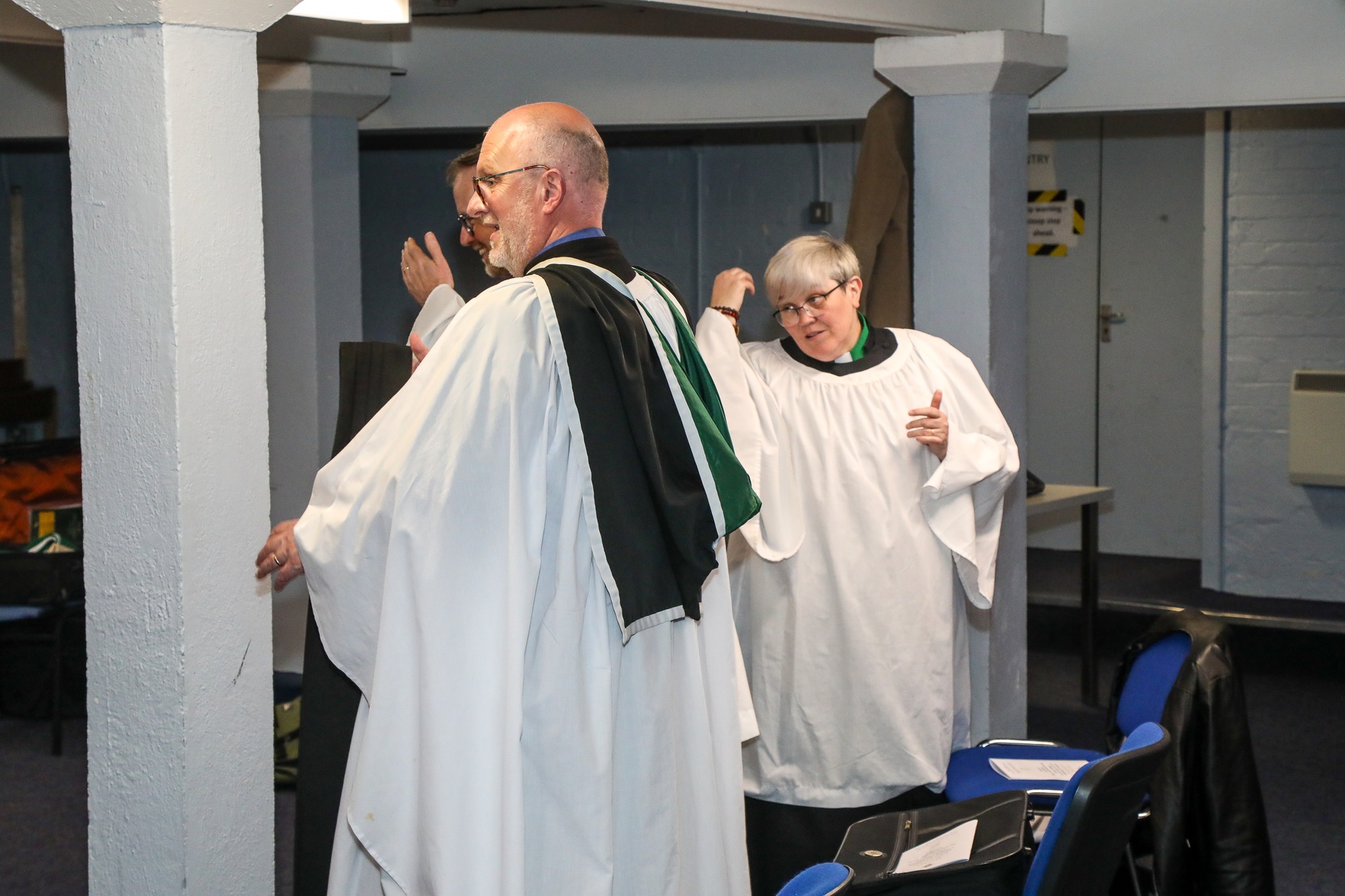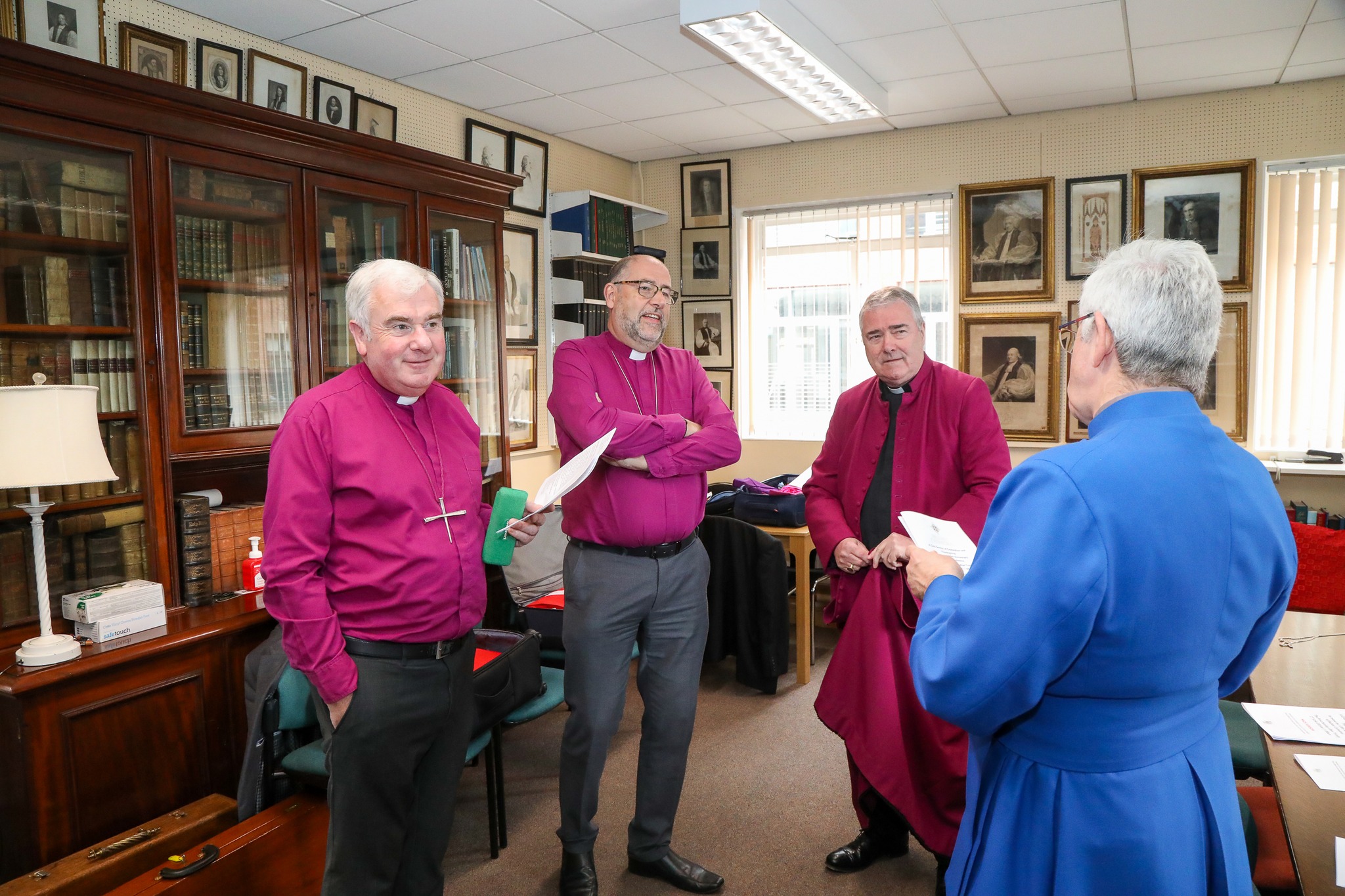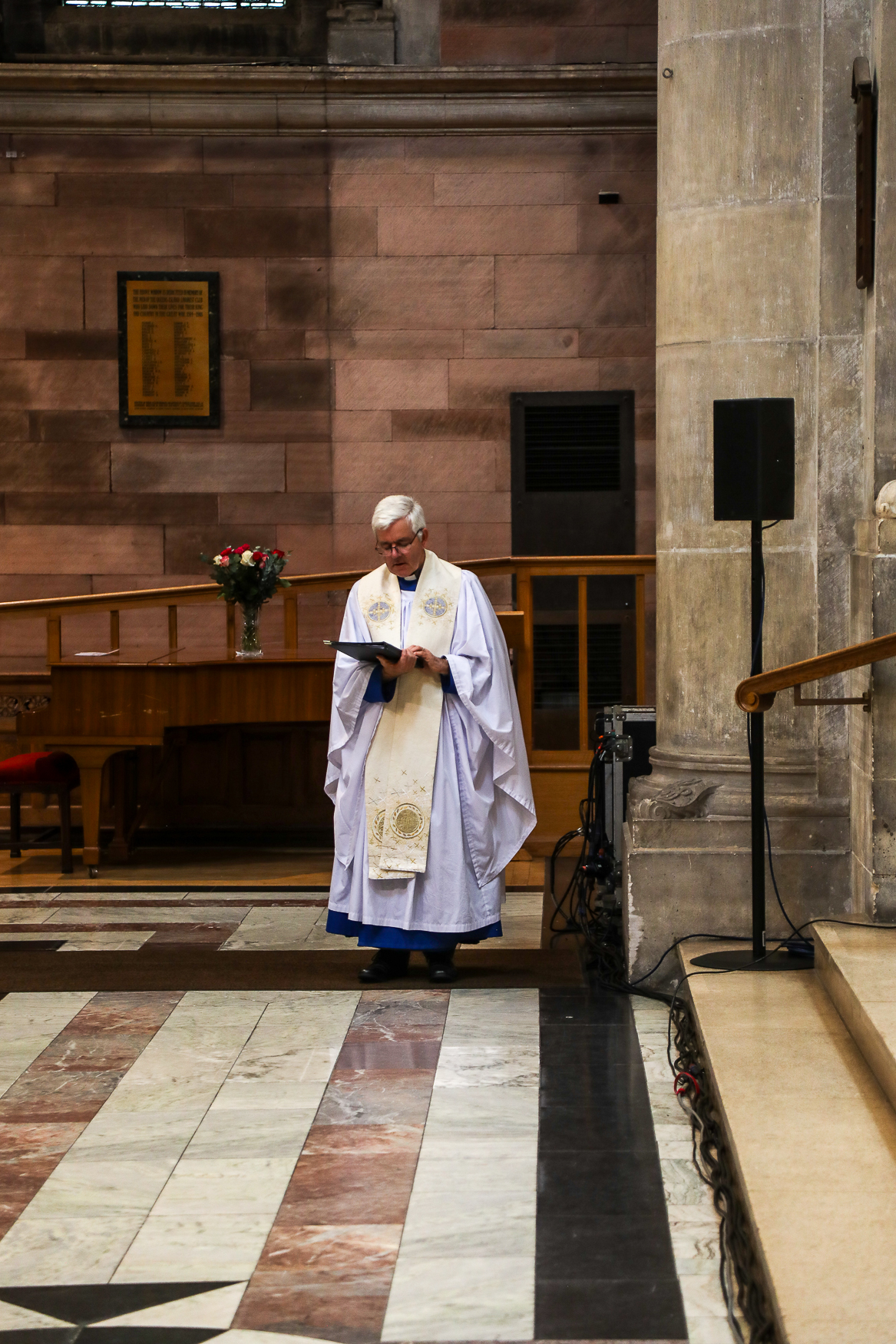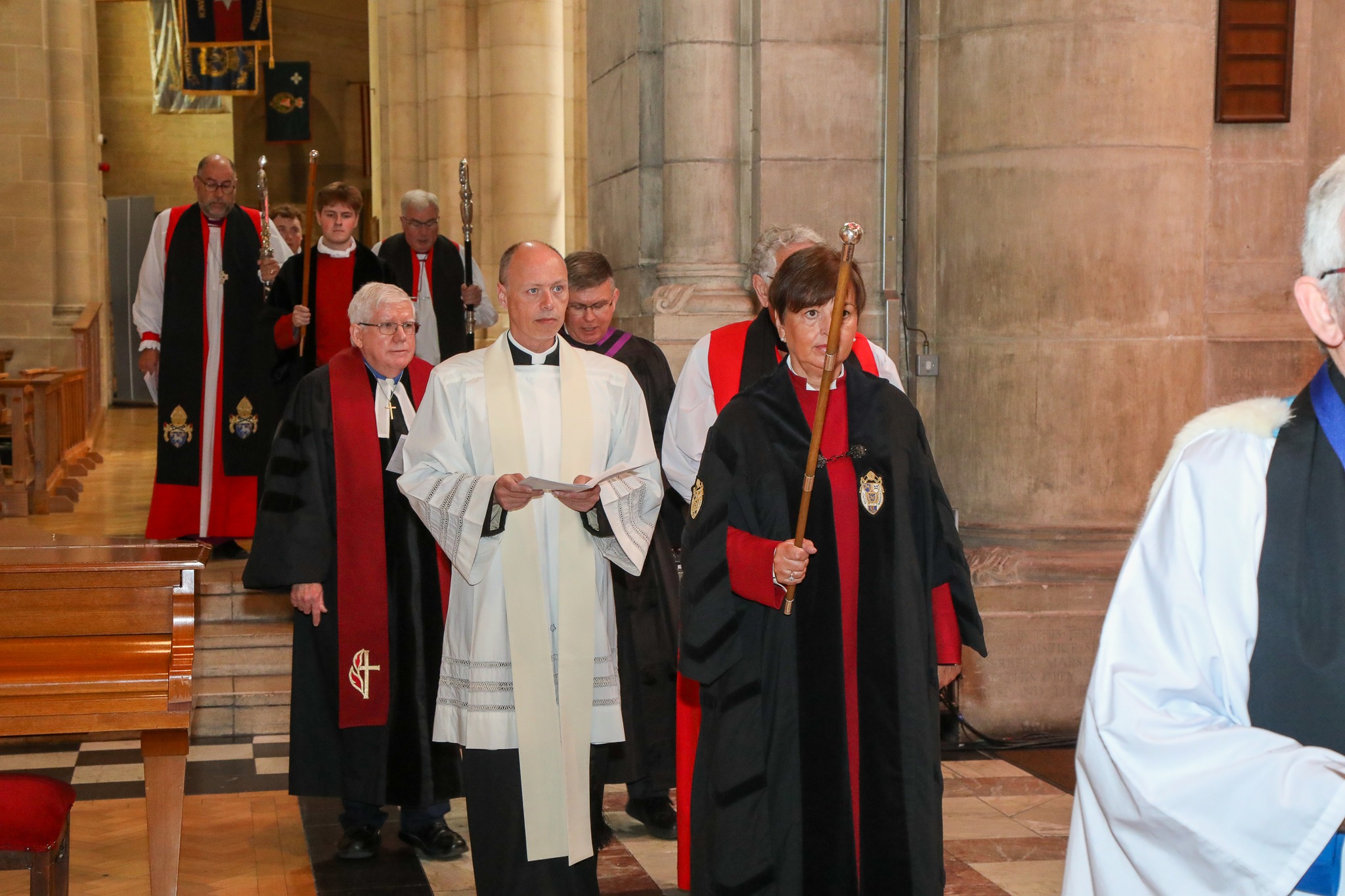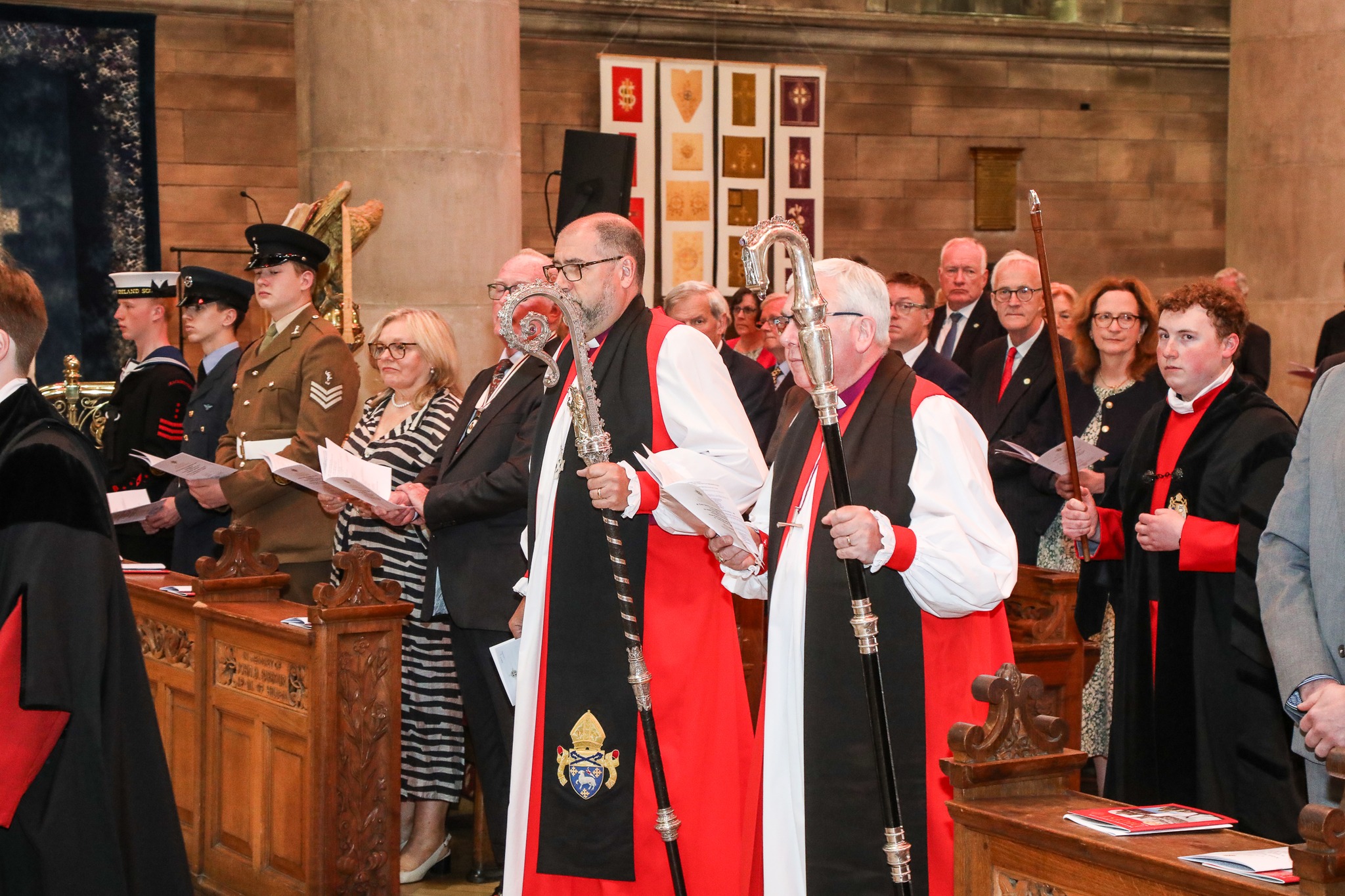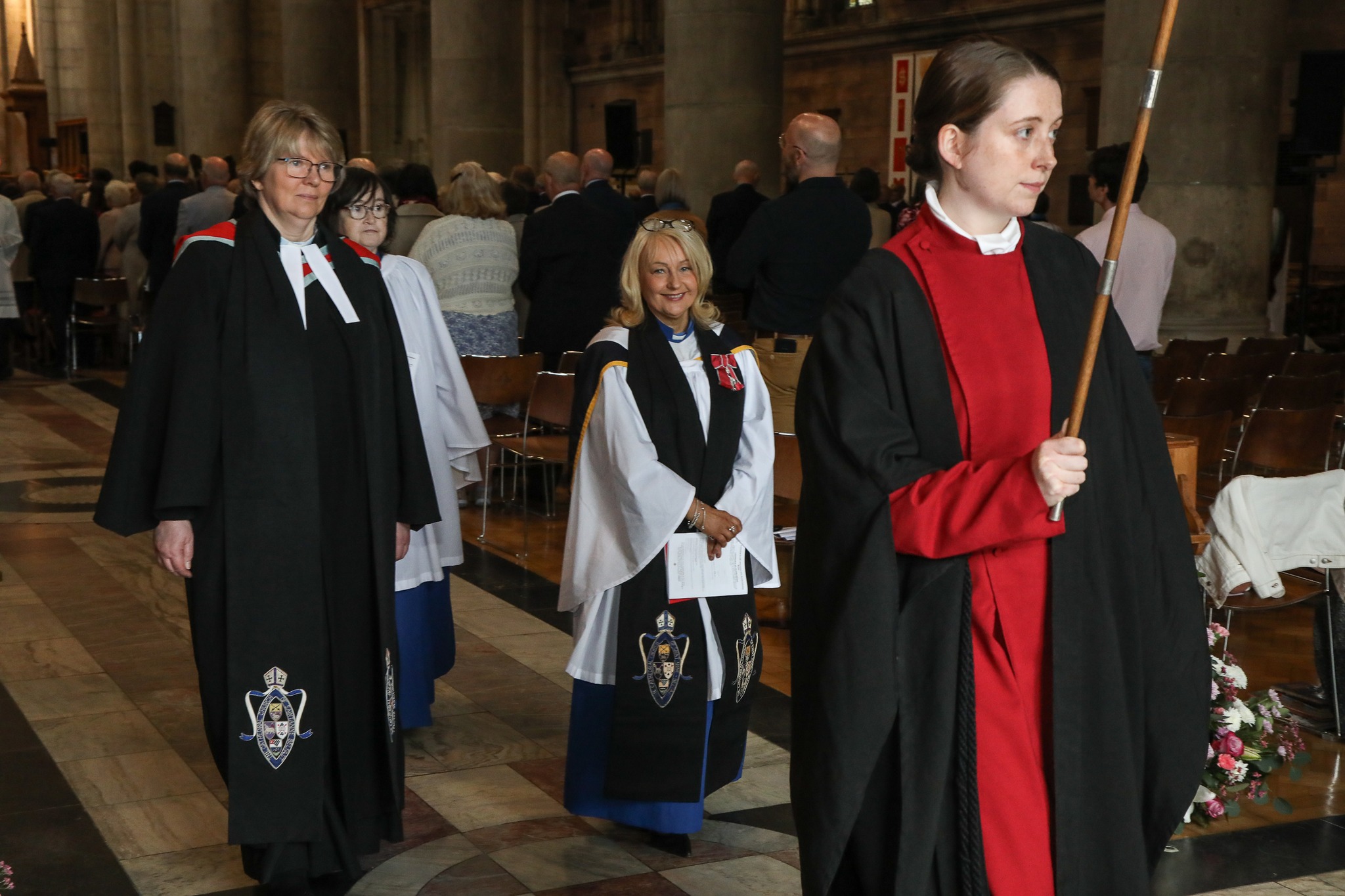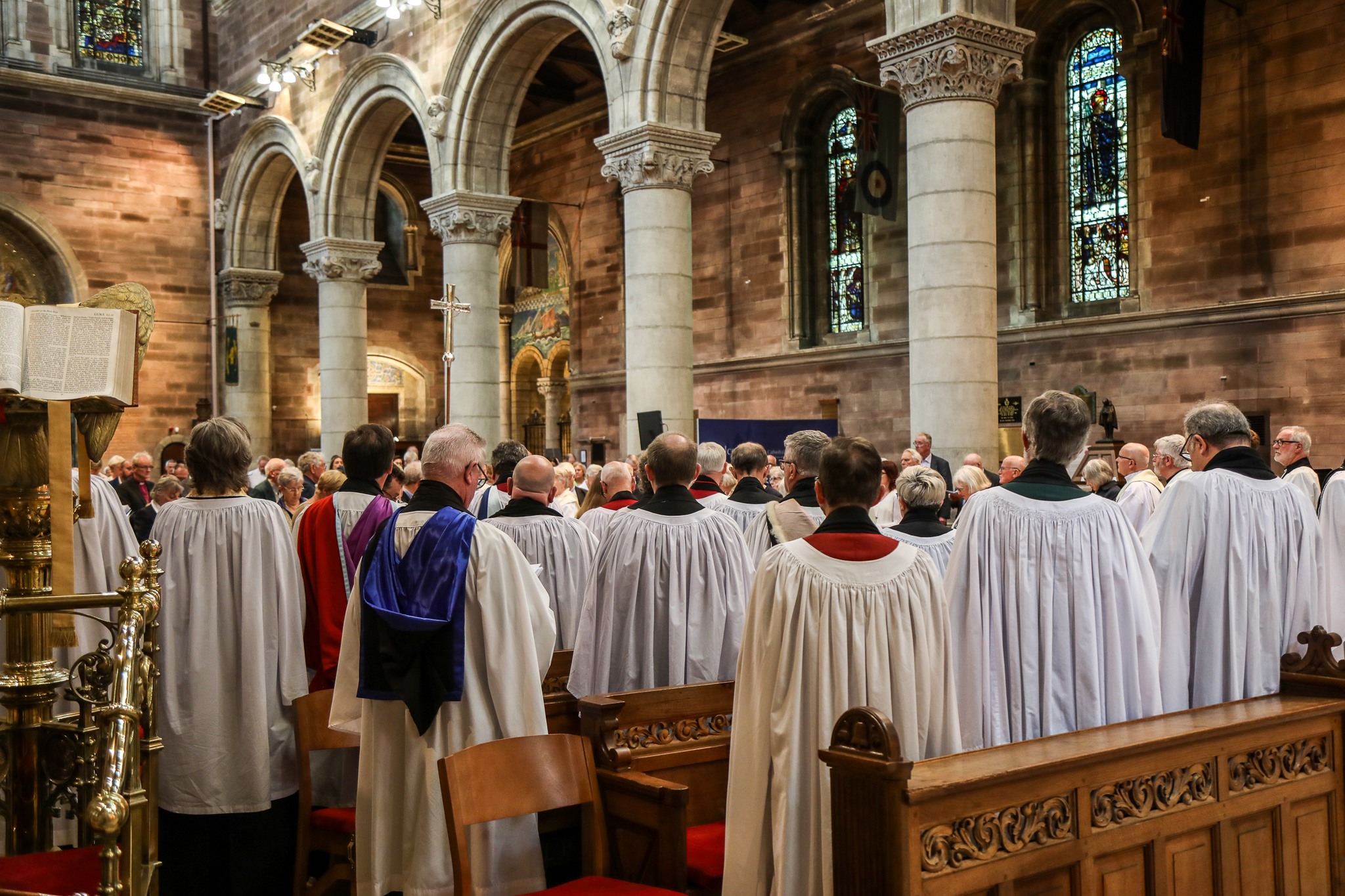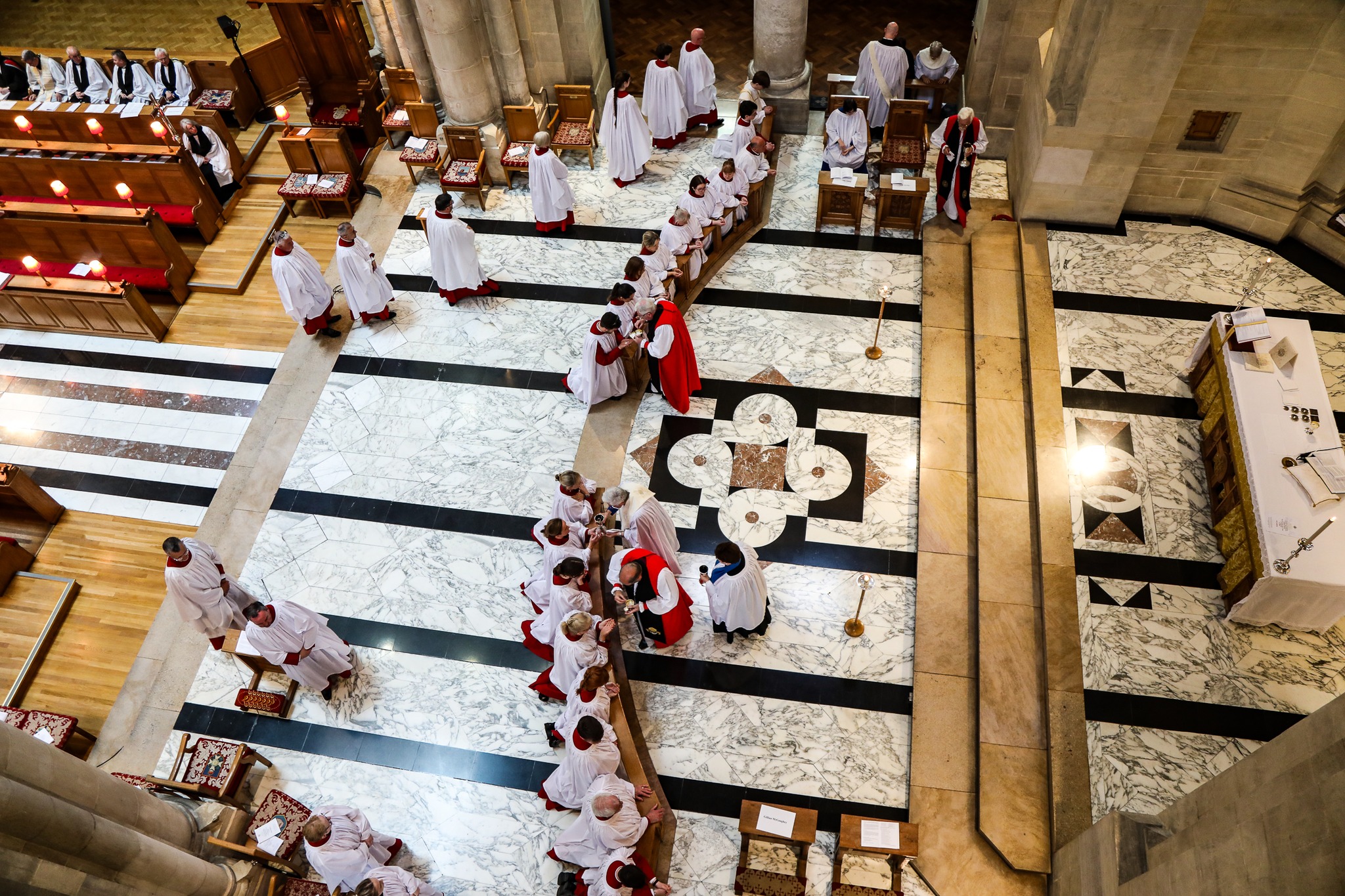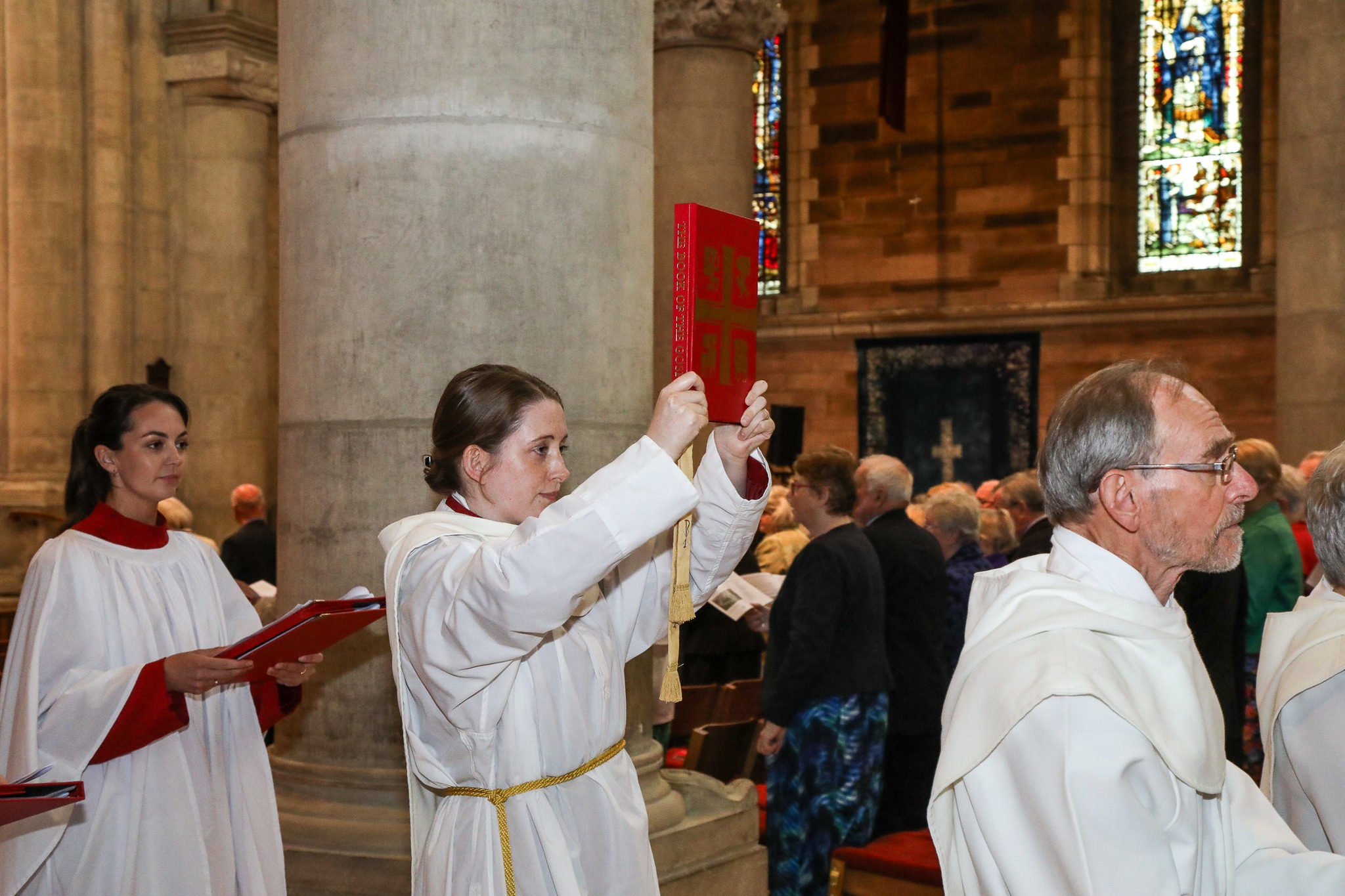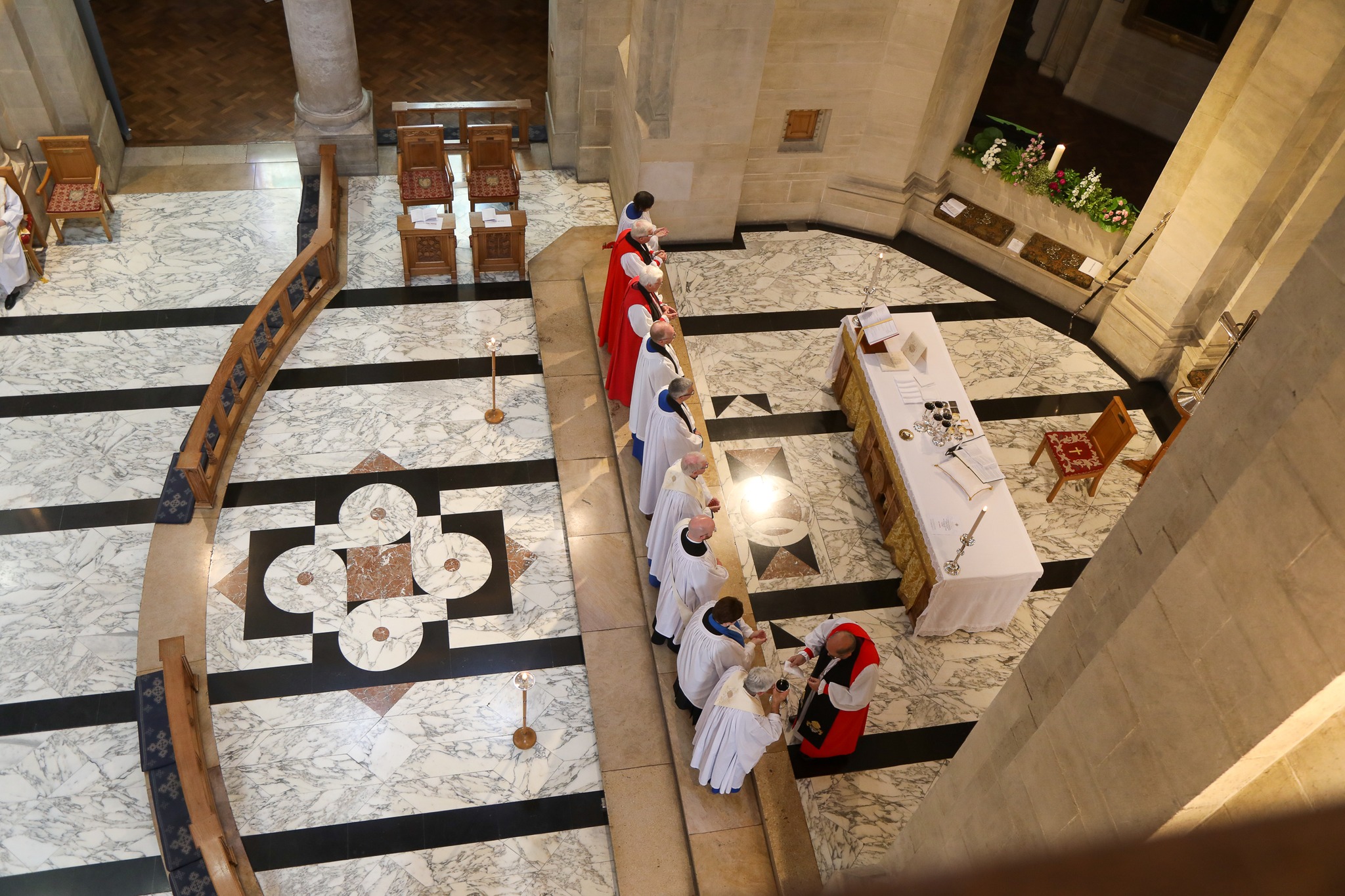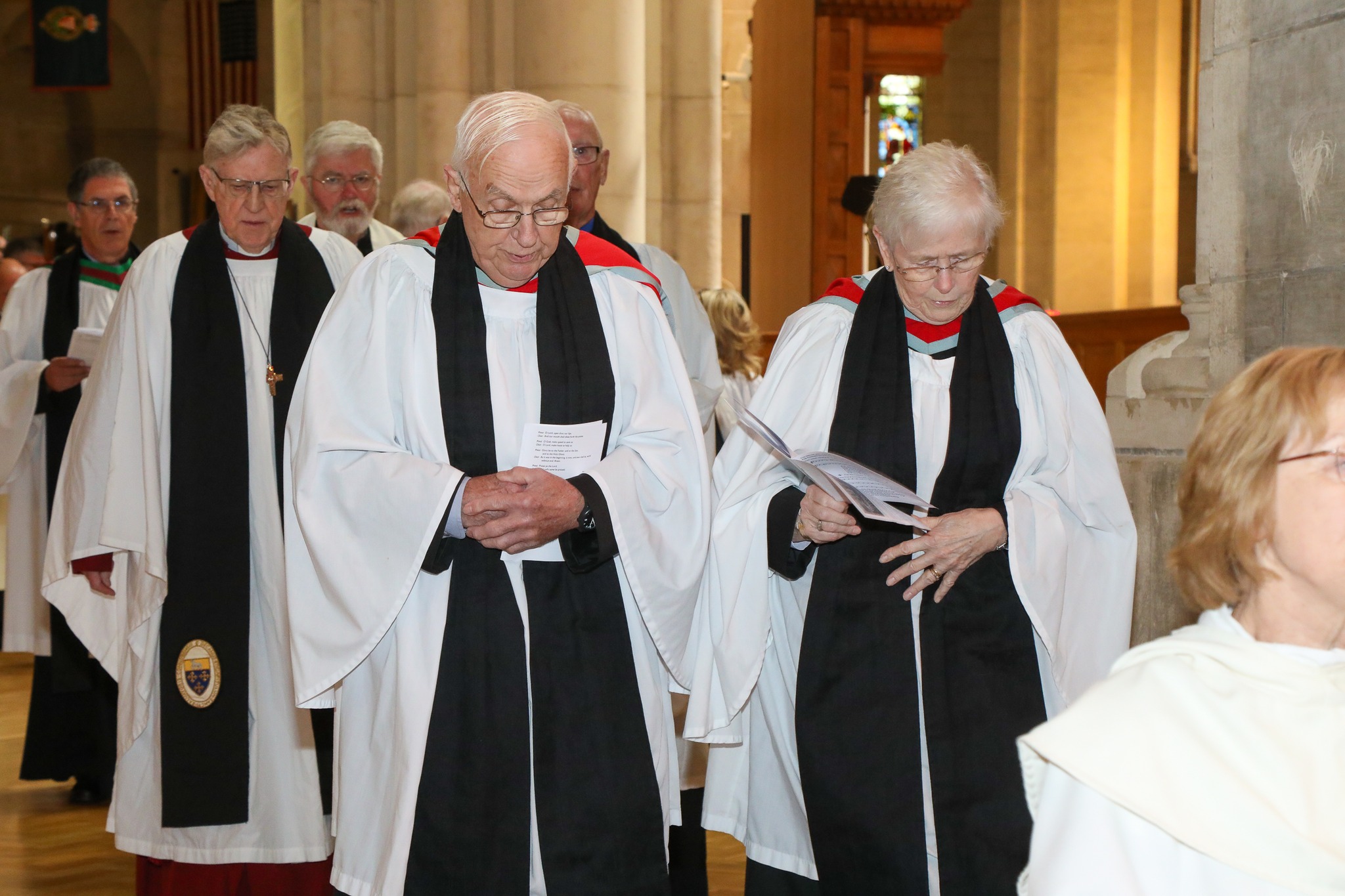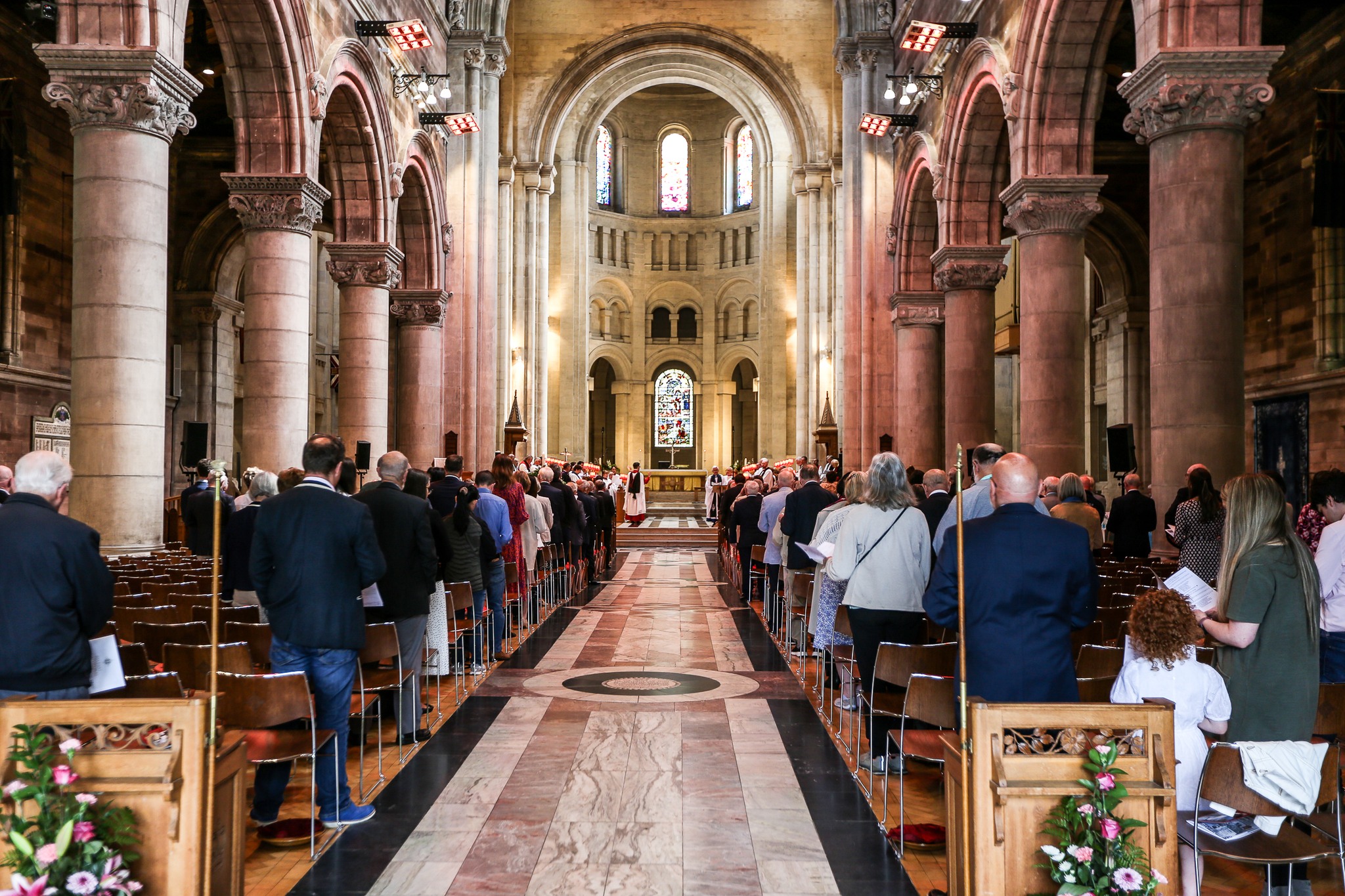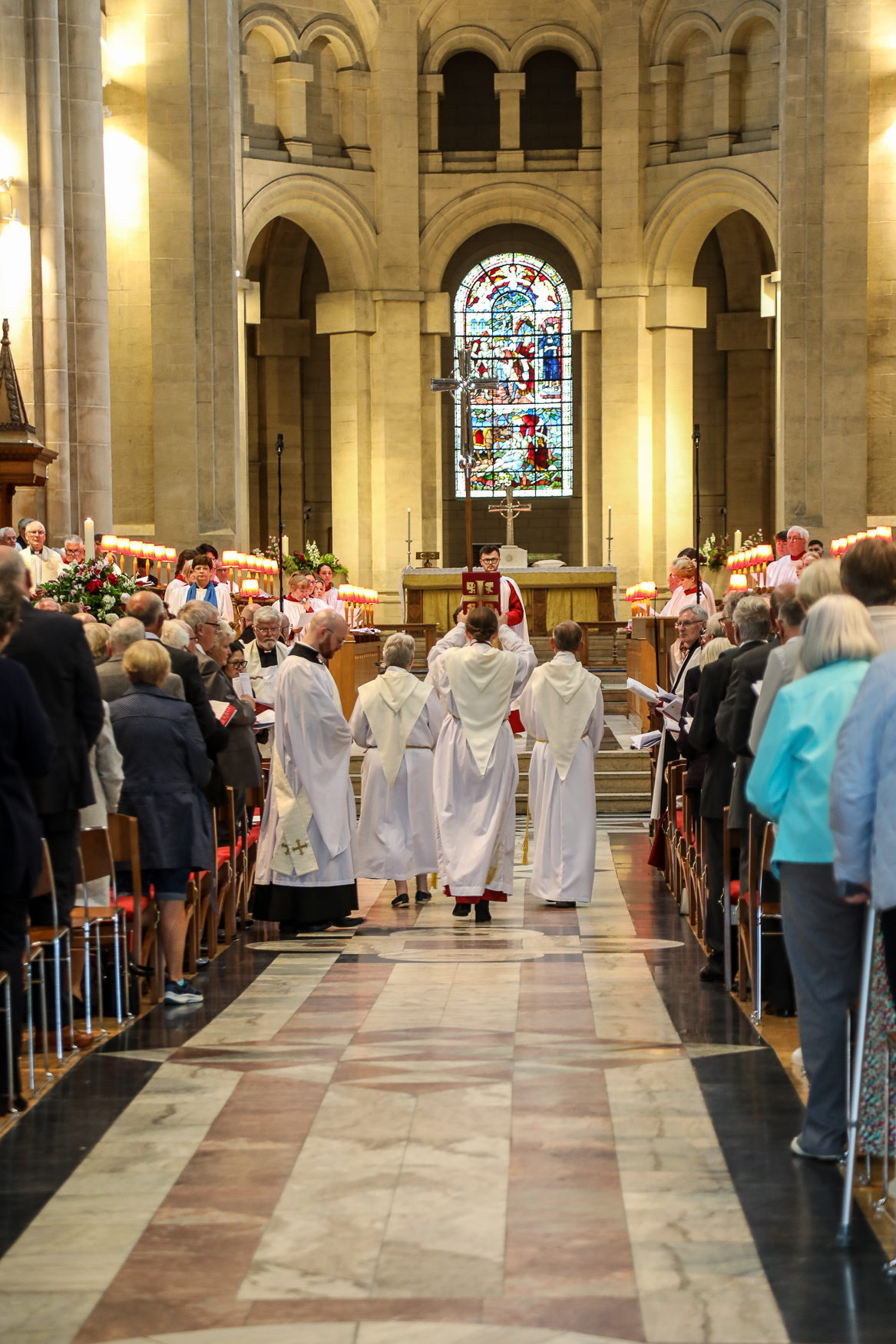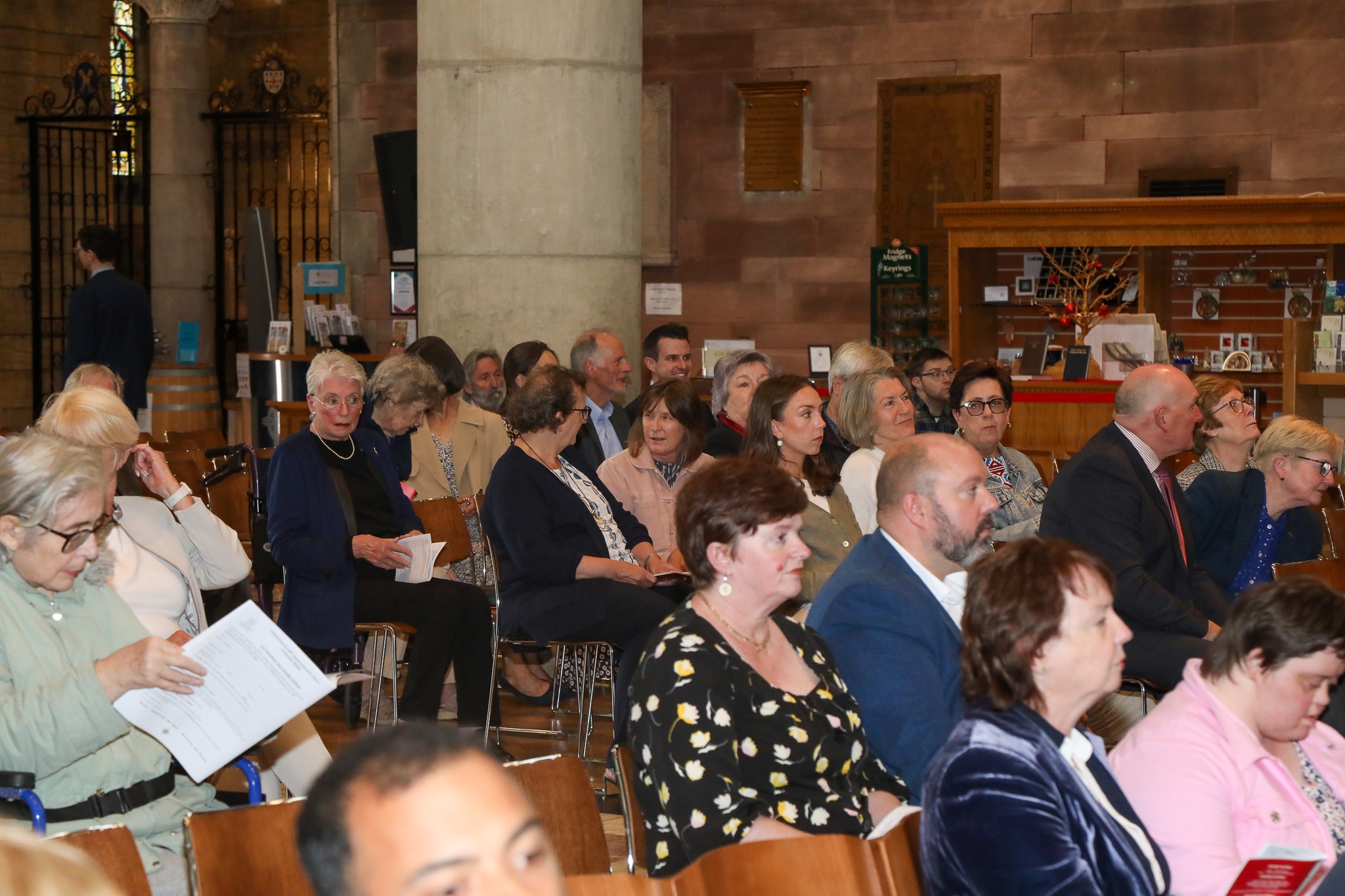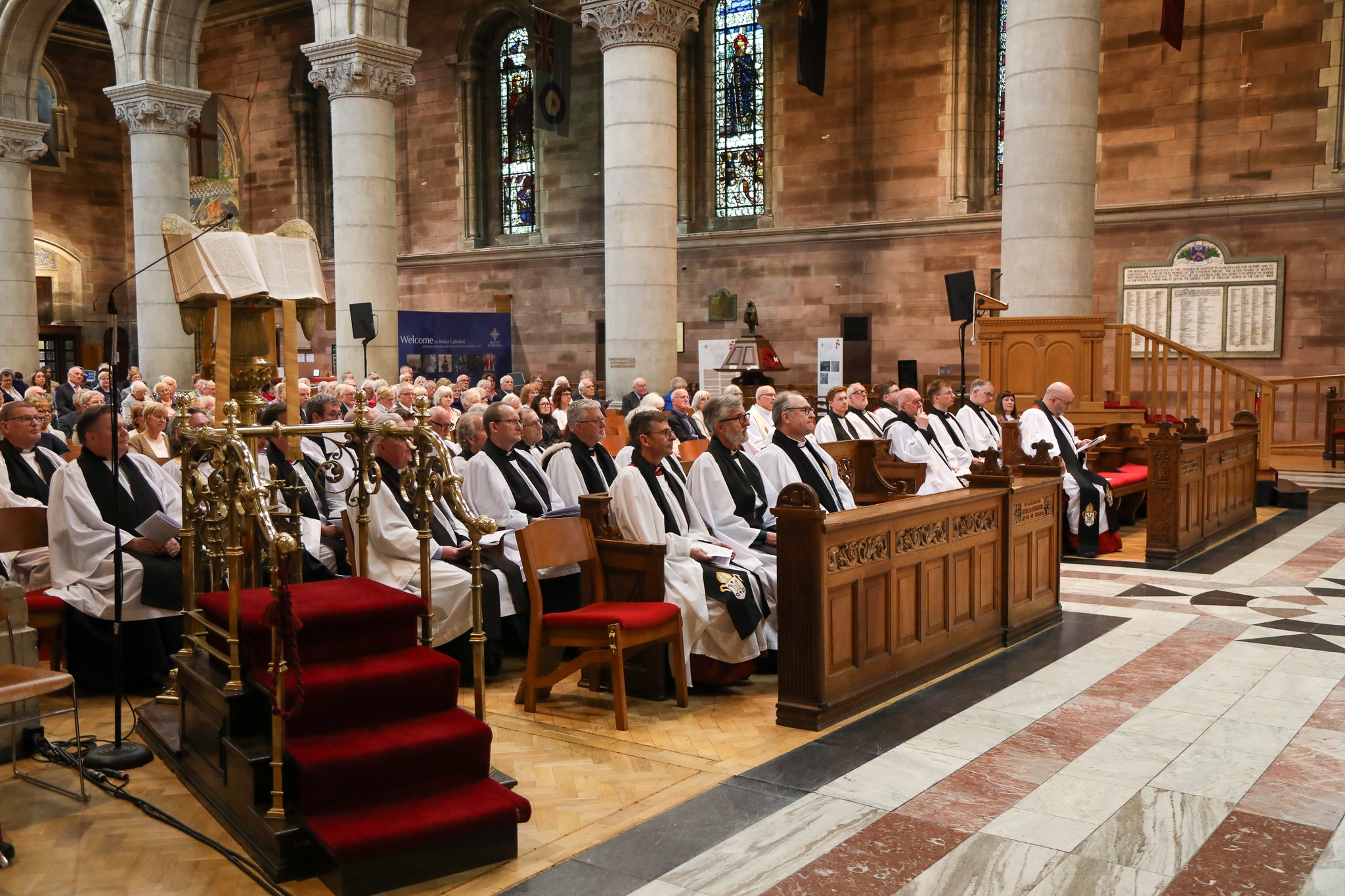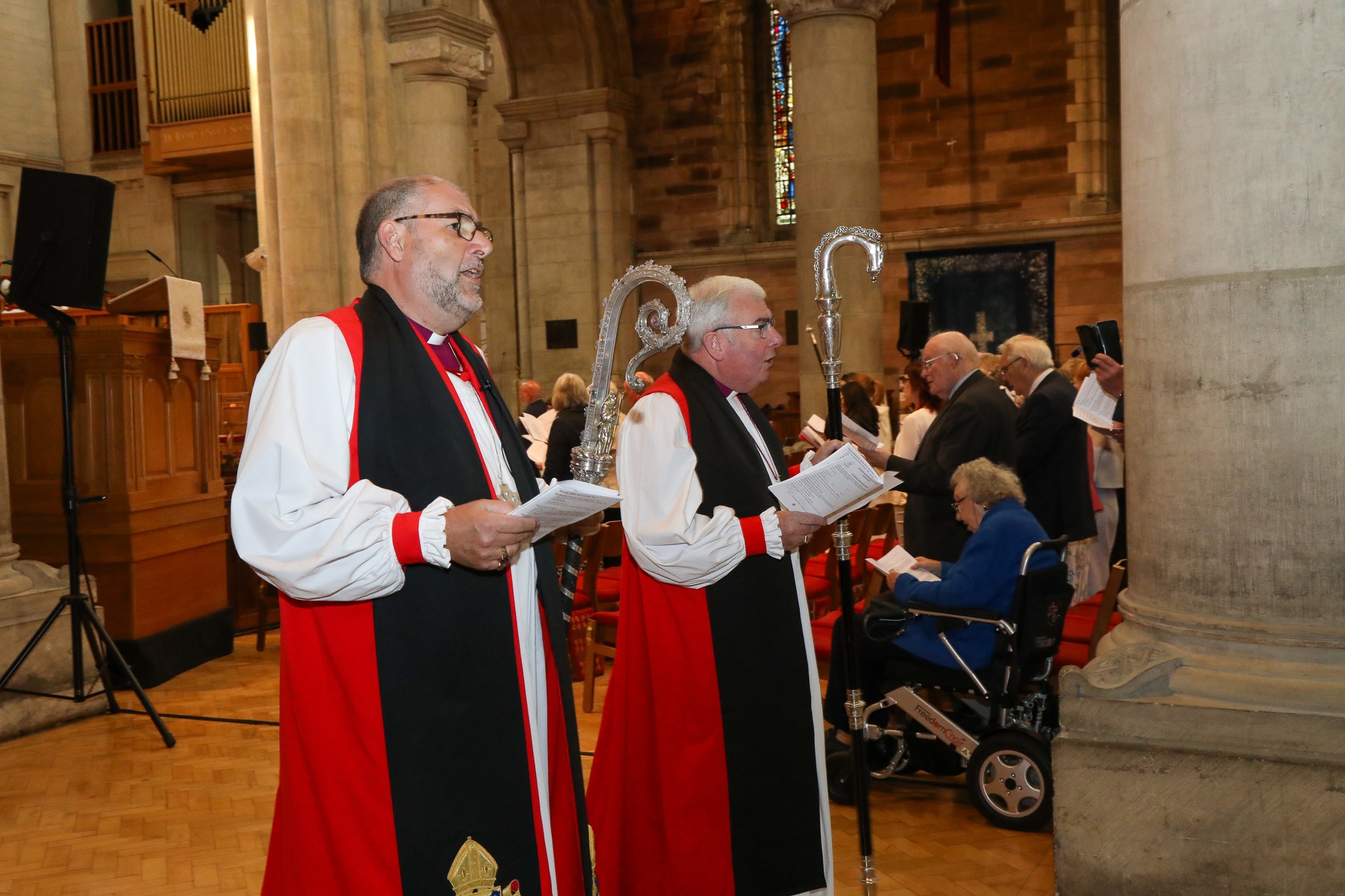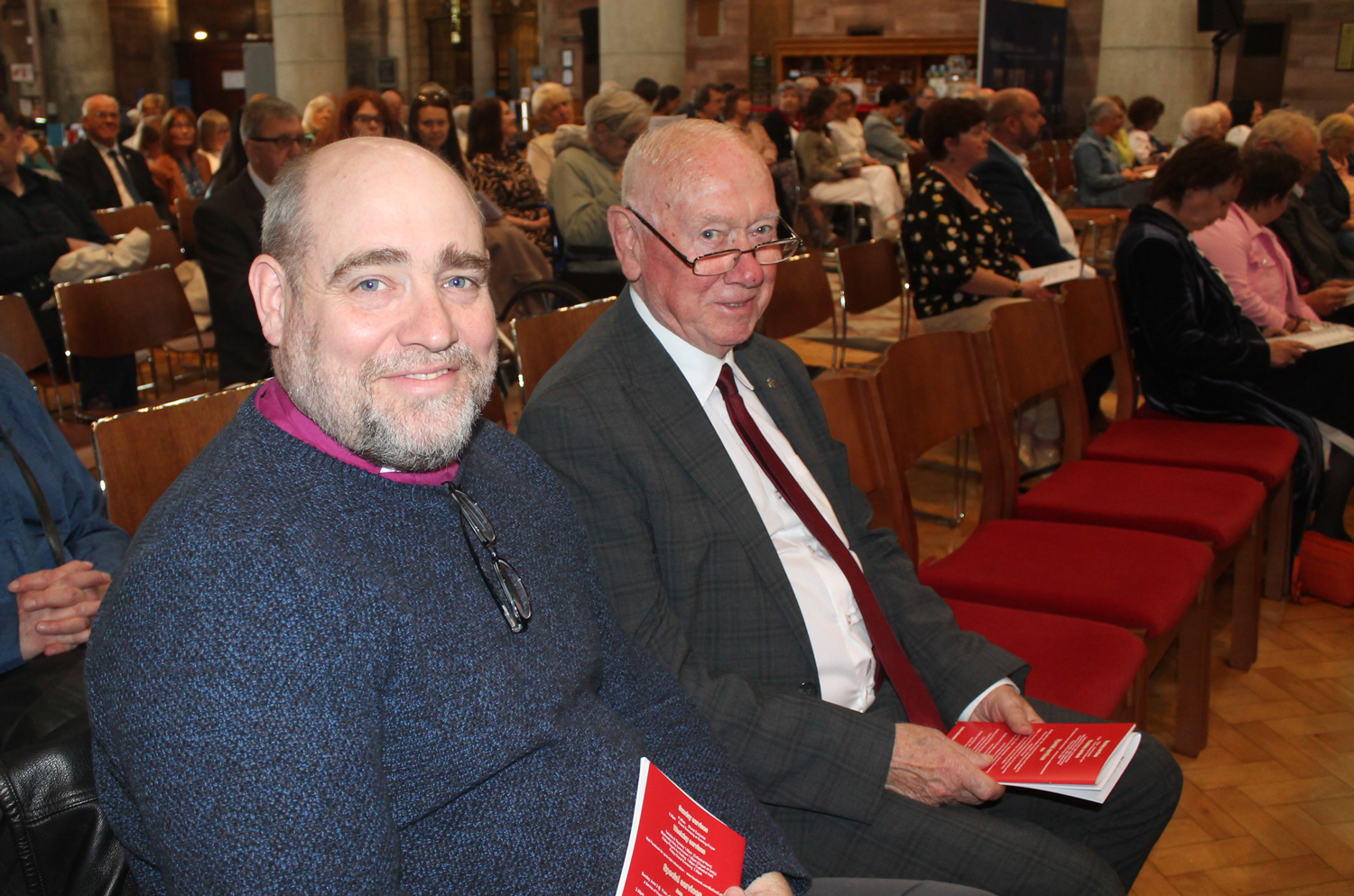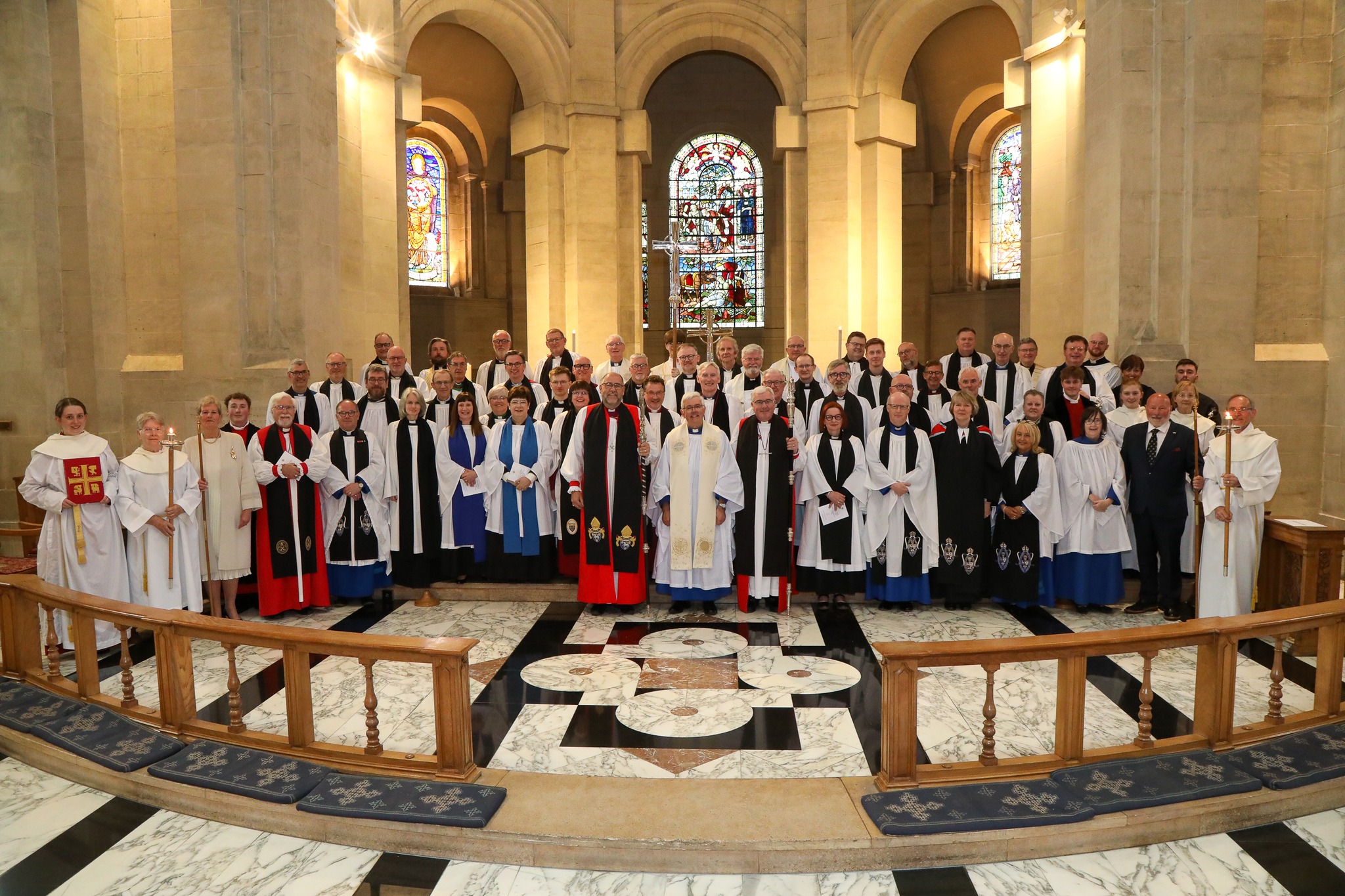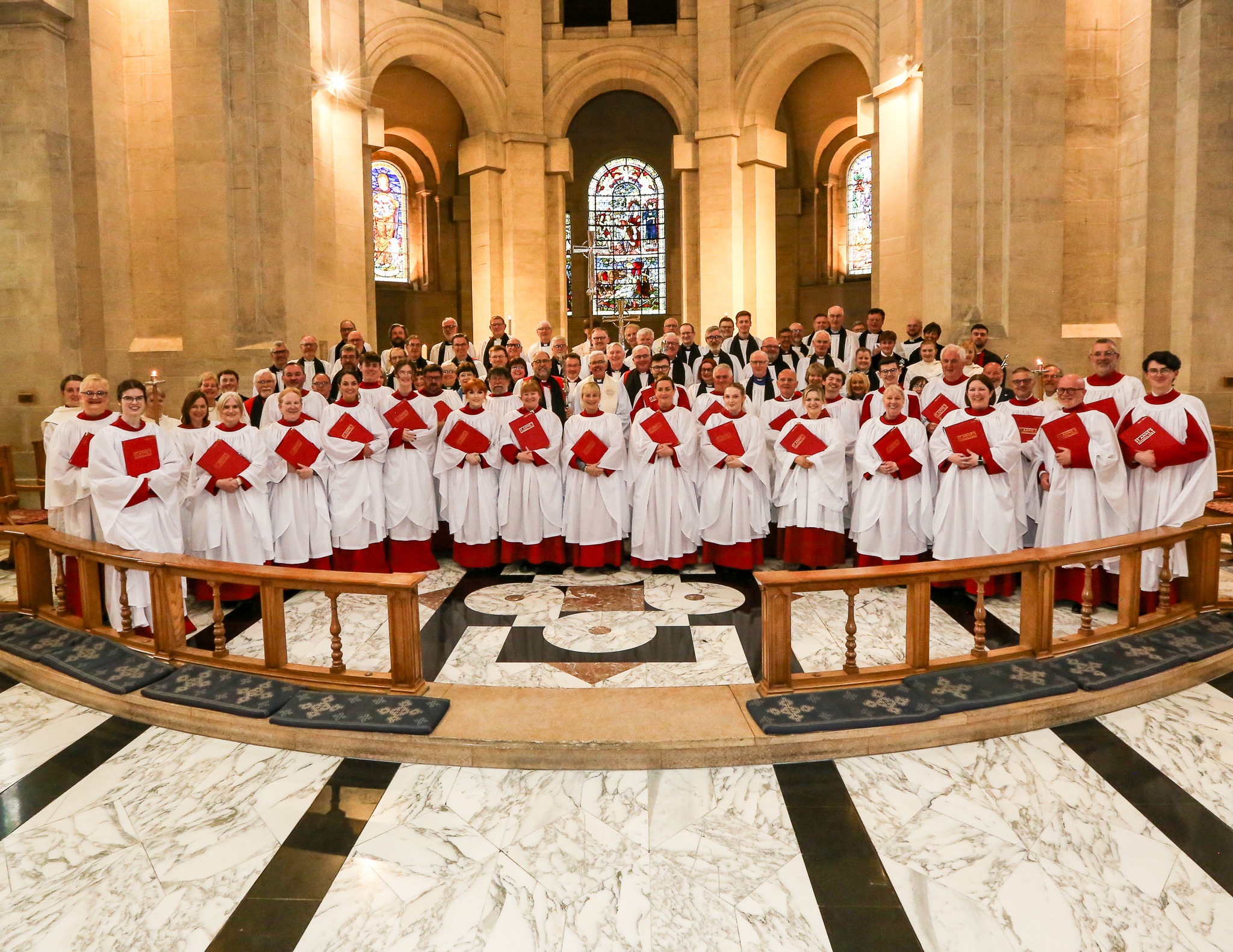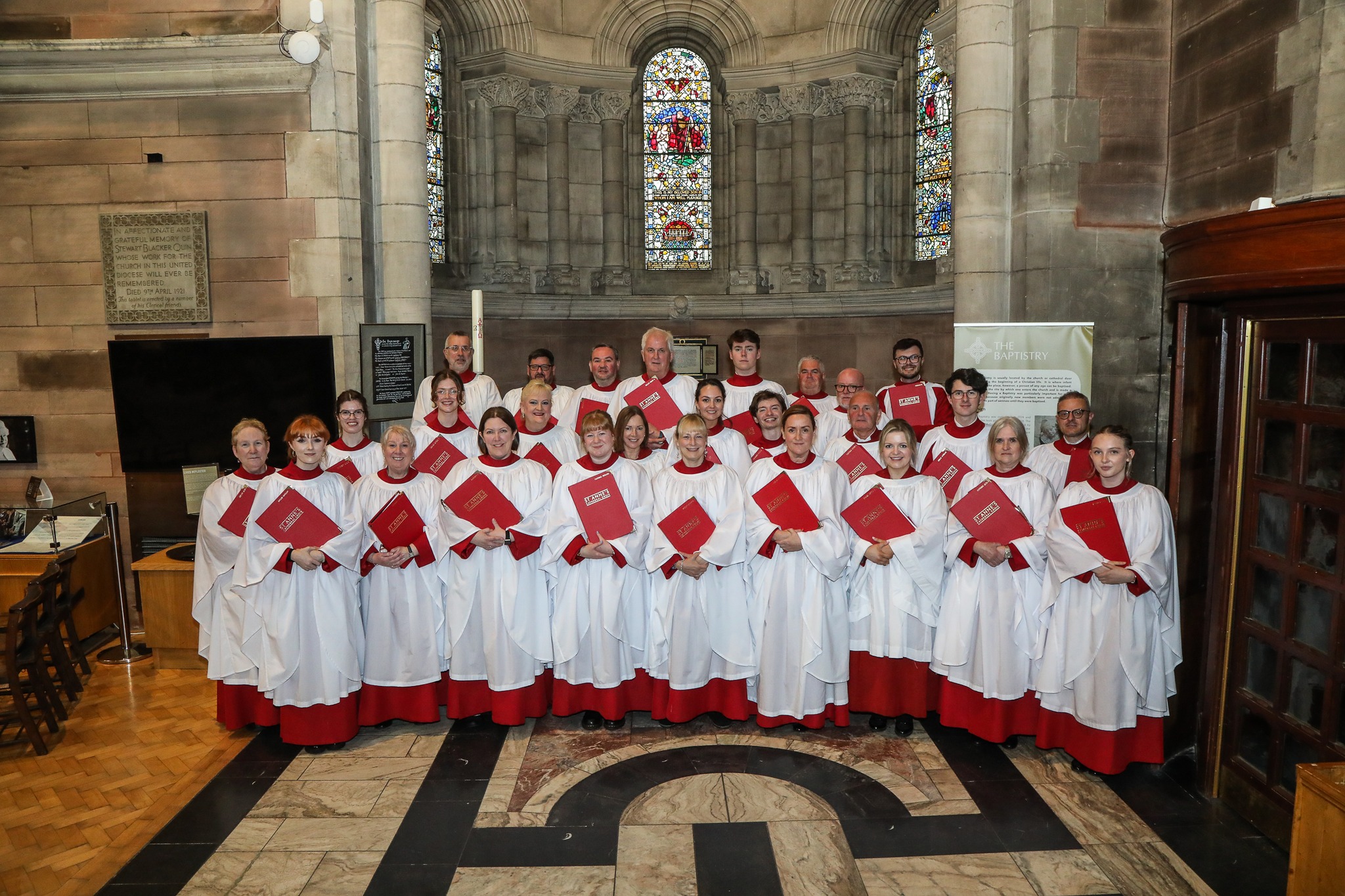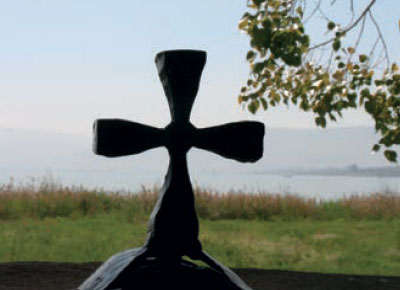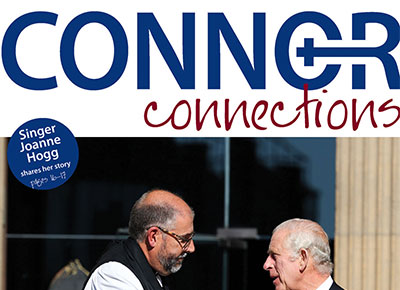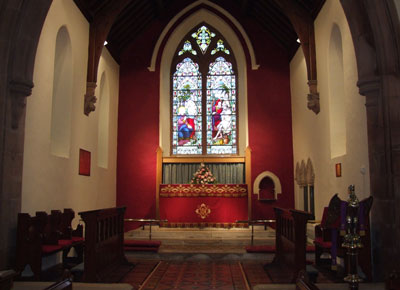A day of celebration at Belfast Cathedral
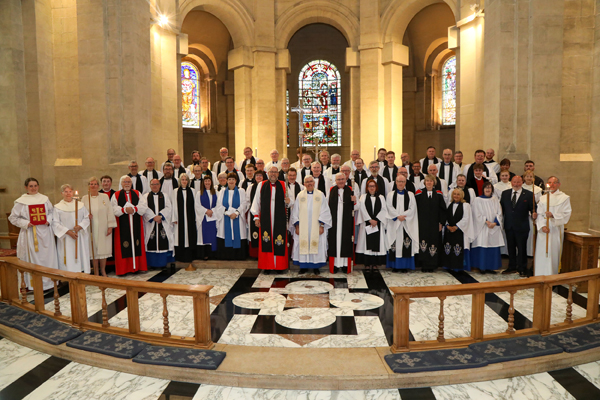
The Dean of Belfast, the Very Rev Stephen Forde; the Bishop of Connor, the Rt Rev George Davison; and the Bishop of Down and Dromore, the Rt Rev David McClay, with clergy from the dioceses of Down, Dromore and Connor and Cathedral vergers at a service on the afternoon of Sunday June 2 which celebrated the 120th anniversary of the Consecration of Belfast Cathedral. Photo: Norman Briggs.
What a day of joy and celebration! Belfast Cathedral welcomed civic, church, political and community leaders as well as clergy and representatives of parishes across Connor and Down and Dromore on Sunday June 2 as it marked 120 years since the Consecration of St Anne’s. [PHOTO GALLERY BELOW]
Those present for the Service of Choral Matins which began at 11am included local MP John Finucane, in place of the First Minister; Deputy First Minister Emma Little-Pengelly; Deputy Mayor of Belfast, Councillor Áine Groogan, and councillors of Belfast City Council: politicians Naomi Long, Gavin Robinson and Matthew O’Toole. Vice Lieutenant for the City Borough of Belfast, Dr Alan Logan, along with Deputy Lieutenants for Belfast; the Lord Lieutenants for the Counties of Antrim and Tyrone; PSNI Deputy Chief Constable Chris Todd and Superintendent Alistair Hagan; Dame Mary Peters; and Professor Paul Seawright, Deputy Vice Chancellor Ulster University.
Representatives of charities who have been supported by the Cathedral’s annual Black Santa Appeal, were also present, along with the Bishops of Connor and Down and Dromore and other Church leaders.
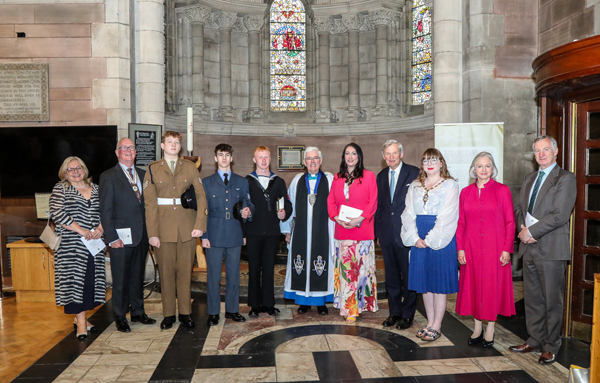
The Very Rev Stephen Forde, Dean of Belfast, with some of the invited guests at the 11am Service of Choral Matins to celebrate the 120th anniversary of the Consecration of Belfast Cathedral on June 2. Photo: Norman Briggs.
The preacher at the service was the Most Rev John McDowell, Church of Ireland Primate and Archbishop of Armagh.
In his sermon, the Archbishop stated that ‘every democracy will only be as good as the civic forces that sustain it.’ He spoke on the parable of the rich fool recorded in Luke’s gospel. Noting the maritime origins of the word ‘nave,’ he said that the people of Belfast, Northern Ireland and the whole island are ‘in the same boat’ – facing a common reality with ‘so many challenges and threats that it is impossible for any one person or one tradition to carry it alone.’
 A cathedral, he continued, is first and foremost ‘a place for those who love Jesus and who have felt the beauty of his eternal love for them, to come together to worship him and to witness to his love.’ He said it is also a space for civic society – the leadership in society beyond elected representatives which ‘makes the peace’ after the ending of wars. These friendships, the Archbishop said, create ‘a body of travelling companions who have grown to trust one another despite their deep differences, as they contemplate the next steps in the journey.’
A cathedral, he continued, is first and foremost ‘a place for those who love Jesus and who have felt the beauty of his eternal love for them, to come together to worship him and to witness to his love.’ He said it is also a space for civic society – the leadership in society beyond elected representatives which ‘makes the peace’ after the ending of wars. These friendships, the Archbishop said, create ‘a body of travelling companions who have grown to trust one another despite their deep differences, as they contemplate the next steps in the journey.’
In particular, he mentioned the 2008 financial crisis and the climate crisis as examples of how the past can catch up with us. “It was only in our grandparents’ time that someone was valued for what they produced. In a fatal turn we took during the 1980s, we are now valued by what we consume. We have bigger barns and smaller consciences,” Archbishop McDowell stated.
In closing, he asked the congregation to consider how they will be remembered by future generations, in the hope that they will say. “There were prophets present that day in Belfast Cathedral, and we thank God for them, and for the inheritance which they have left to us: The inheritance which God loves most highly – the gift of peace from the hand of his Son, the Prince of Peace.”
Archbishop’s sermon in FULL.
During the service, Archbishop McDowell also dedicated 500 new chairs, and many of those who had sponsored chairs in memory of a loved one or in thanksgiving were present.
Later that afternoon, representatives of parishes from the dioceses of Down, Dromore and Connor came to the Cathedral for an anniversary Holy Communion – as they did on the day the Cathedral opened 120 years ago. The preacher was the Dean of Belfast, the Very Rev Stephen Forde.

Master of Music Jack Wilson with Lucy Walker, who composed the new communion setting ‘Missa Sanctae Annae,’ for the Sunday afternoon service.
The service featured the world premiere of a new communion setting written for this 120th Anniversary Service by Lucy Walker which she has dedicated to St Anne’s Cathedral as the ‘Missa Sanctae Annae.’ Ms Walker was welcomed by the Dean, who also welcomed Church of Ireland Bishops George Davison, David McClay and Harold Miller, the canons, clergy and parishioners of the cathedrals and parishes of the dioceses of Down, Dromore and Connor, for whom, Dean Forde said, this Cathedral was built.
In his sermon, Dean Forde spoke of the differences between the world of 1904 and the world of 2024.
“A cathedral that was built by the great industrialists must now be a cathedral for the people of Belfast, and beyond, in all their variety and diversity and richness of origins,” the Dean said. “Because in today’s world our voice must compete with many other religious voices, and also with those who stridently speak out for NO religion.”
He looked at the role of the Cathedral in the decades that lie ahead. “Those who celebrated the Consecration of this Cathedral 120 years ago today assumed Christianity to be the constant of civilisation. Today in 2024 we have no such self-assured certainty. Our Christian future is not a given! Instead, it has to be won, it has to be earned, it has to be prayed for, and it has to be lived to the full.
“A cathedral for the 21st century is to be a place of Awe, Enquiry, Discovery and Christ Centred Service, sending us all out into the world of today. So then, whether as cathedrals or as parish churches, in our communities of faith, let us ‘Like Living Stones be built into a spiritual house, and a holy priesthood, in order that we may proclaim the mighty acts of him who has called us out of darkness and into his awesome light.’ For this will be the foundational cornerstone on which the church of the twenty-first century can be built for Christ’s sake.”
The Dean’s sermon can be read in full HERE.
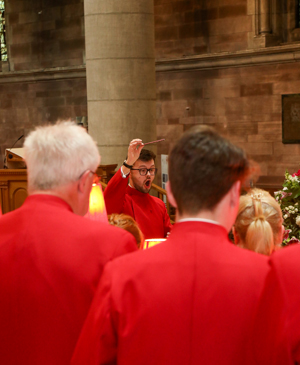
Master of Music Jack Wilson conducts the Choir. Photo: Norman Briggs
The wonderful music at both services was provided by the Cathedral Choir, conducted by Master of Music Jack Wilson, with Stephen Hamill on the organ. Refreshments in the Nave followed the morning service.
Guests at both services were presented with a commemorative issue of the Belfast Cathedral magazine, the Digest, which explored some of the history of this iconic building and the key features within its walls.
The foundation stone of Belfast Cathedral was laid in 1899. The site in Donegall Street was a gift to the town of Belfast by its landlord, Lord Donegall.
Over a four-year period, the Nave was built around the old parish church of St Anne – worship continuing in the small church as the walls of the new rose up outside. The old church was then demolished, giving way to the new St Anne’s – the first cathedral to have been planned and built by the Church of Ireland since Disestablishment in 1870.
The Nave was the first part of the building to be constructed. New sections were completed over time: The Crypt 1922-24; West Front 1925-27; Baptistry 1928; Chapel of the Holy Spirit 1932; Apse and Ambulatory 1959; Transepts 1974 and 1981. The final piece, the stainless steel Spire of Hope, was lowered into place in 2007.
To achieve certain priorities it has identified for the future, Belfast Cathedral plans to establish a ‘BC120 campaign’ which will seek new sources of funding and new partners to offer their expertise and their commitment to Belfast Cathedral, helping to sustain its daily operation and to fund the new projects and developments.
Our album covers both services, and the majority of photographs are by Norman Briggs. For many more of Norman’s pictures of both services, visit our Facebook page where we share Norman’s albums from the day.
© Copyright The Church of Ireland Diocese of Connor 2025 | Web Design by LD2.digital
